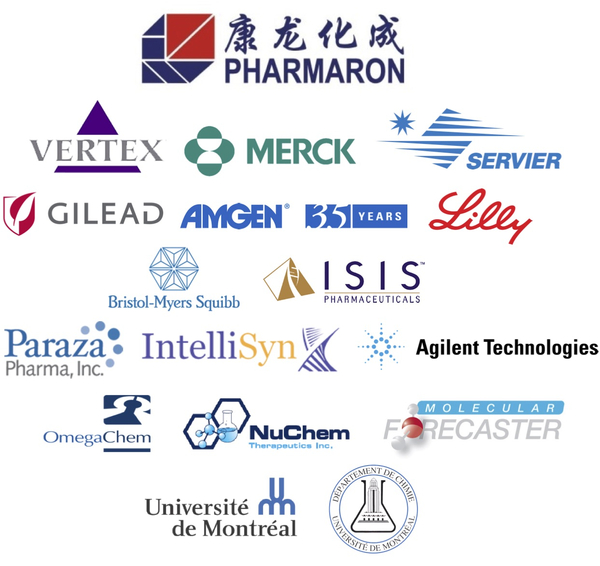Steve Hanessian's 80th Birthday Symposium
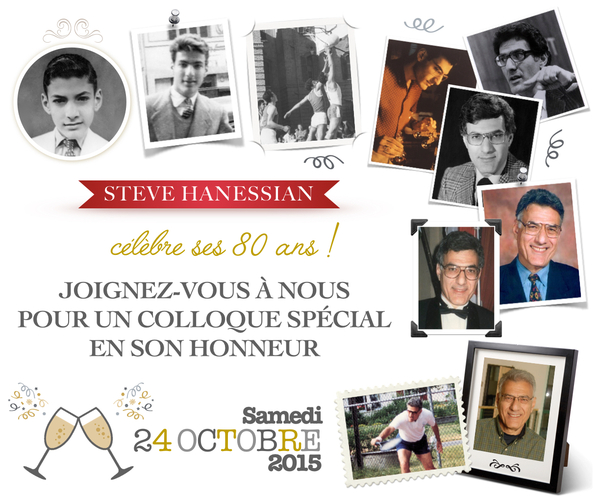
The Impact of Synthetic Chemistry and Biology
at the Interface of Science
THANK YOU ALL FOR HAVING PARTICIPATED IN THE SYMPOSIUM DEDICATED TO STEVE HANESSIAN'S 80TH BIRTHDAY AND FOR HAVING MADE THIS DAY MEMORABLE FOR HIM! YOU WILL FIND BELOW THE PICTURES CAPTURED ON THE SPOT DURING THE EVENT IN CHRONOLOGICAL ORDER. TO DOWNLOAD THE ORIGINAL PHOTO, PLEASE CLICK ON ANY OF THE MINI-PICTURES IN THE MOVING STRIP.
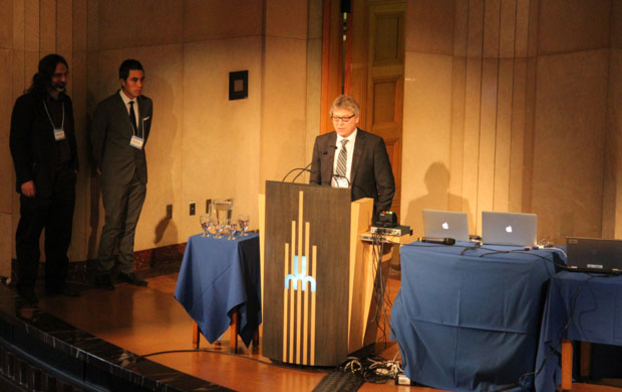
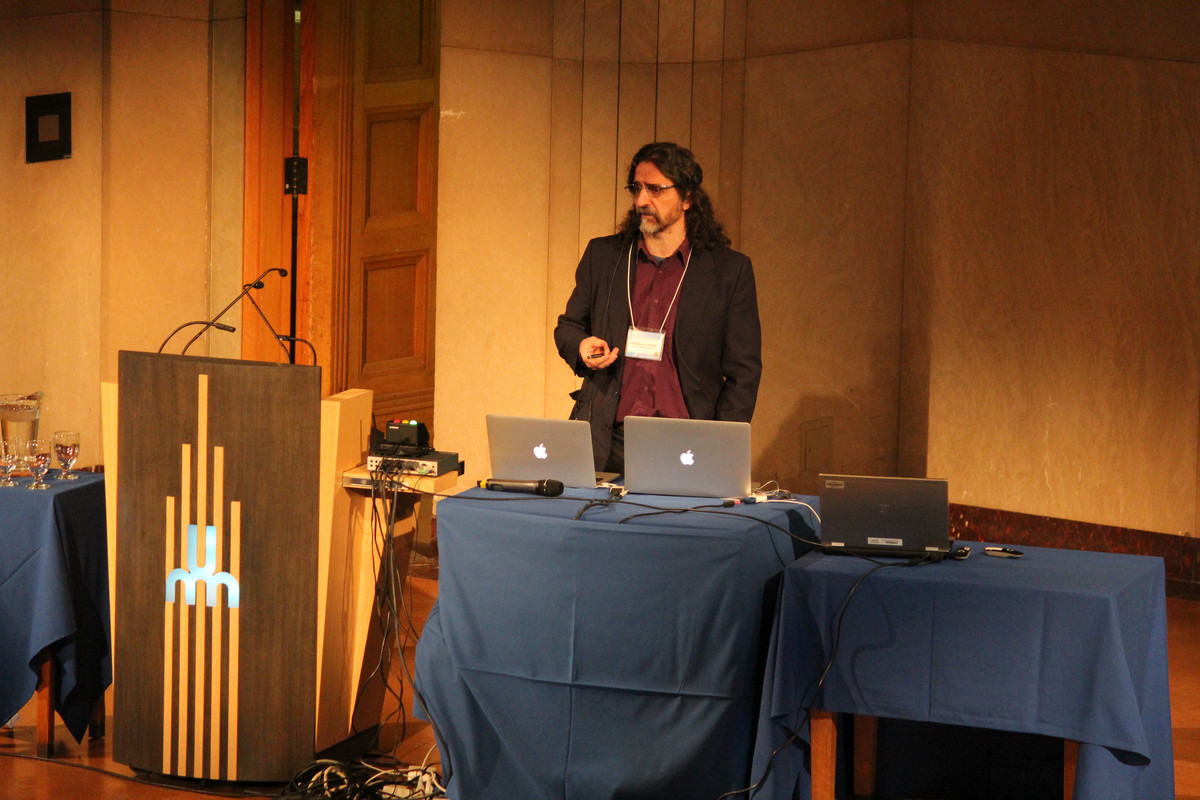
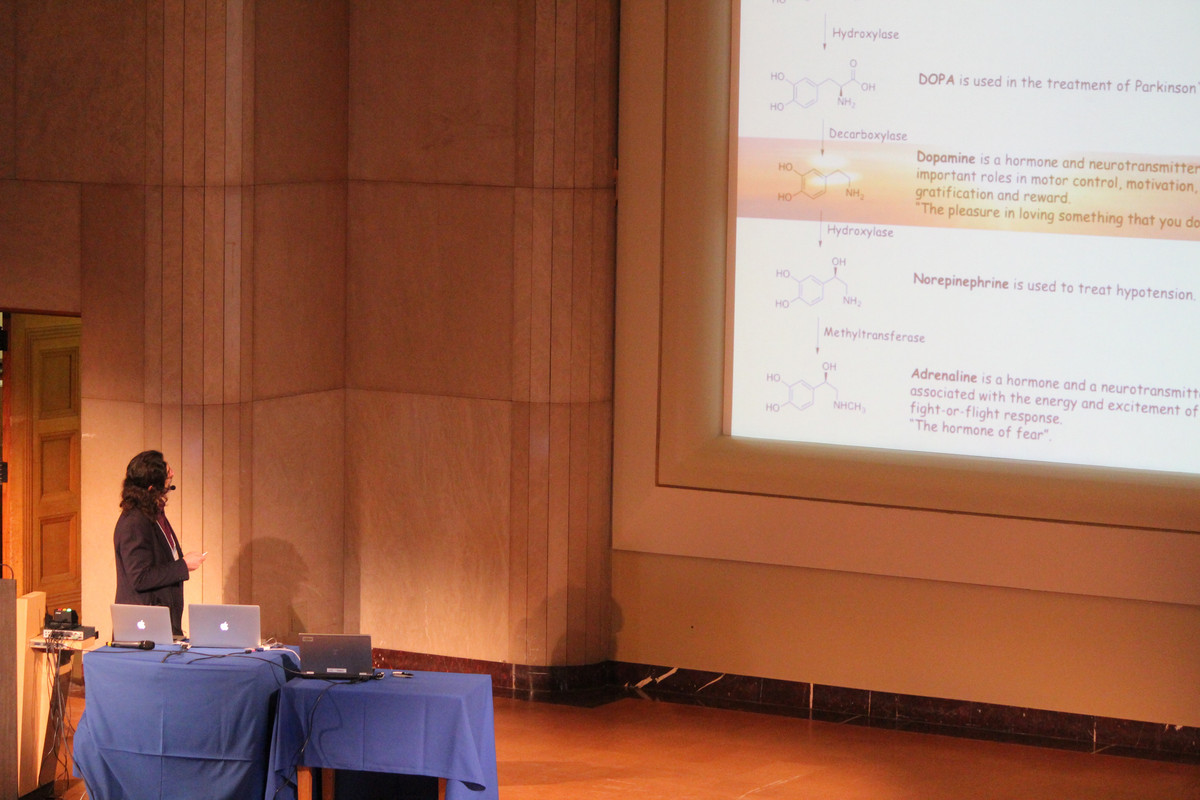
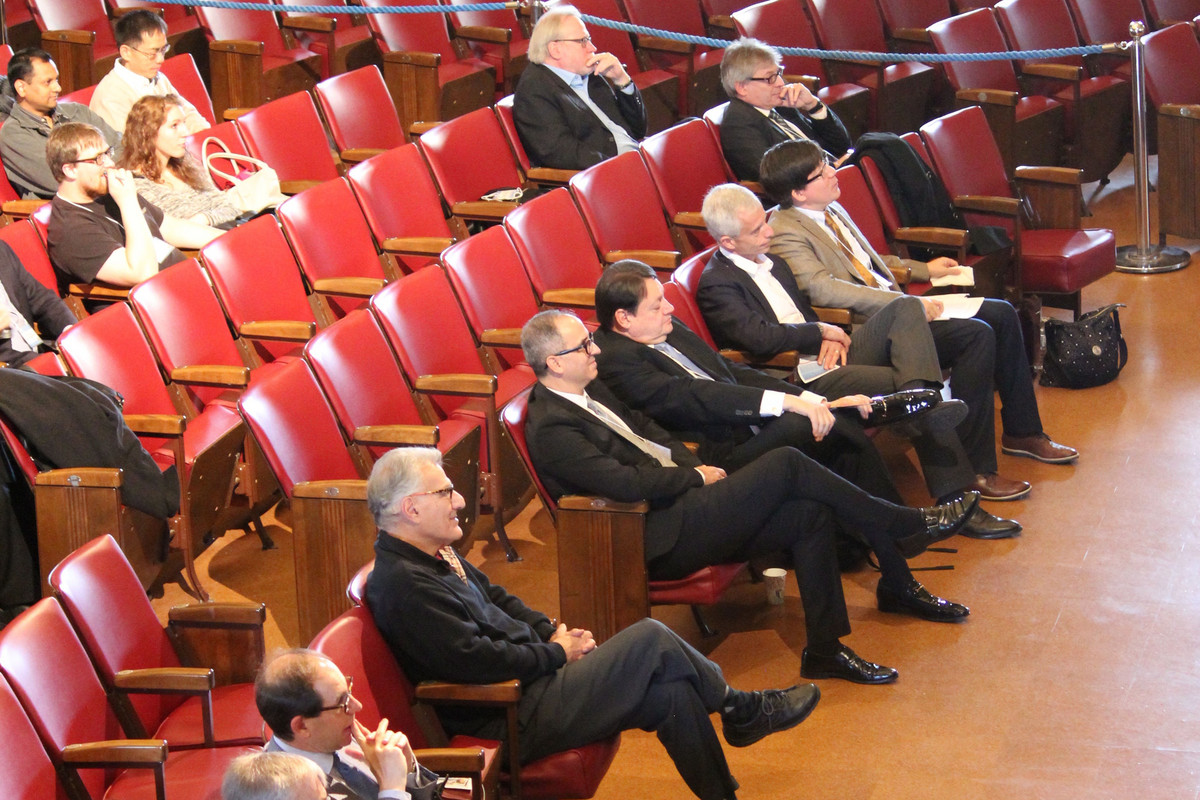
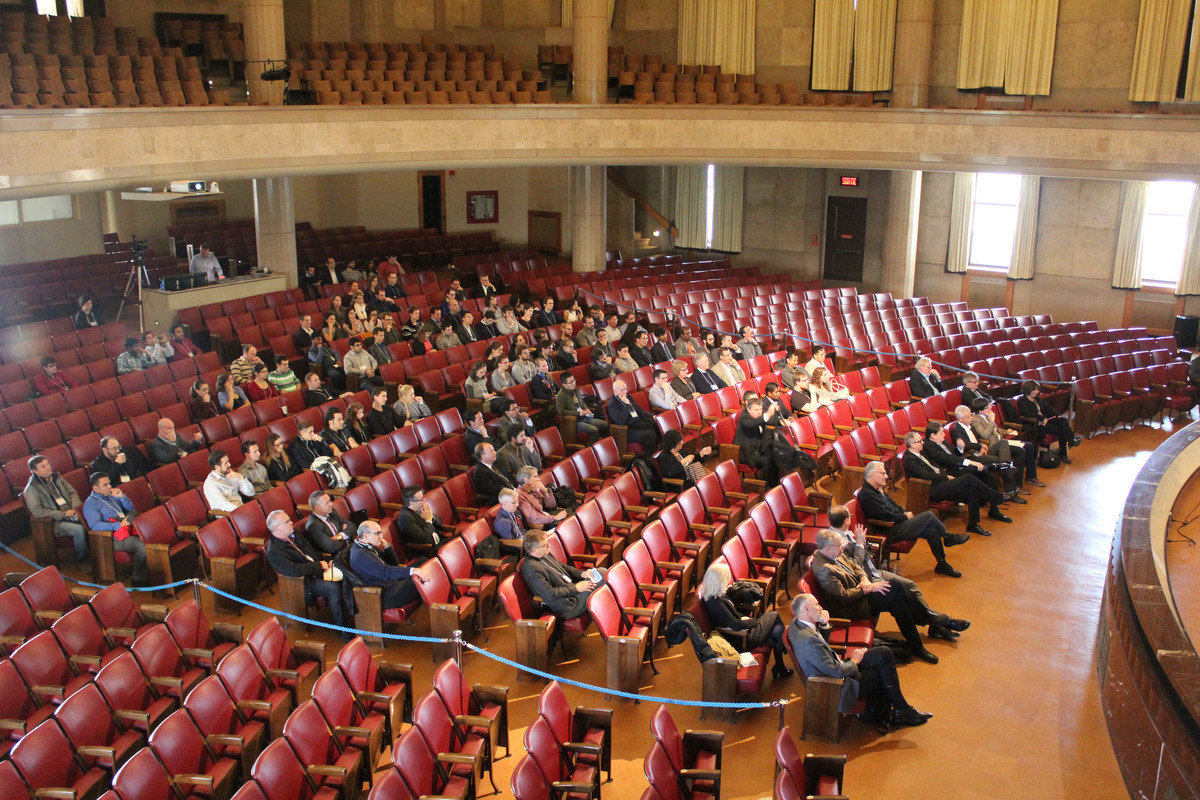
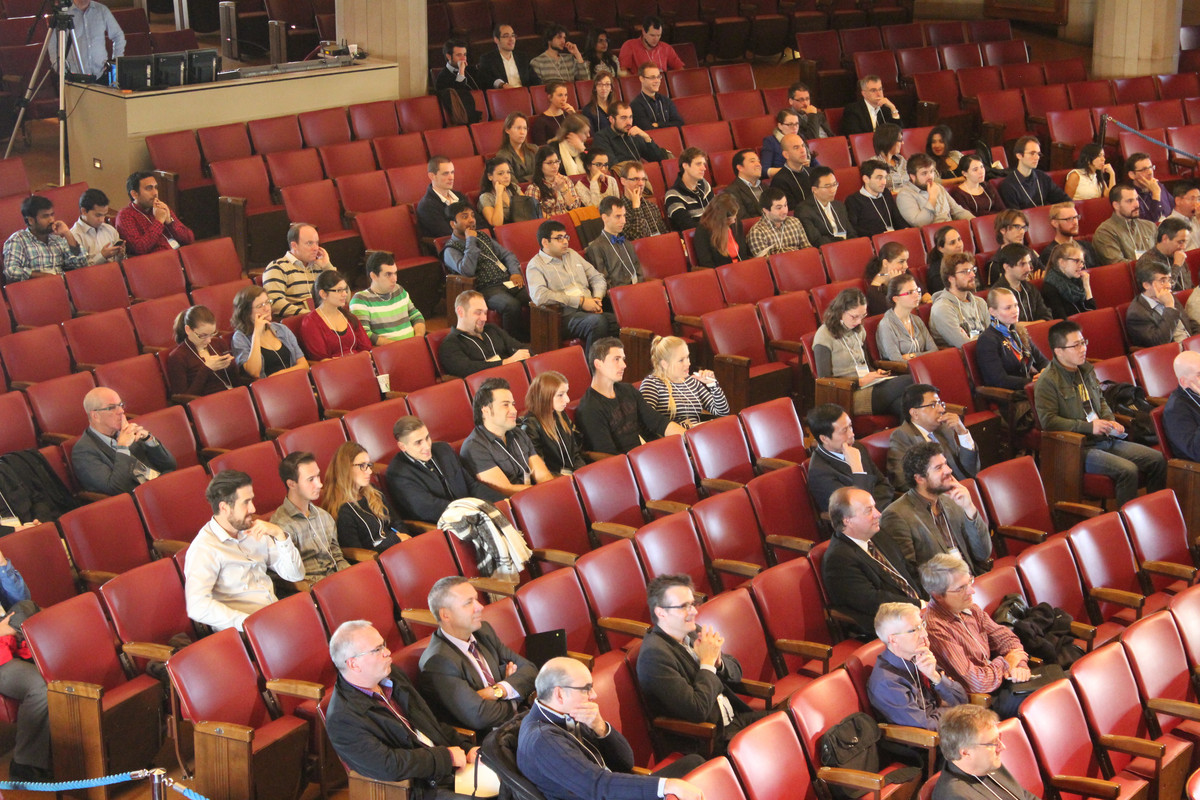
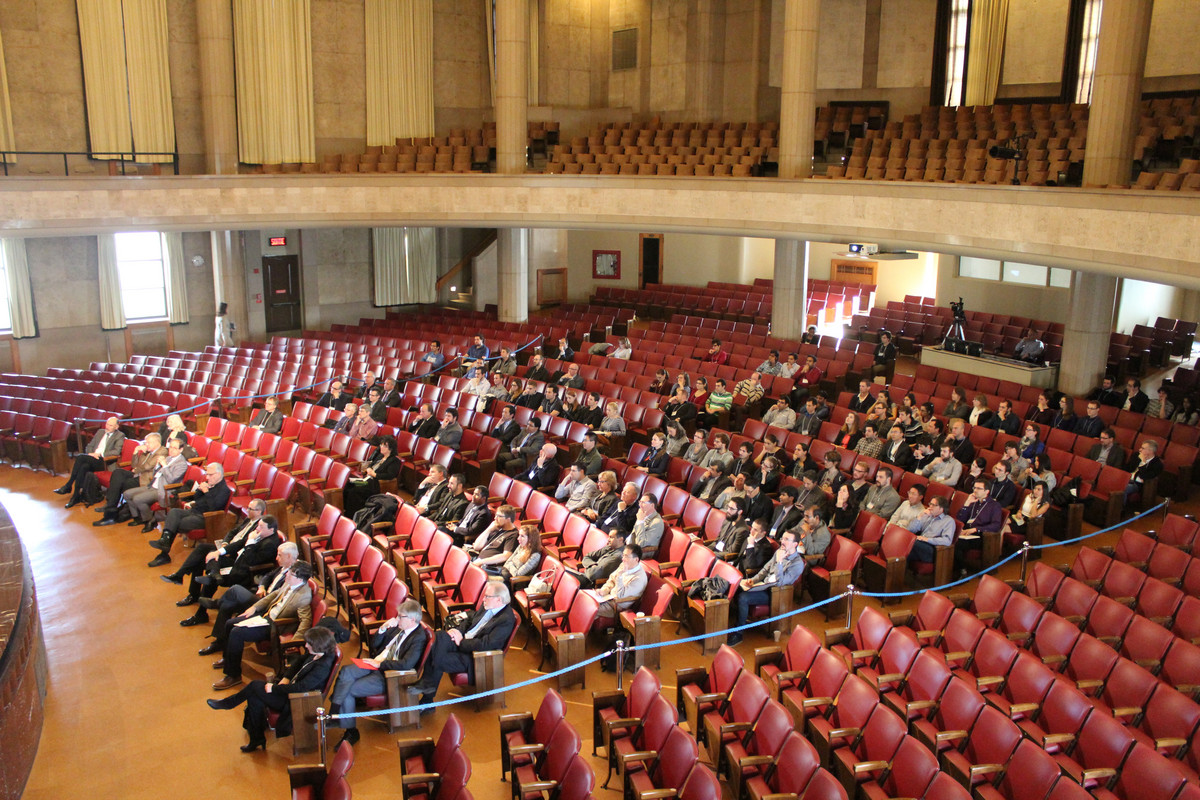
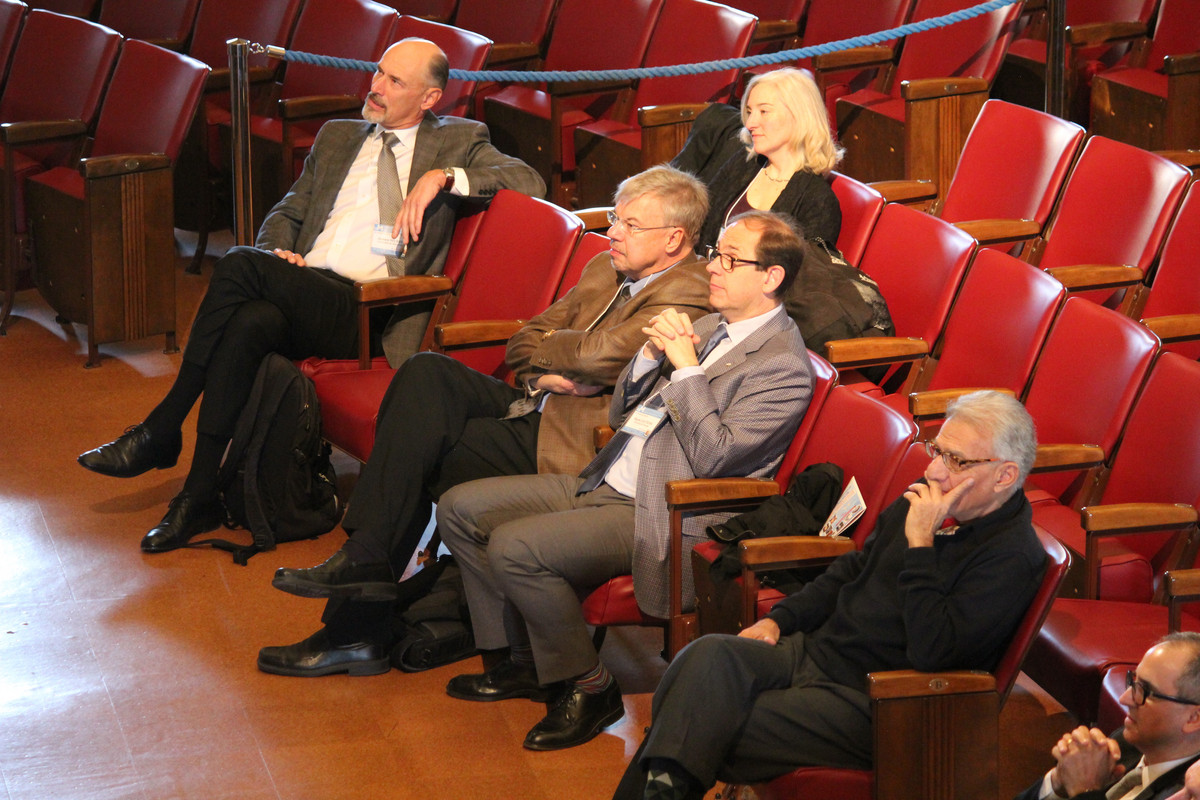
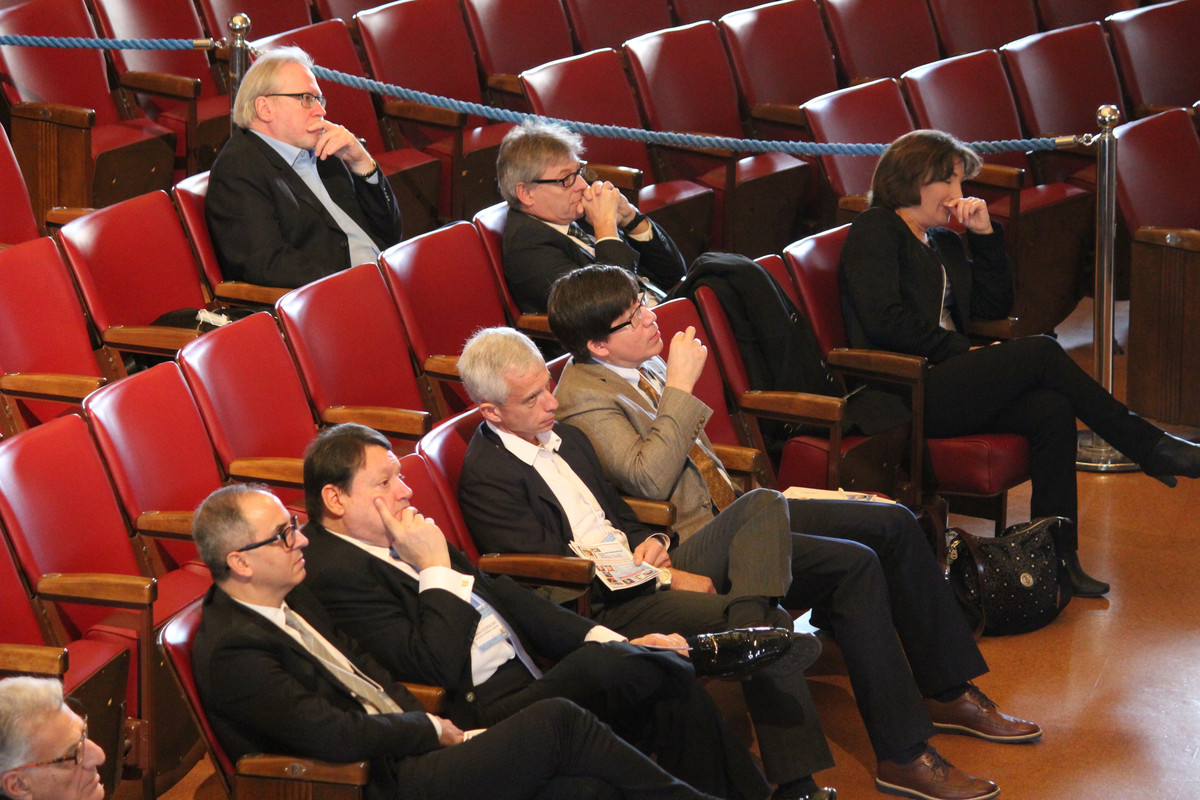
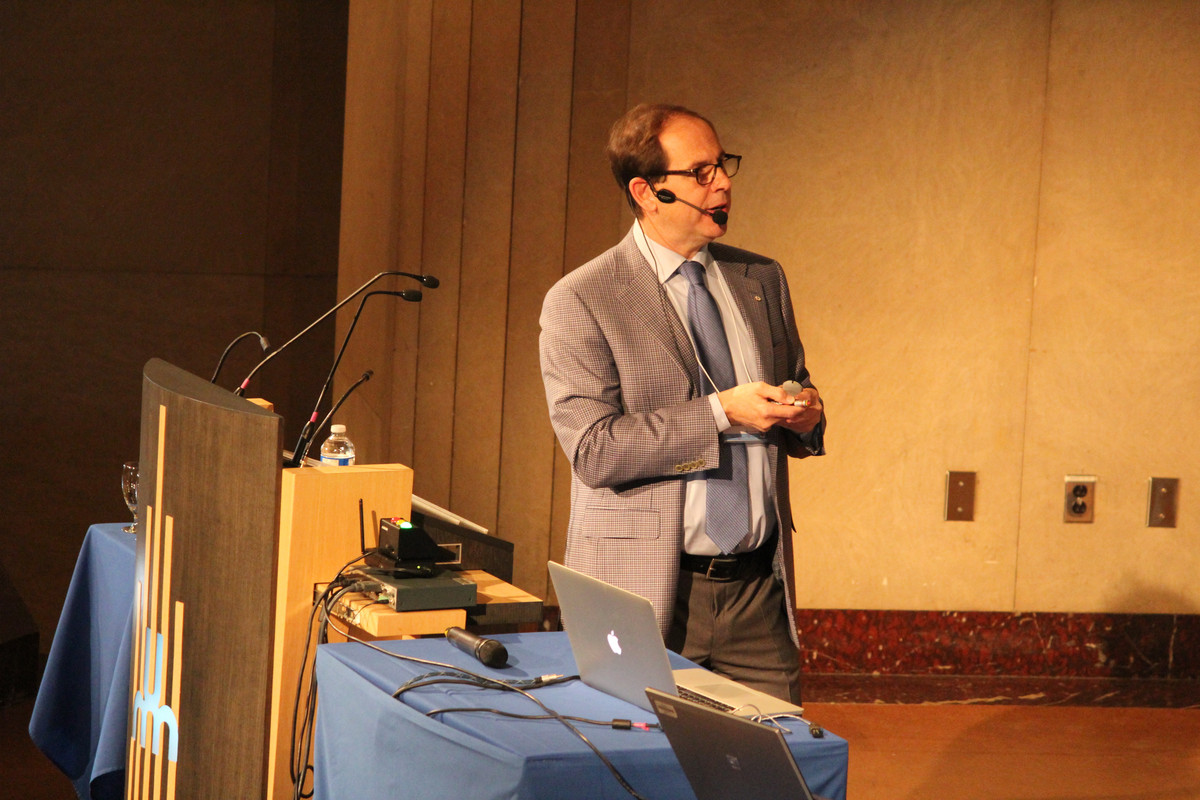
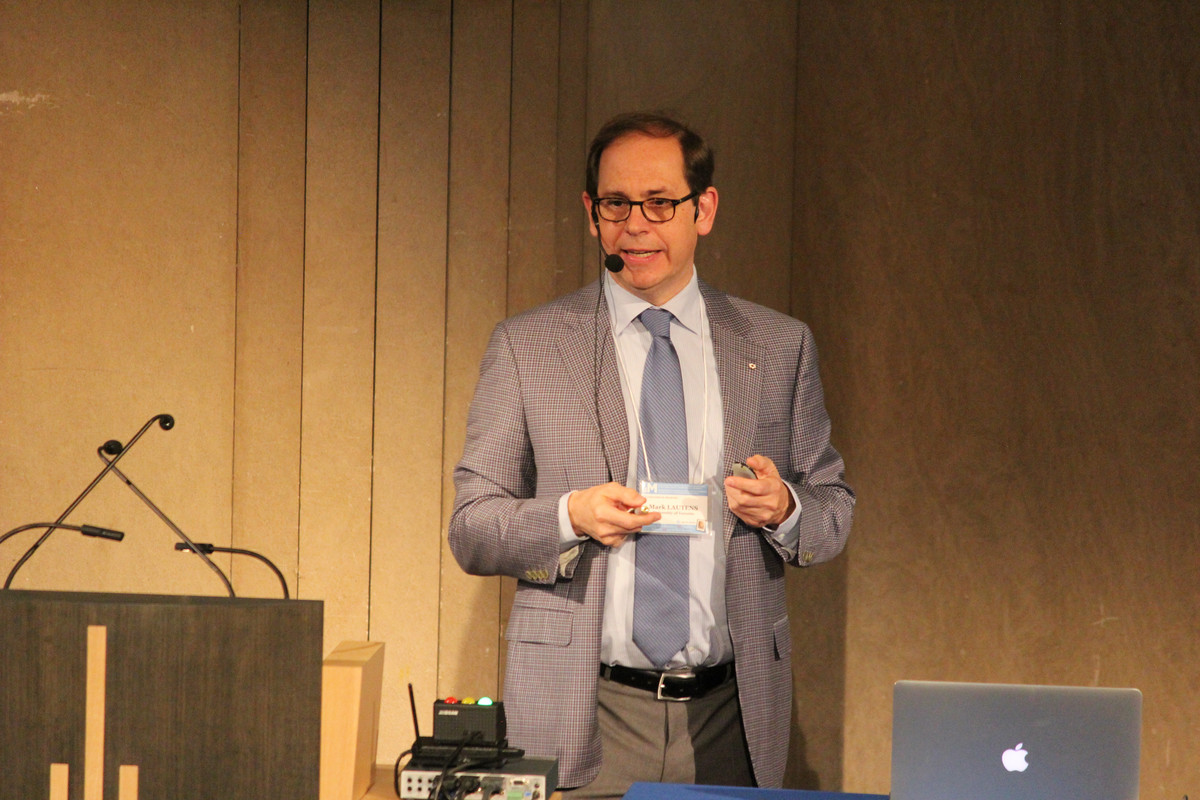
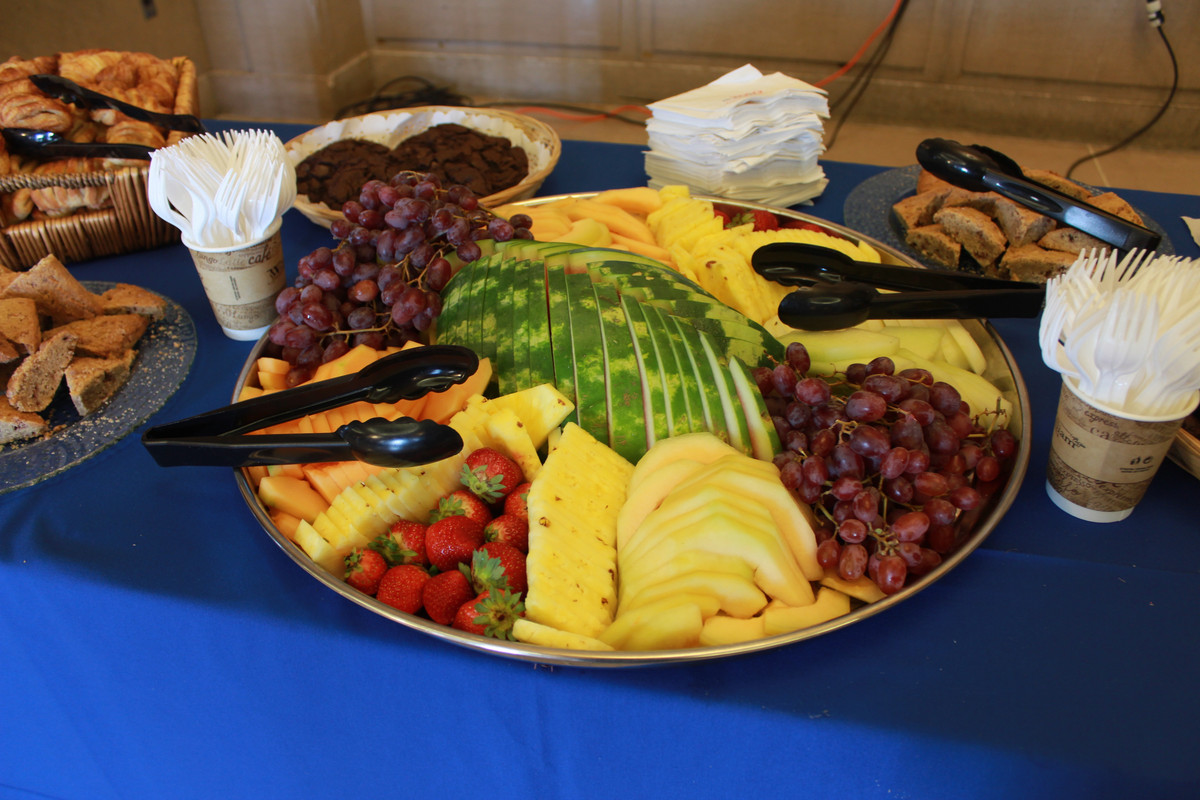
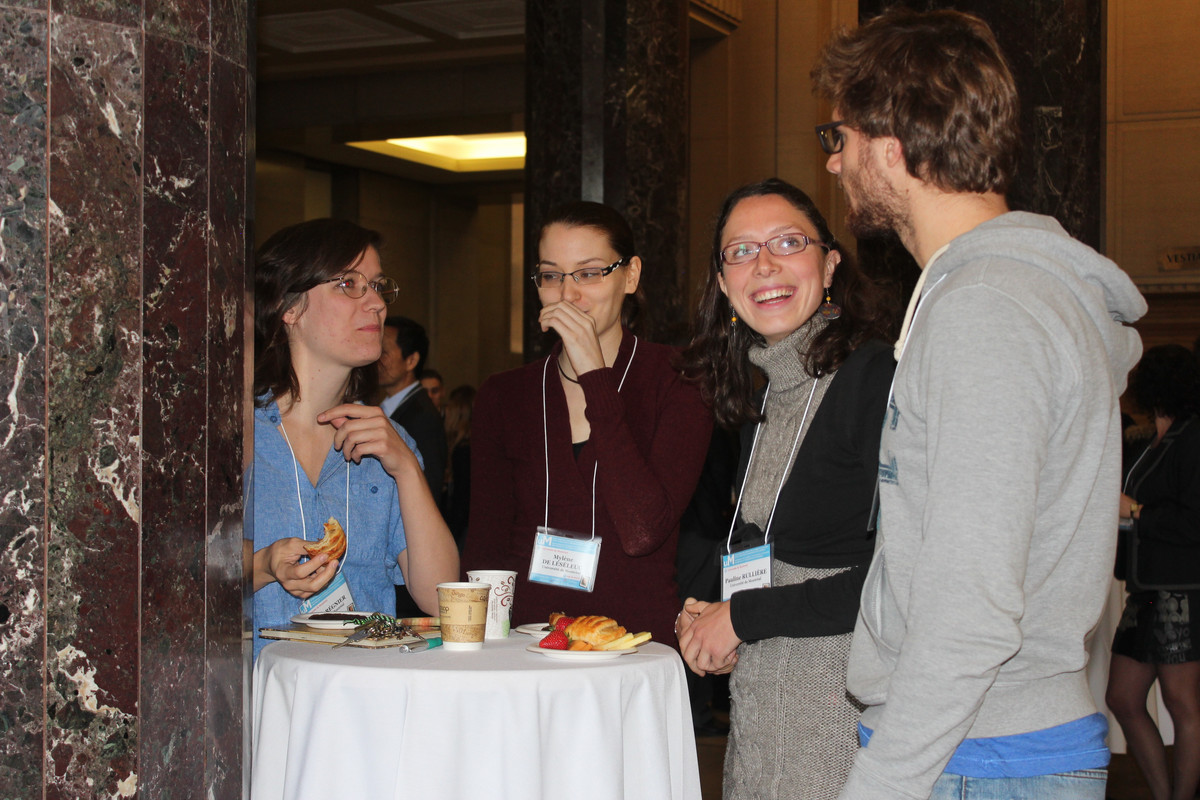
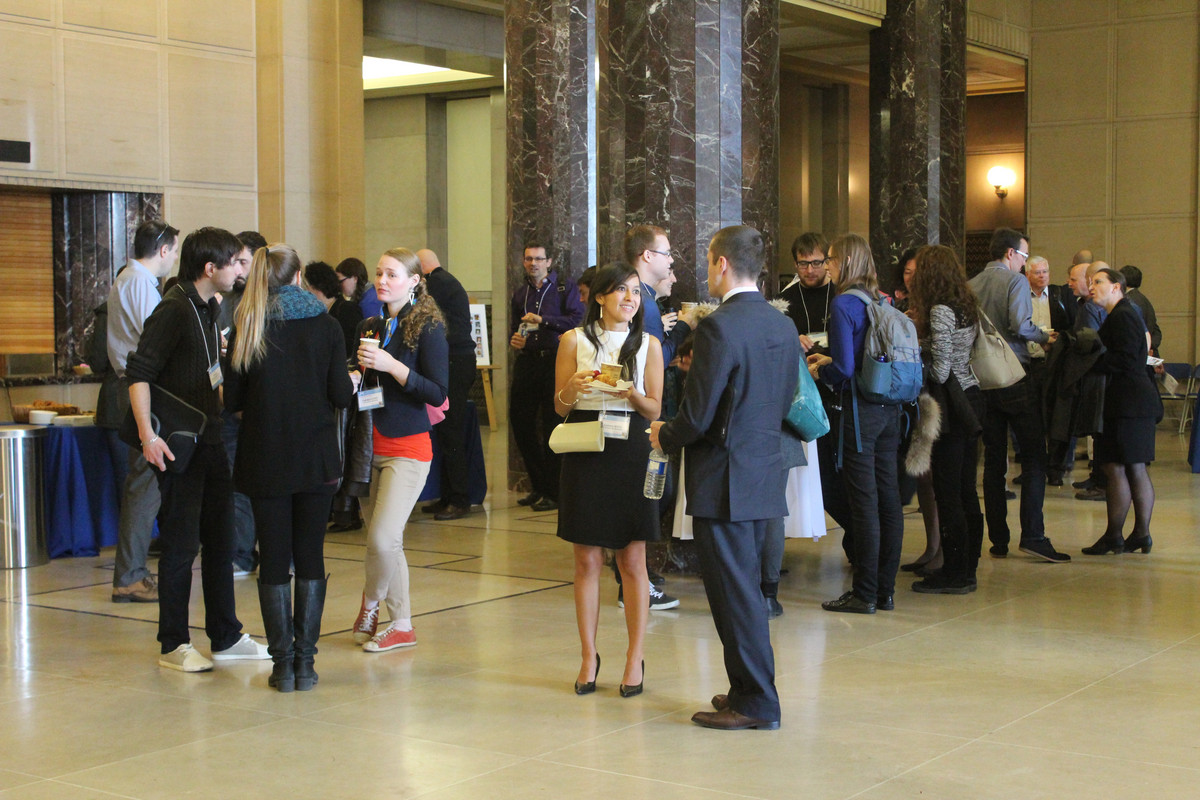
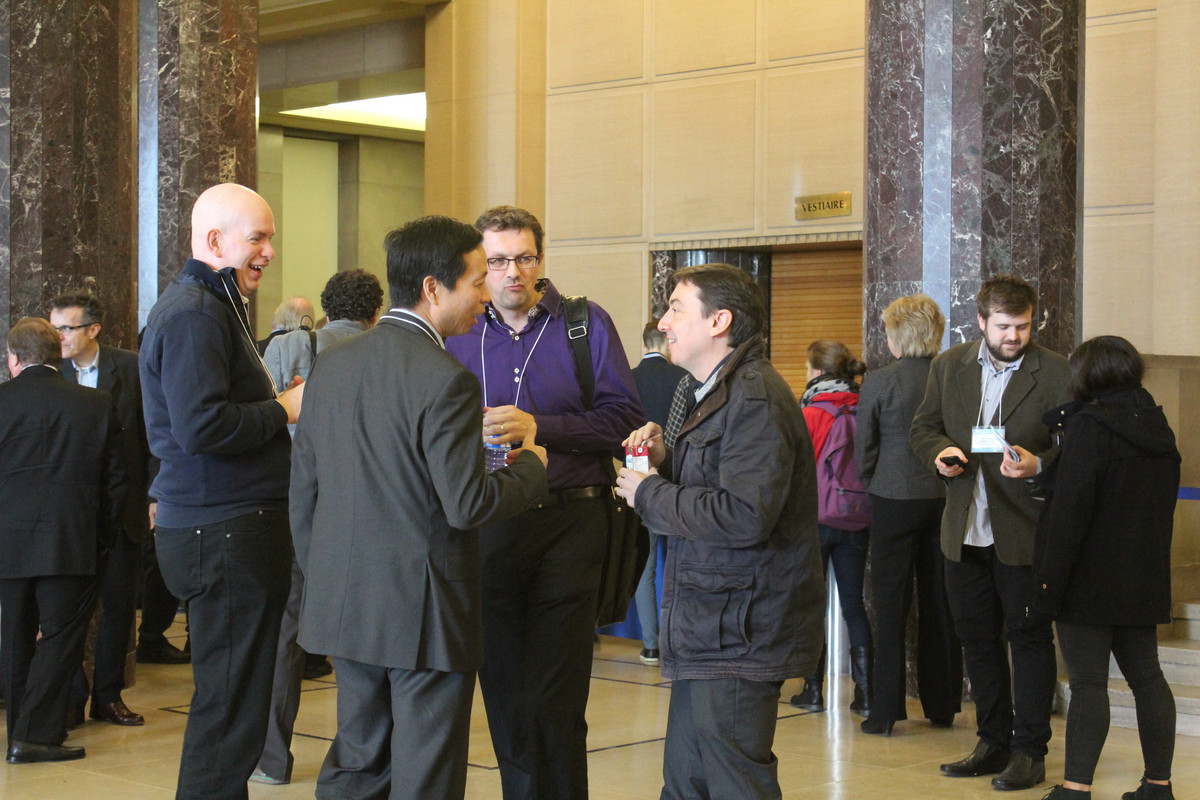
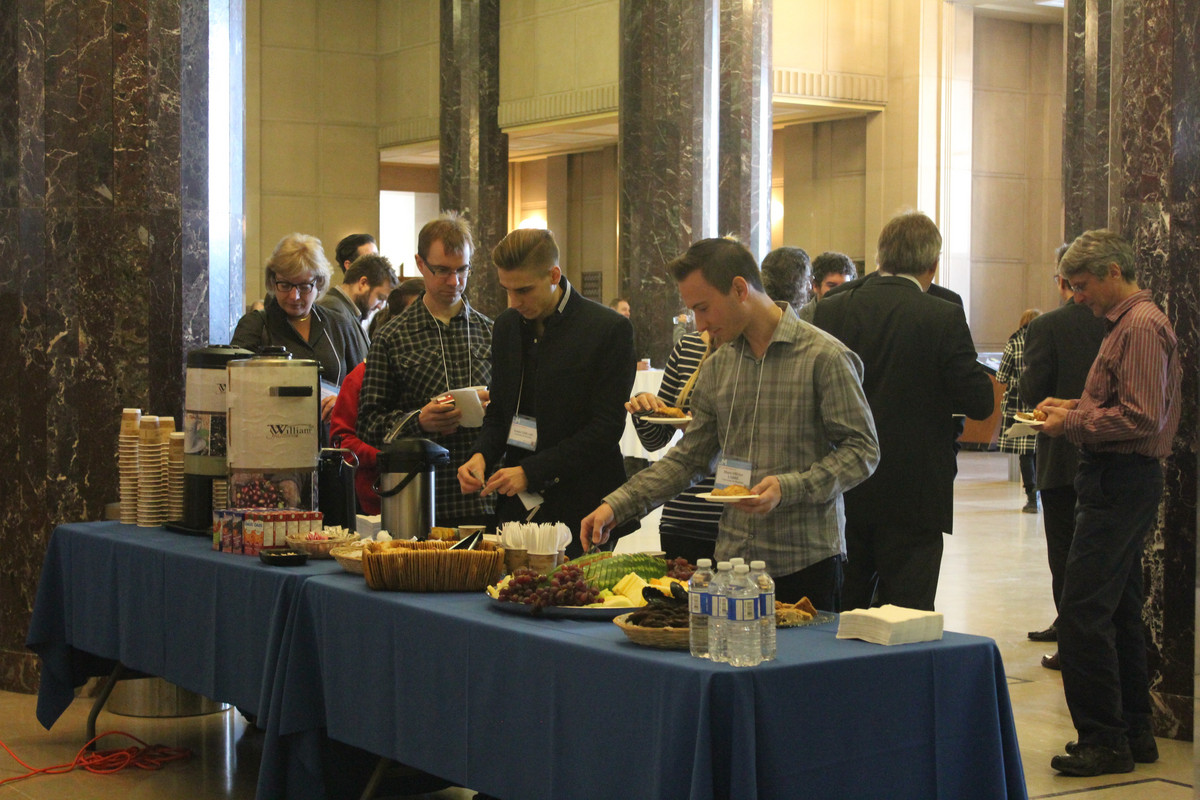
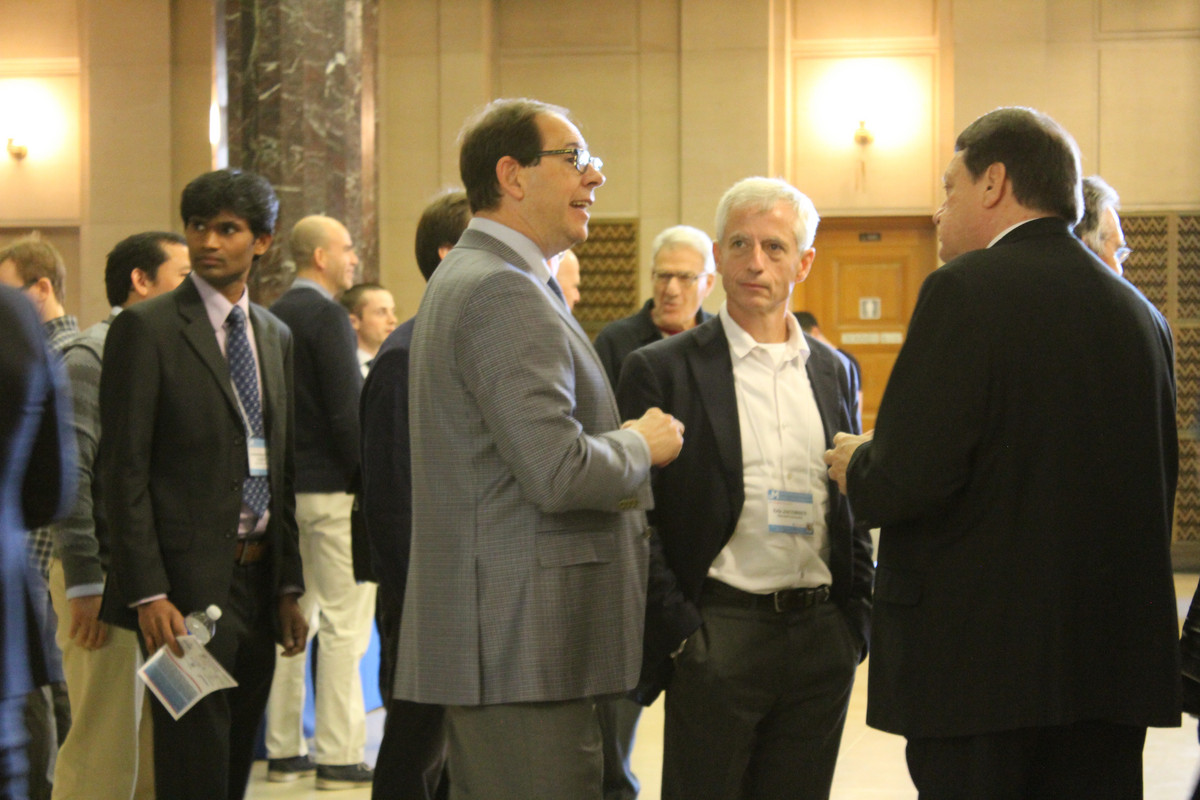
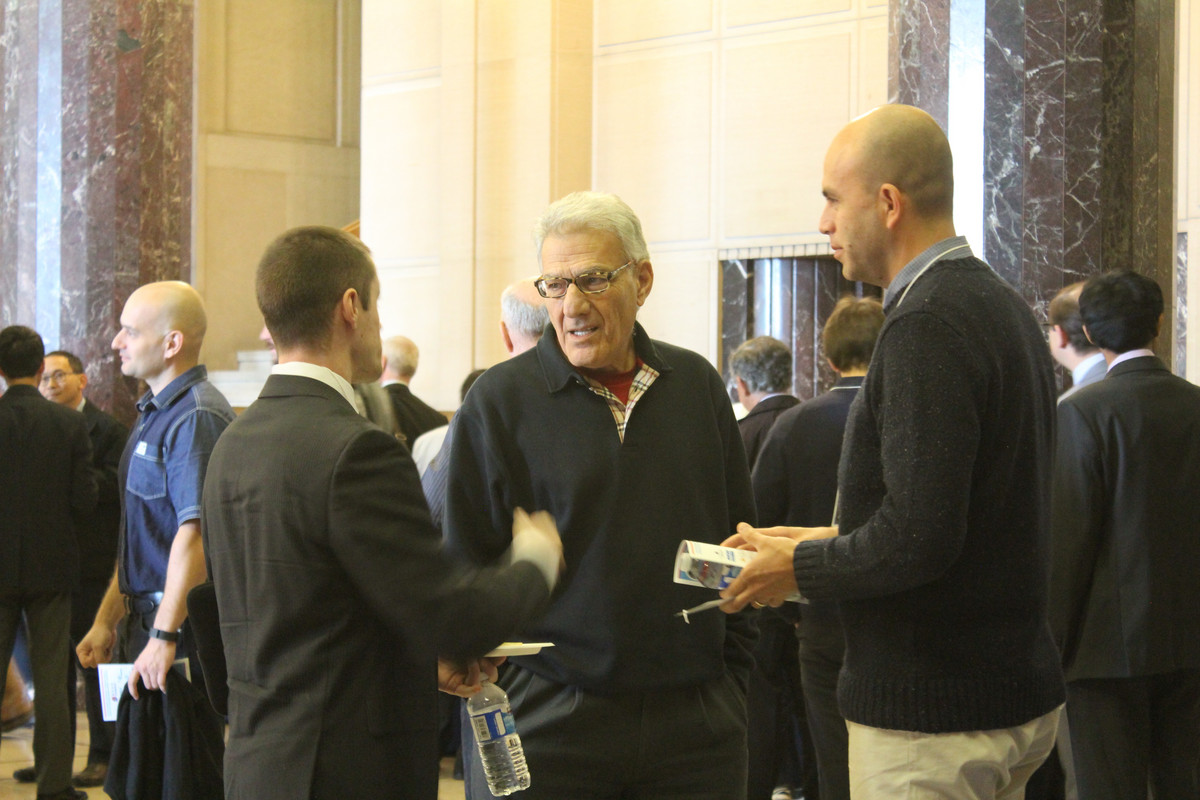
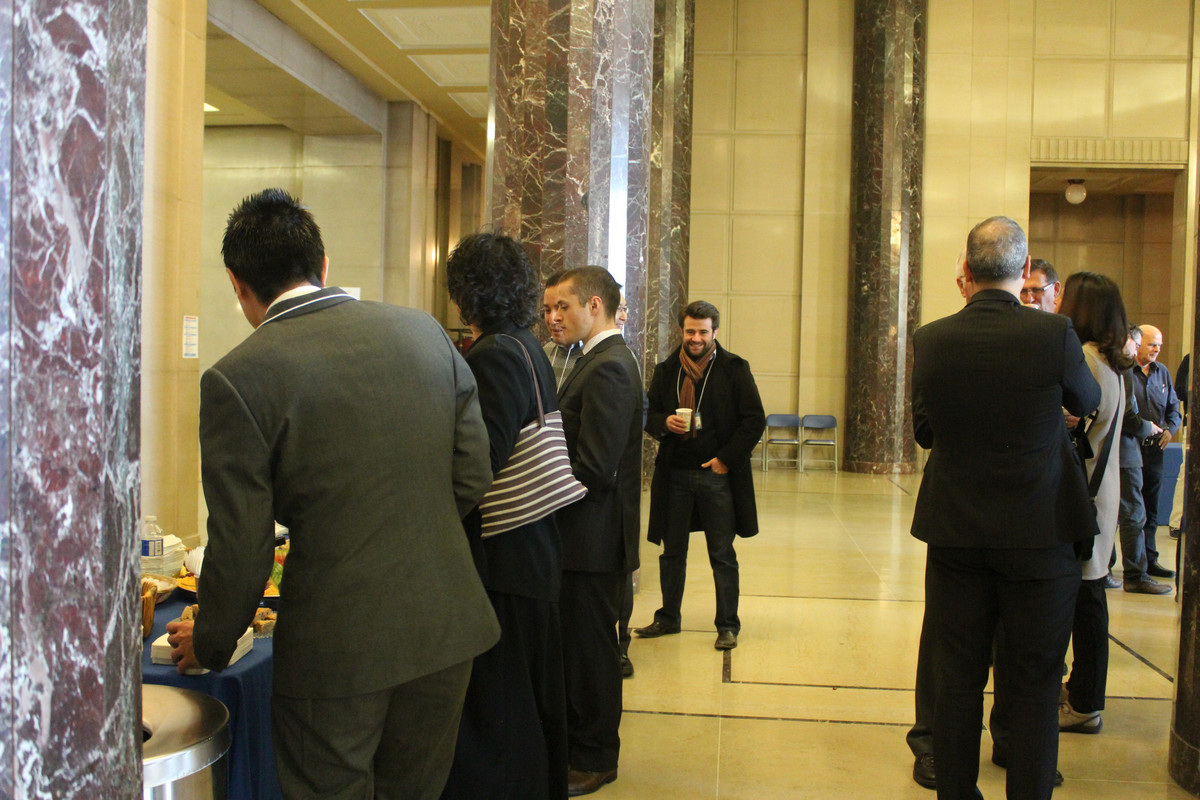
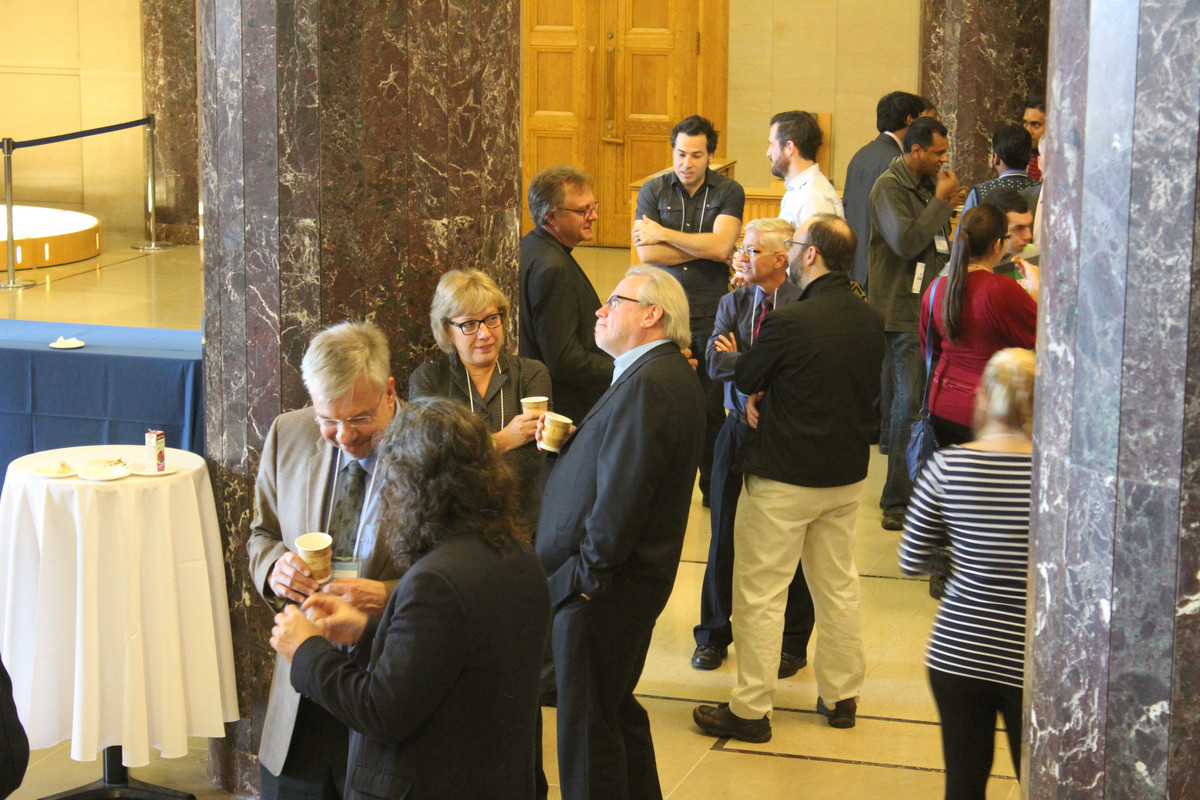
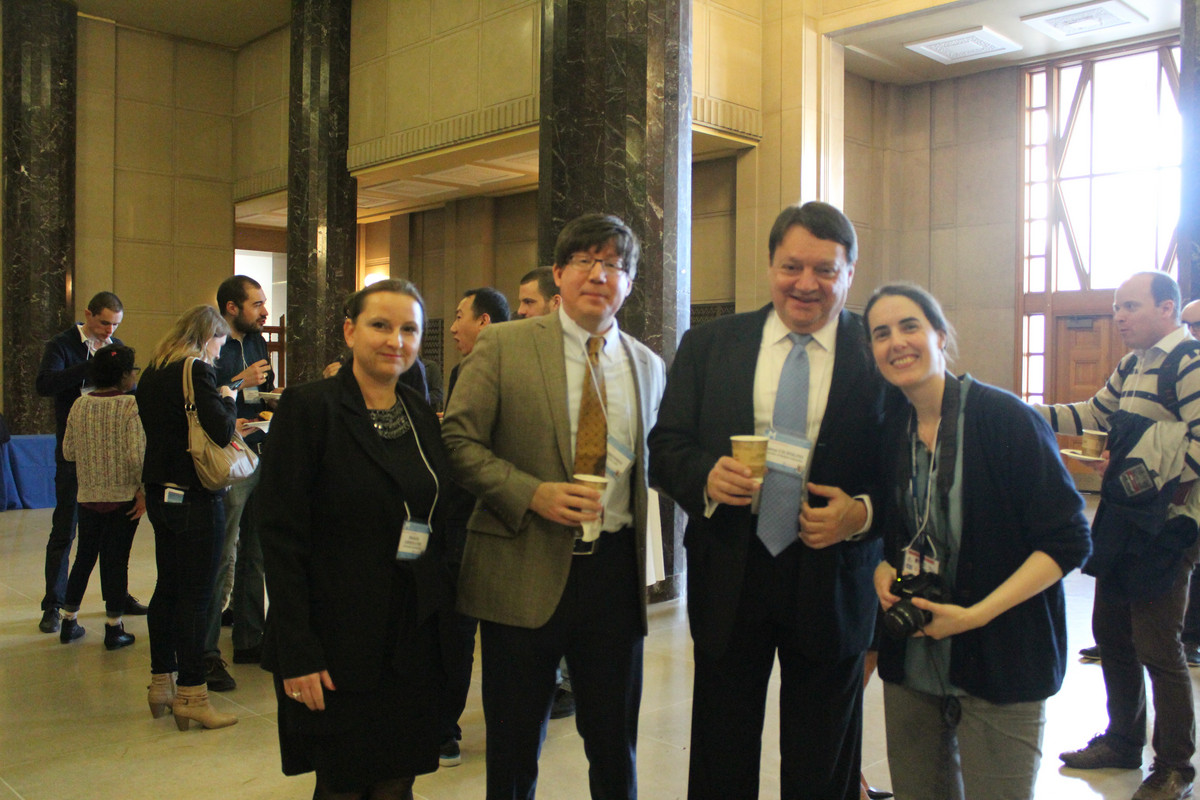
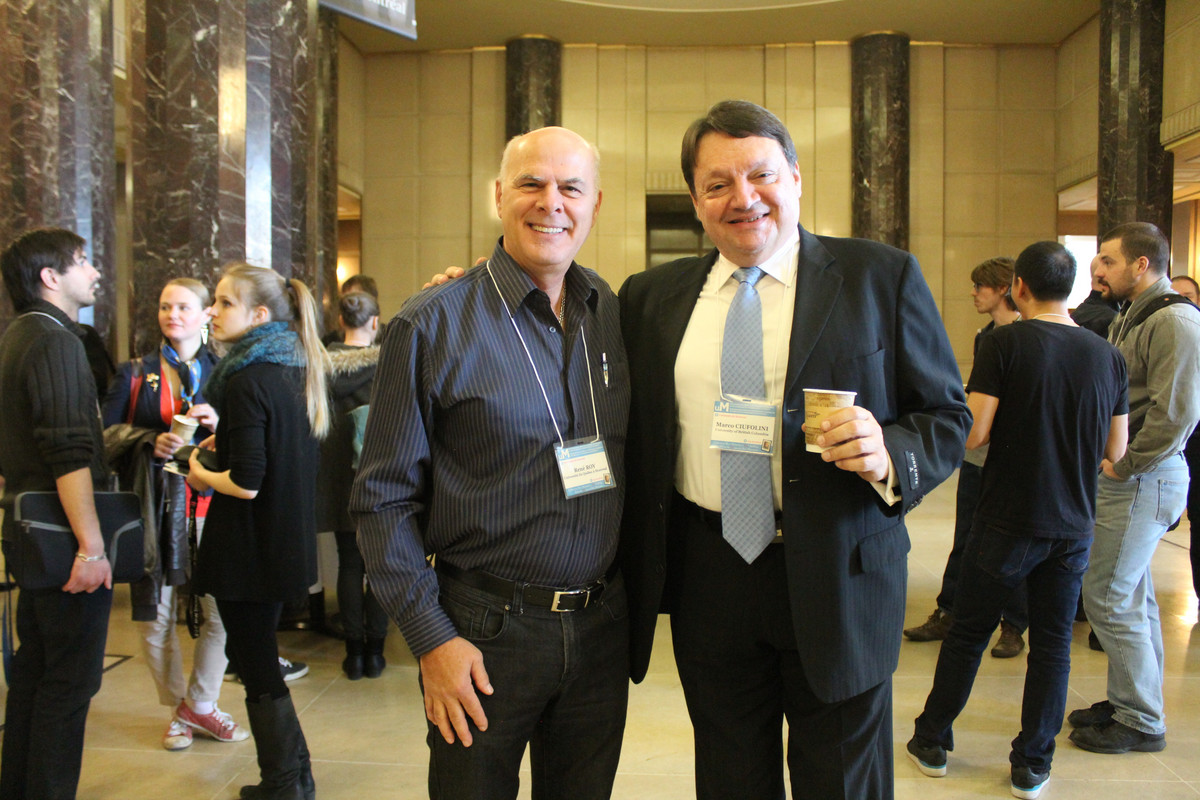
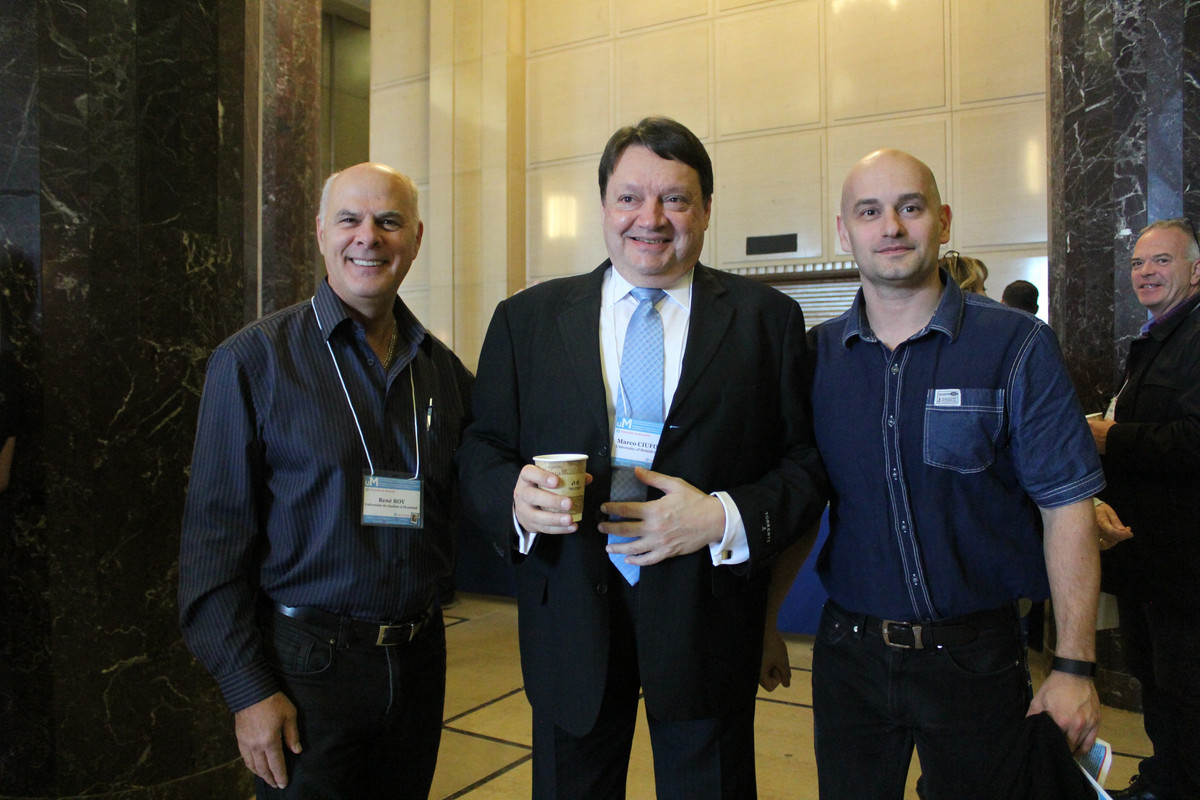
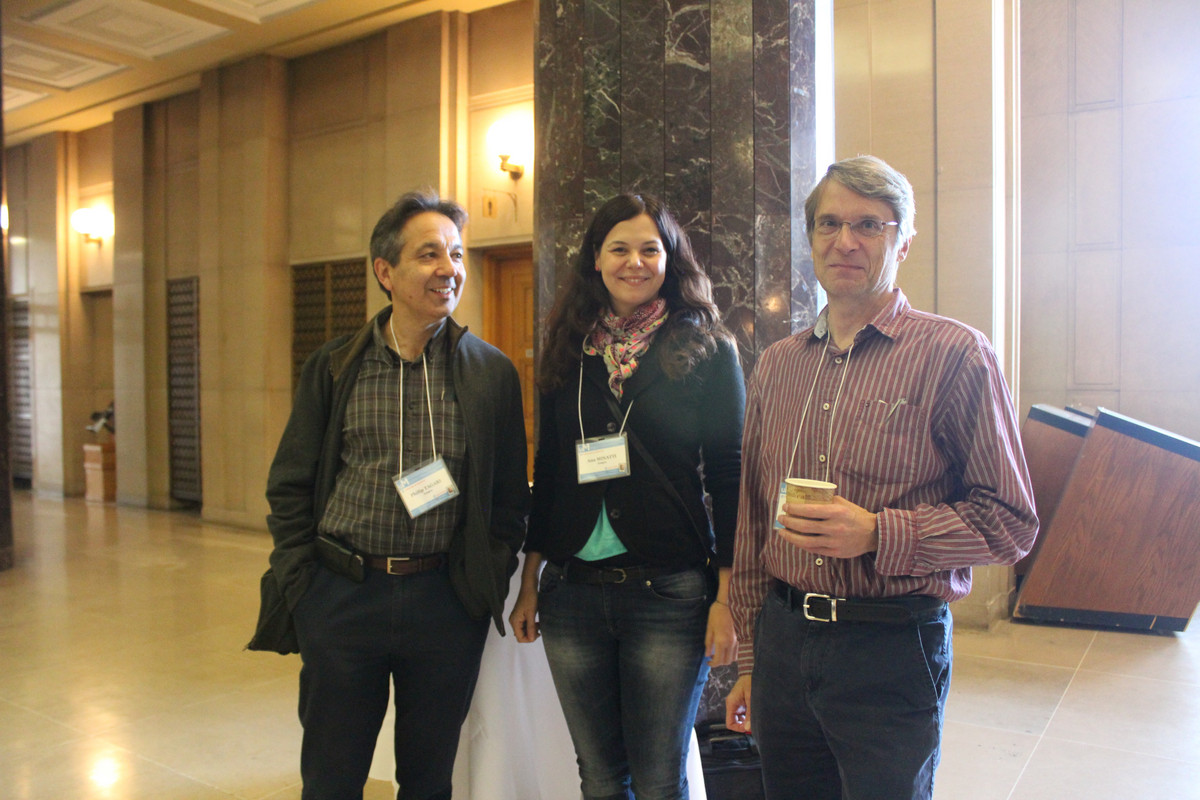
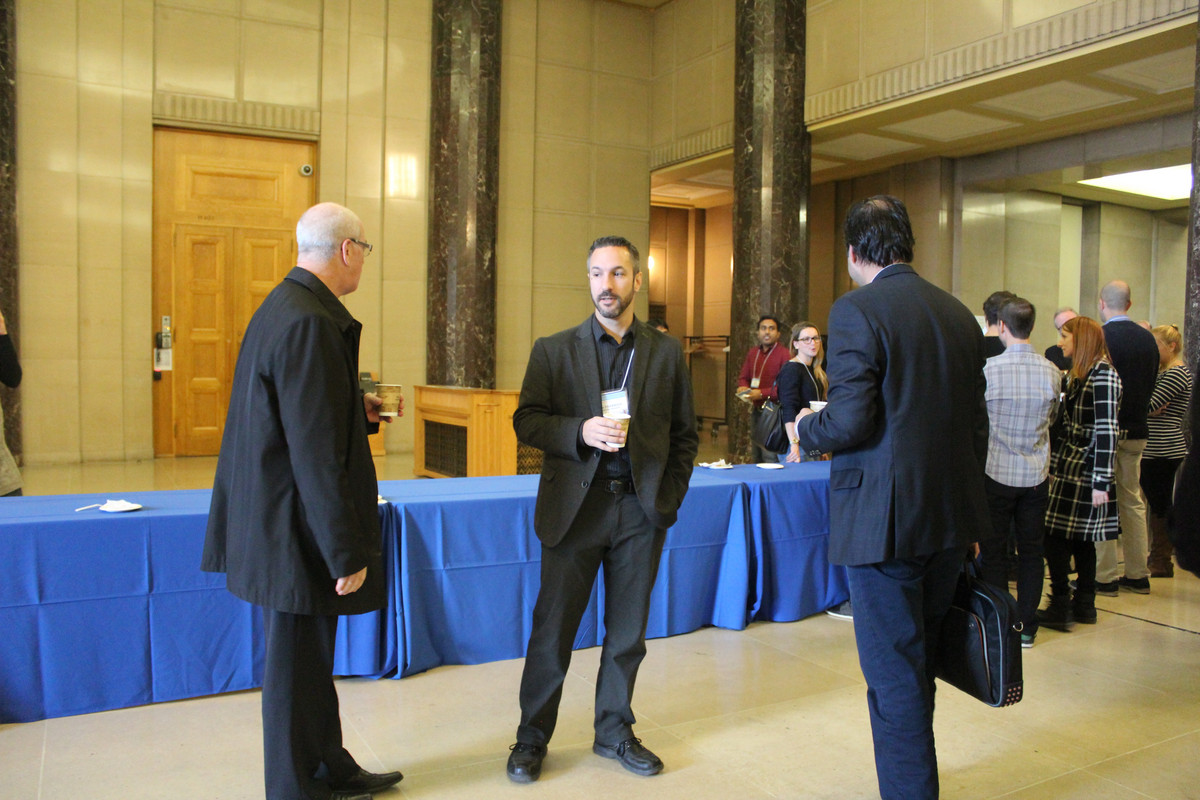
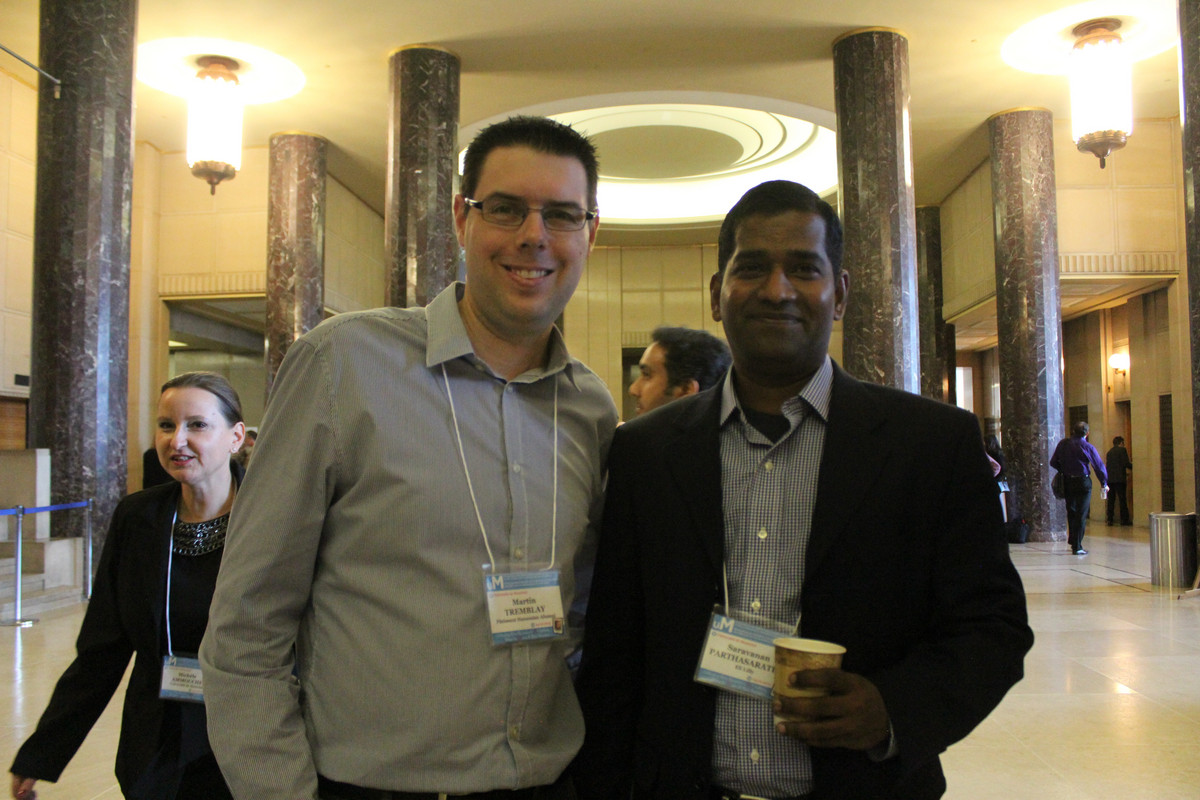
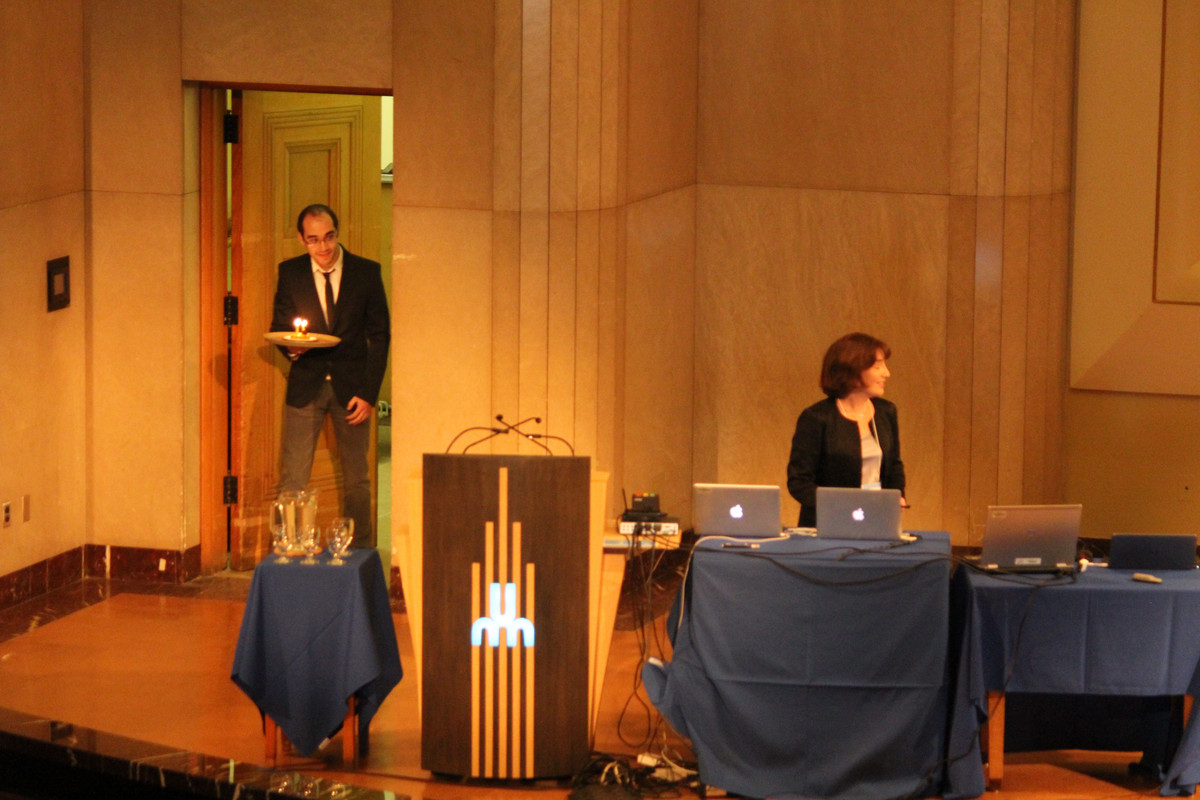
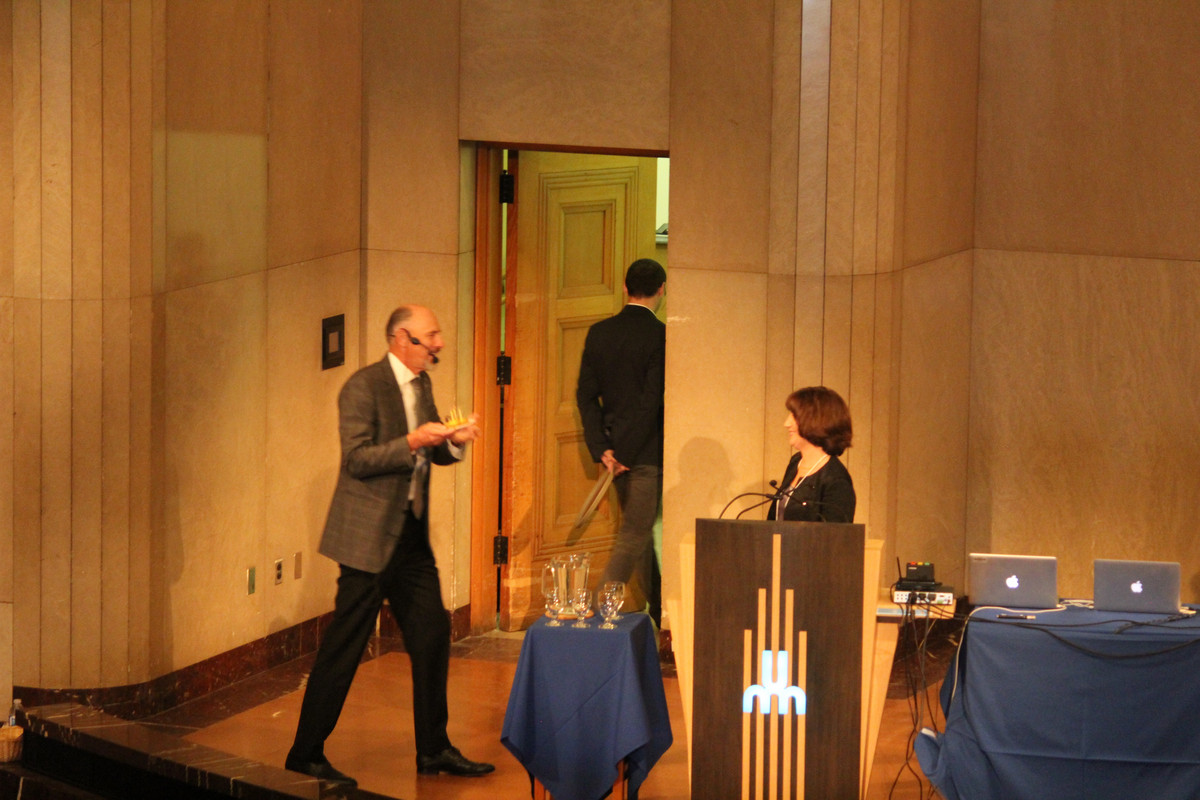
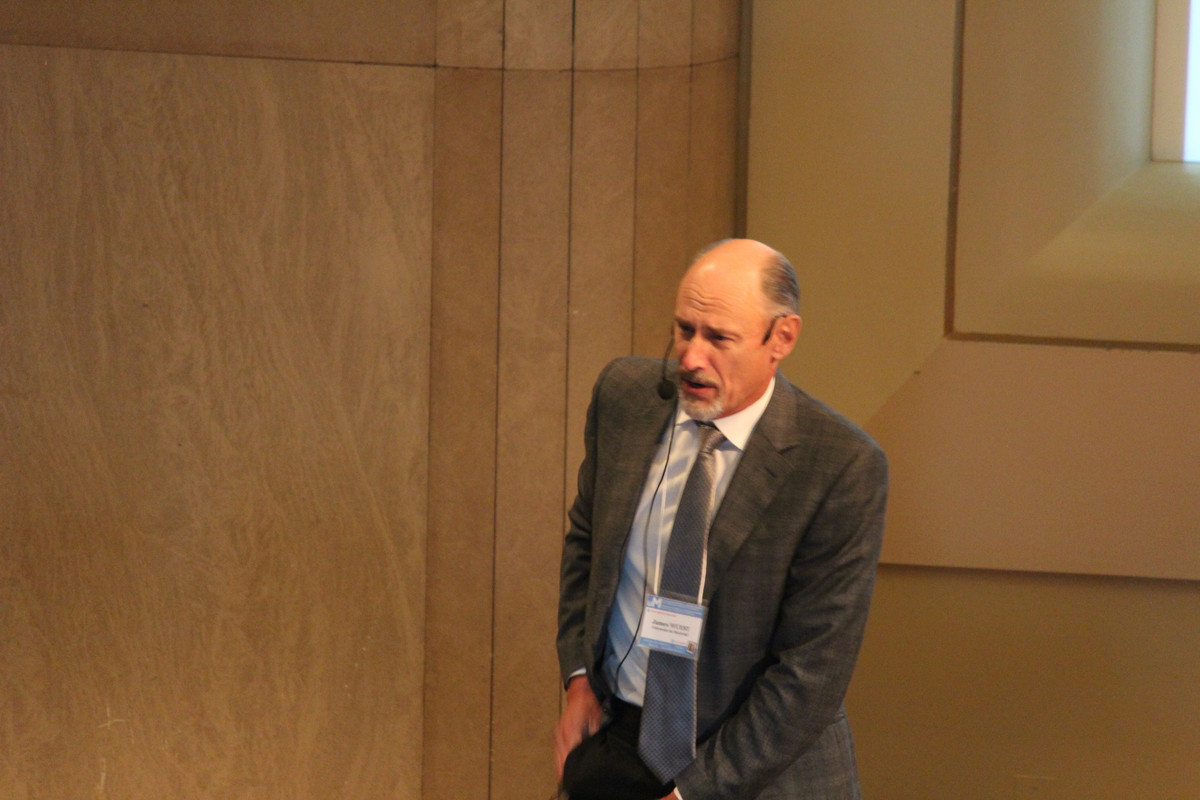
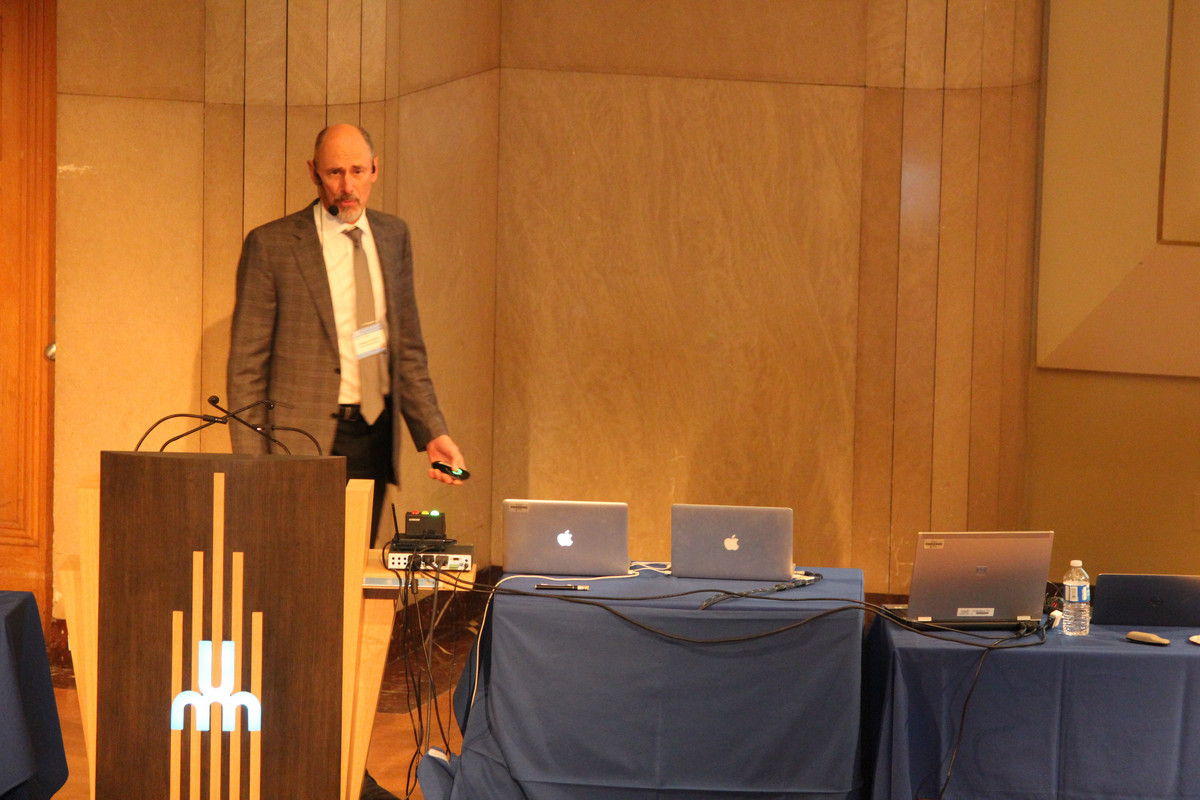
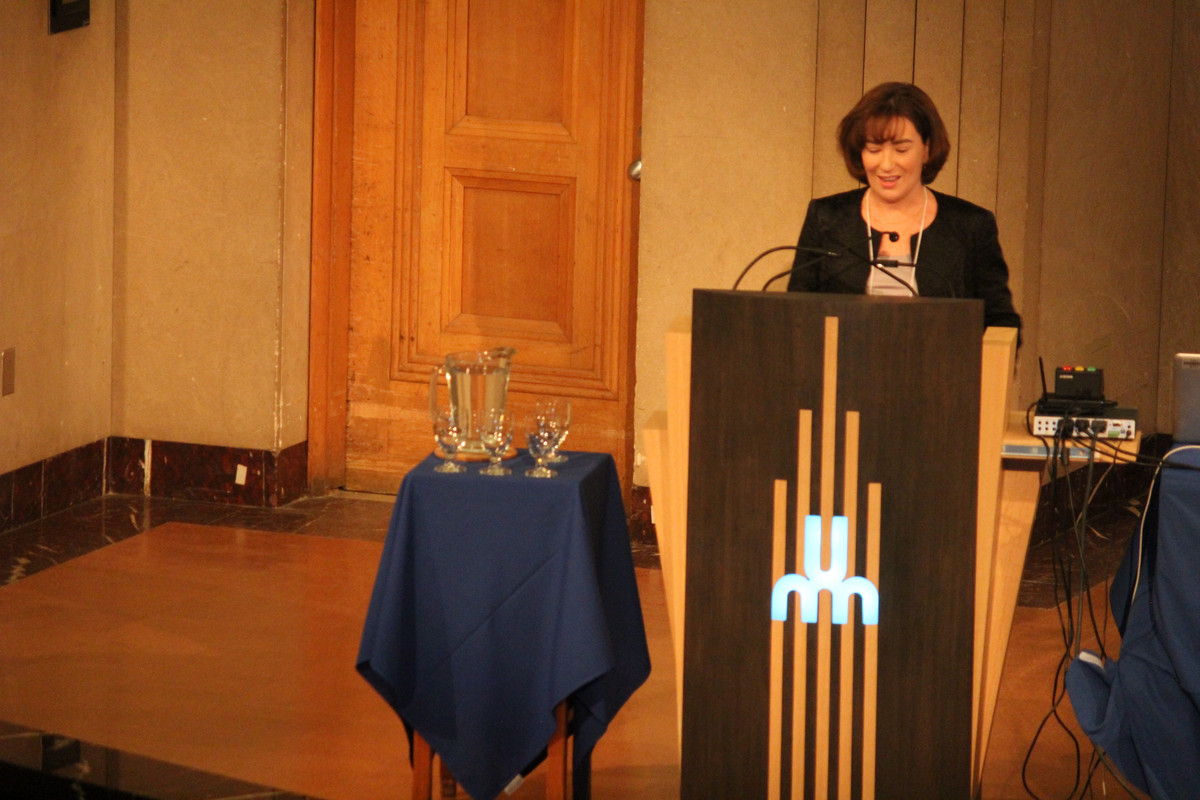
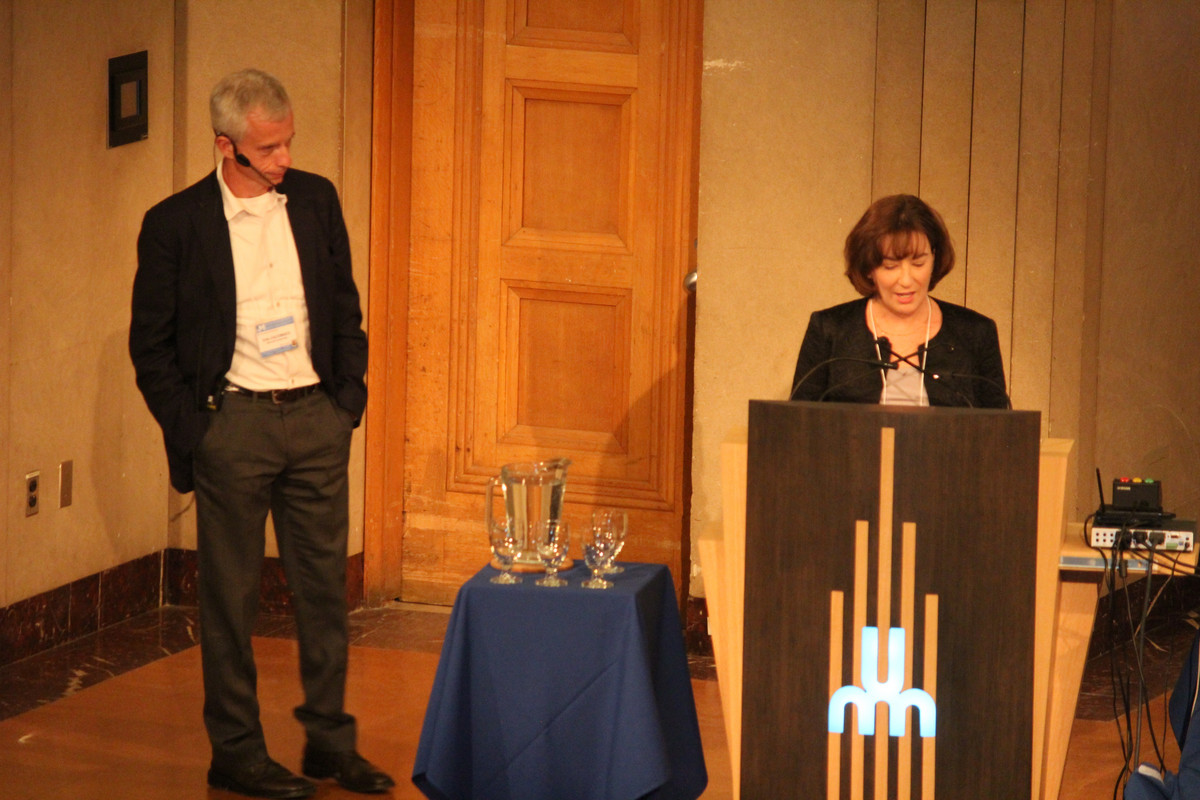
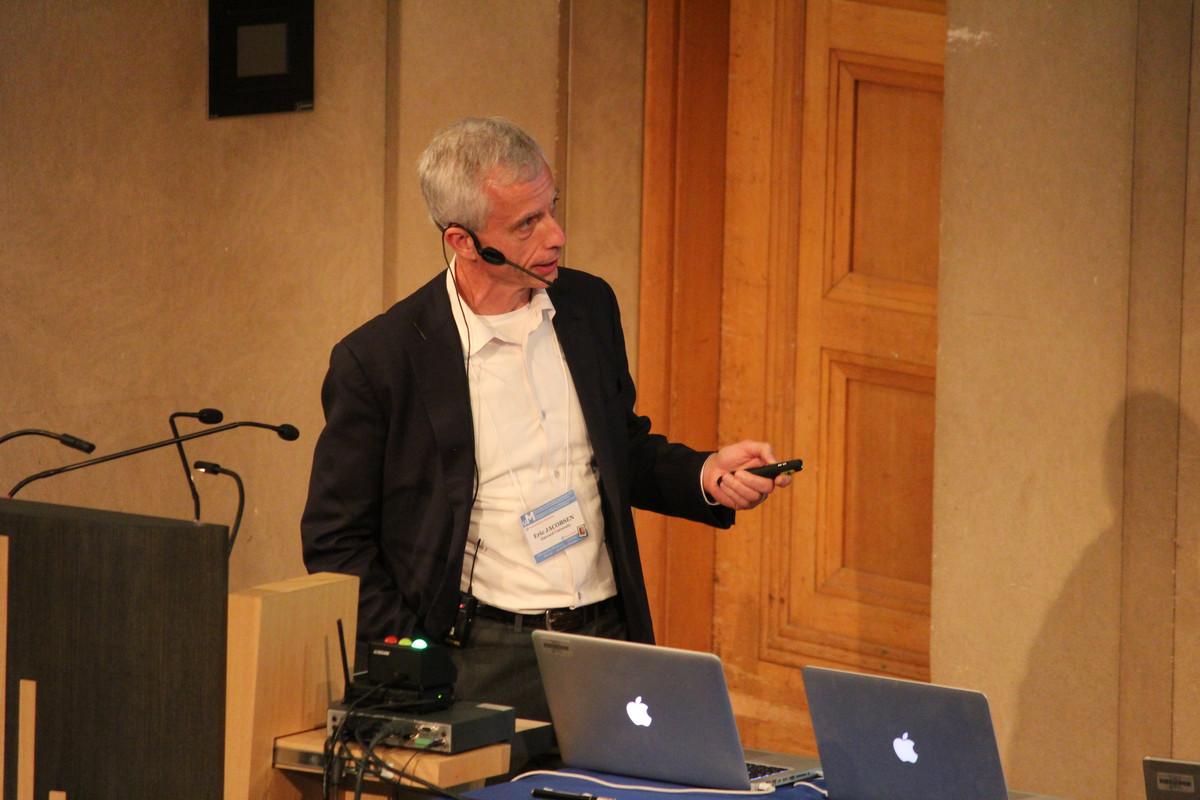

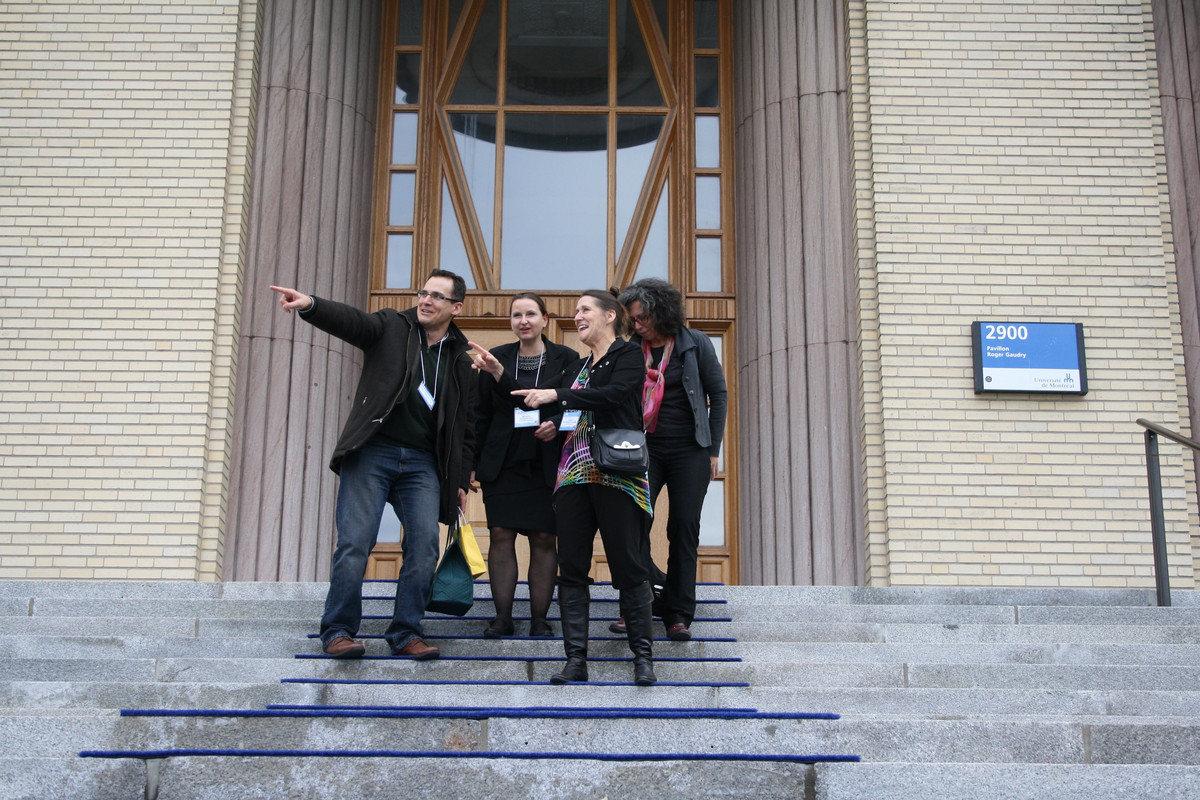
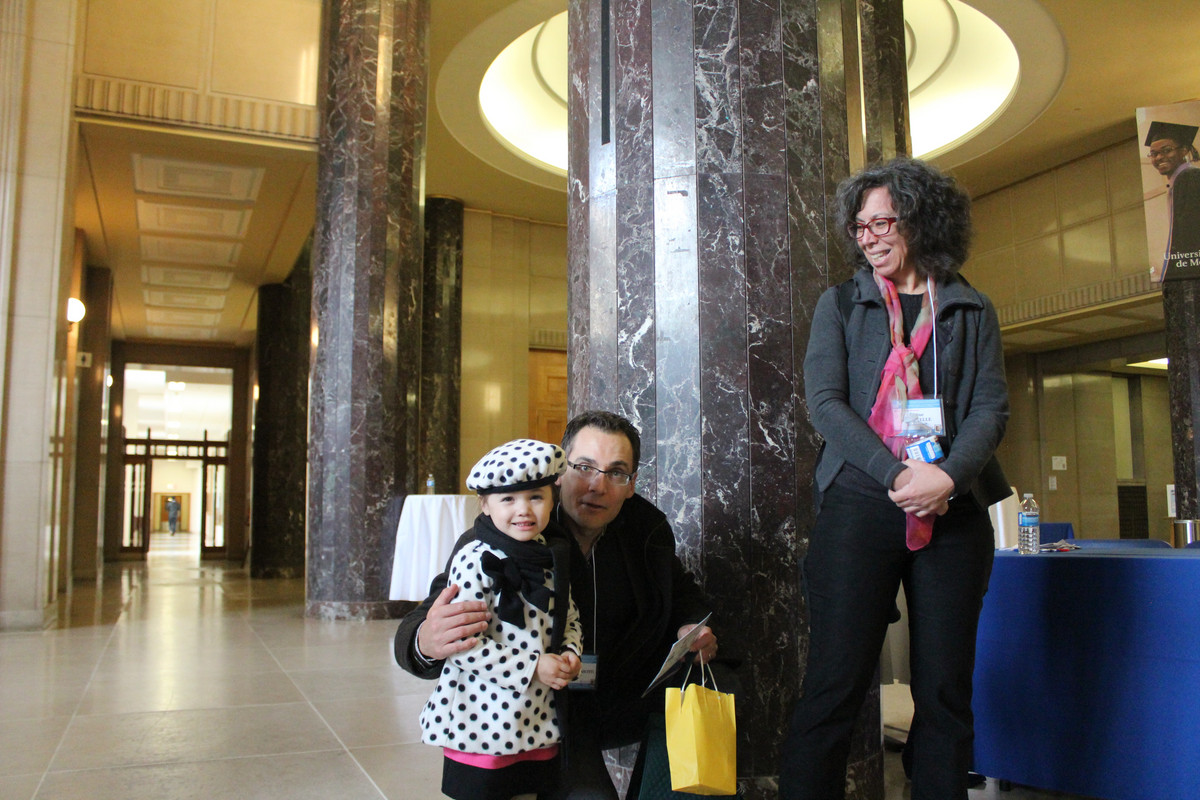
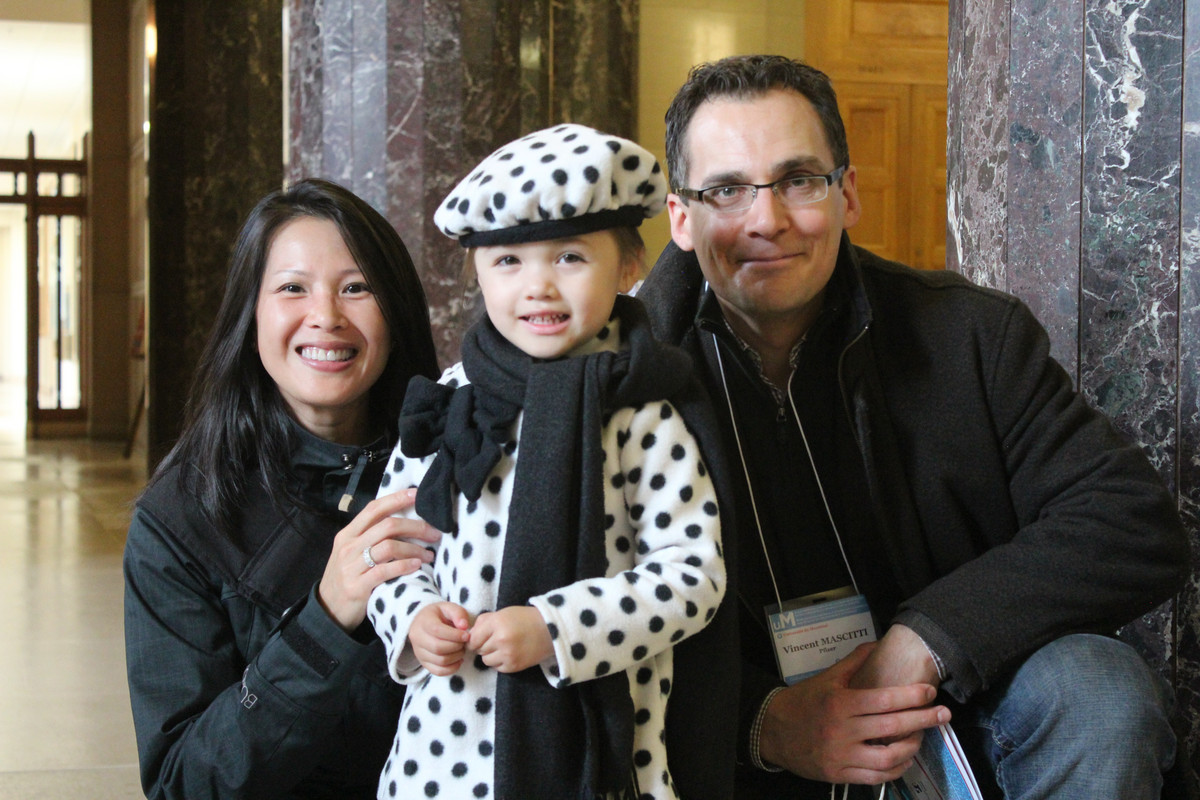
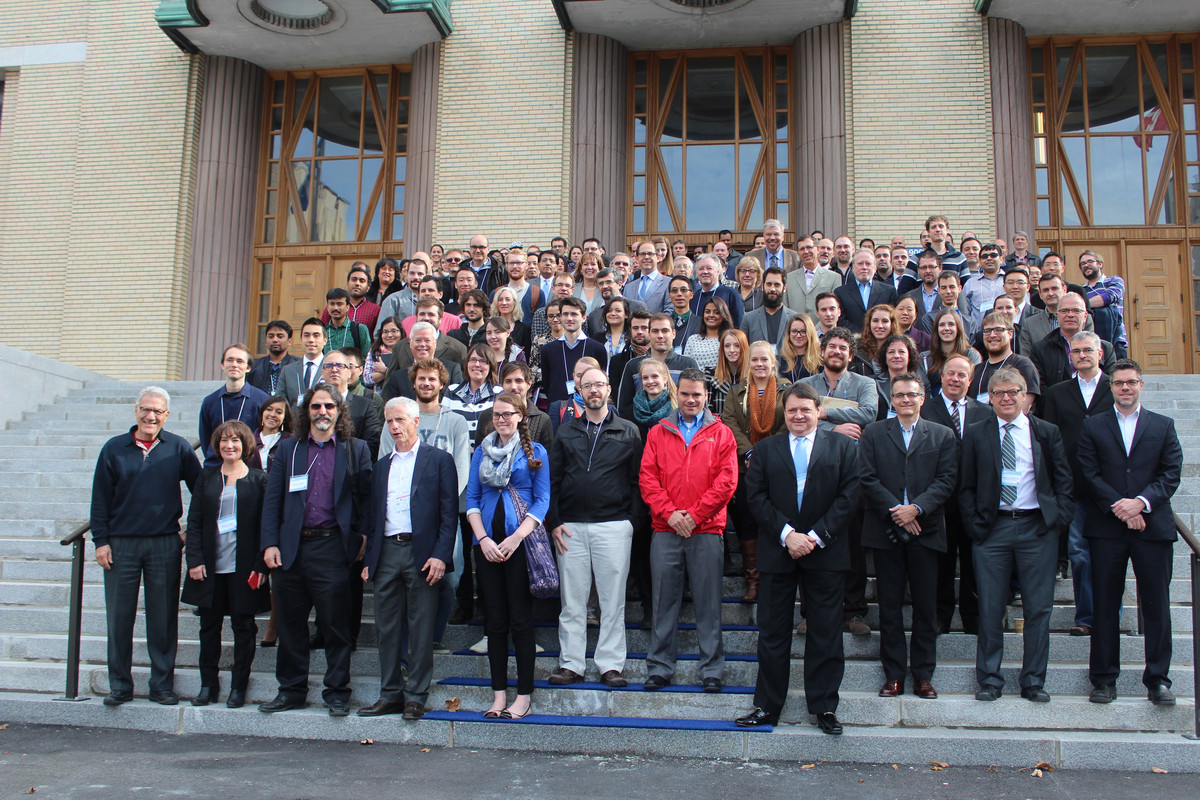
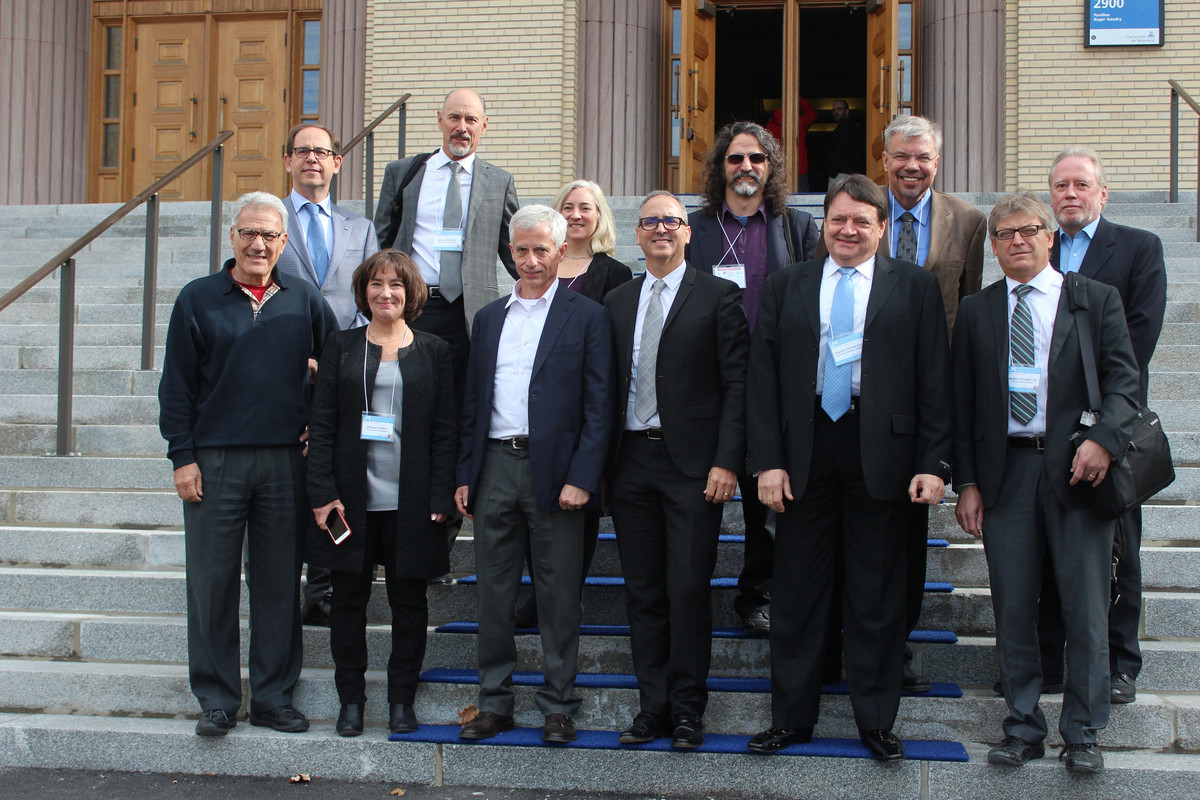
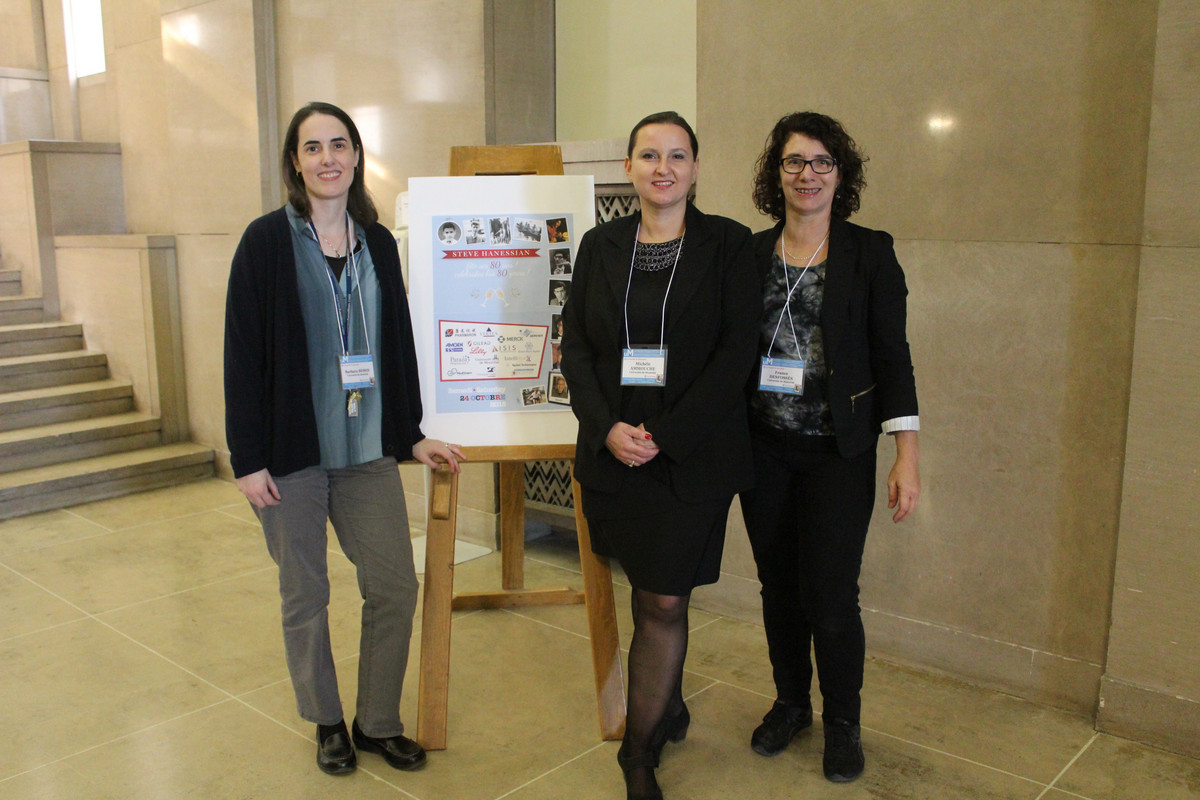
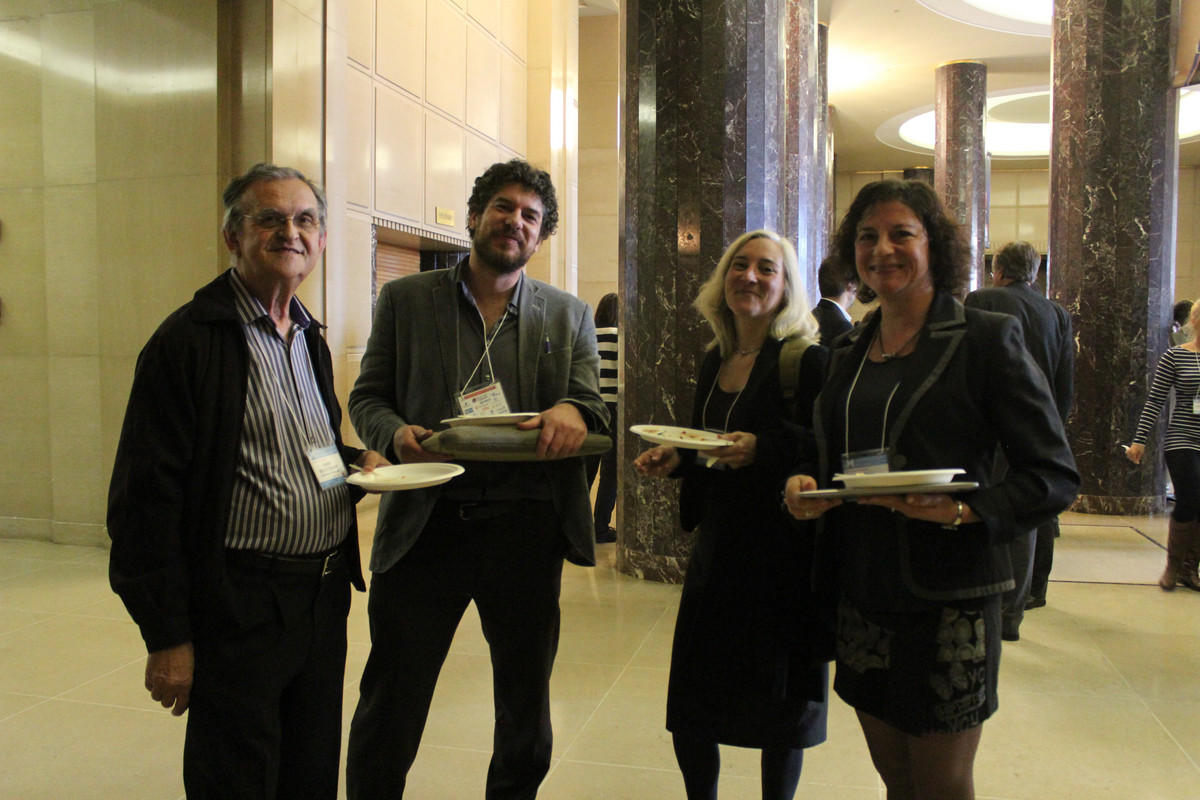
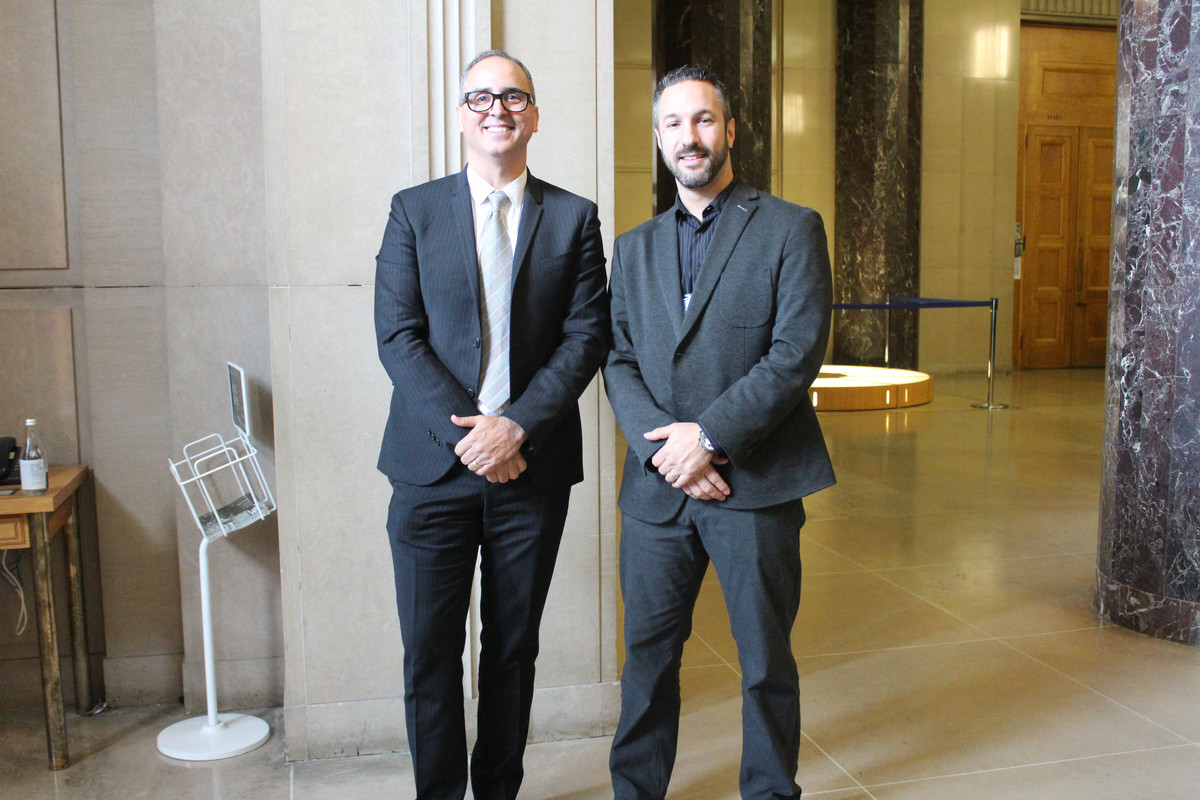
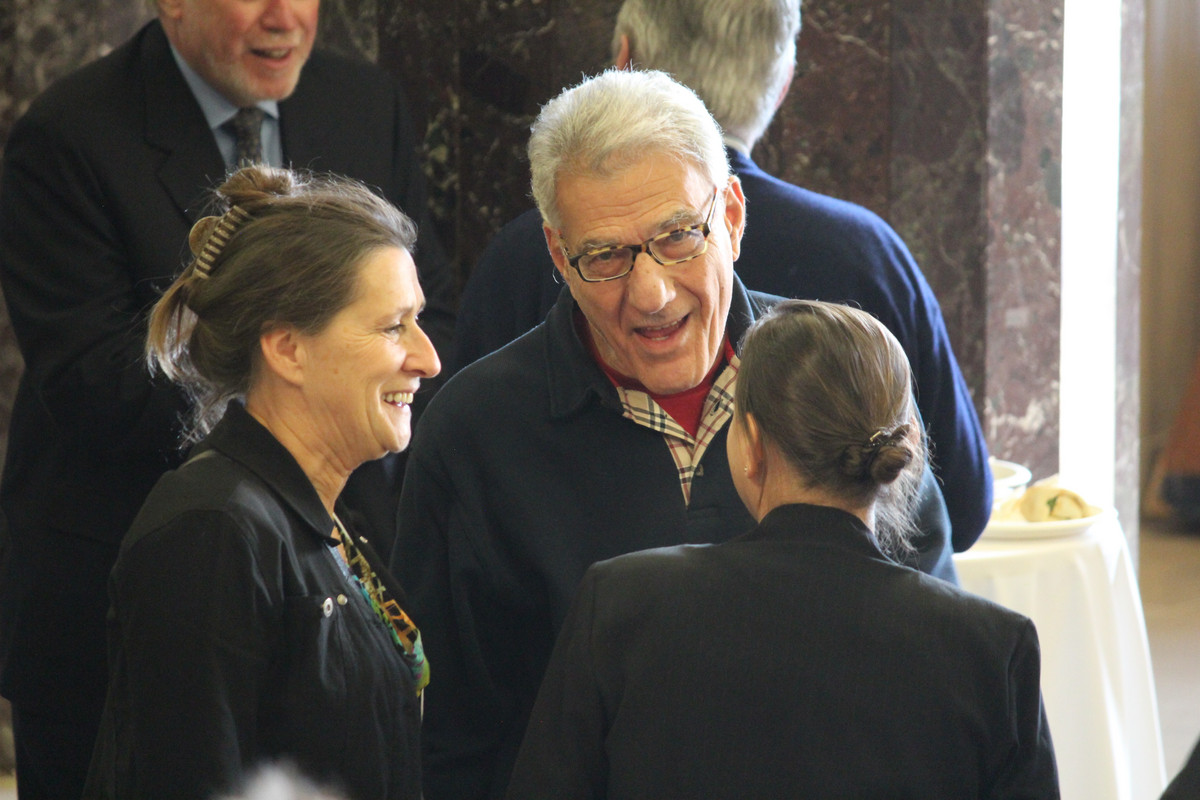
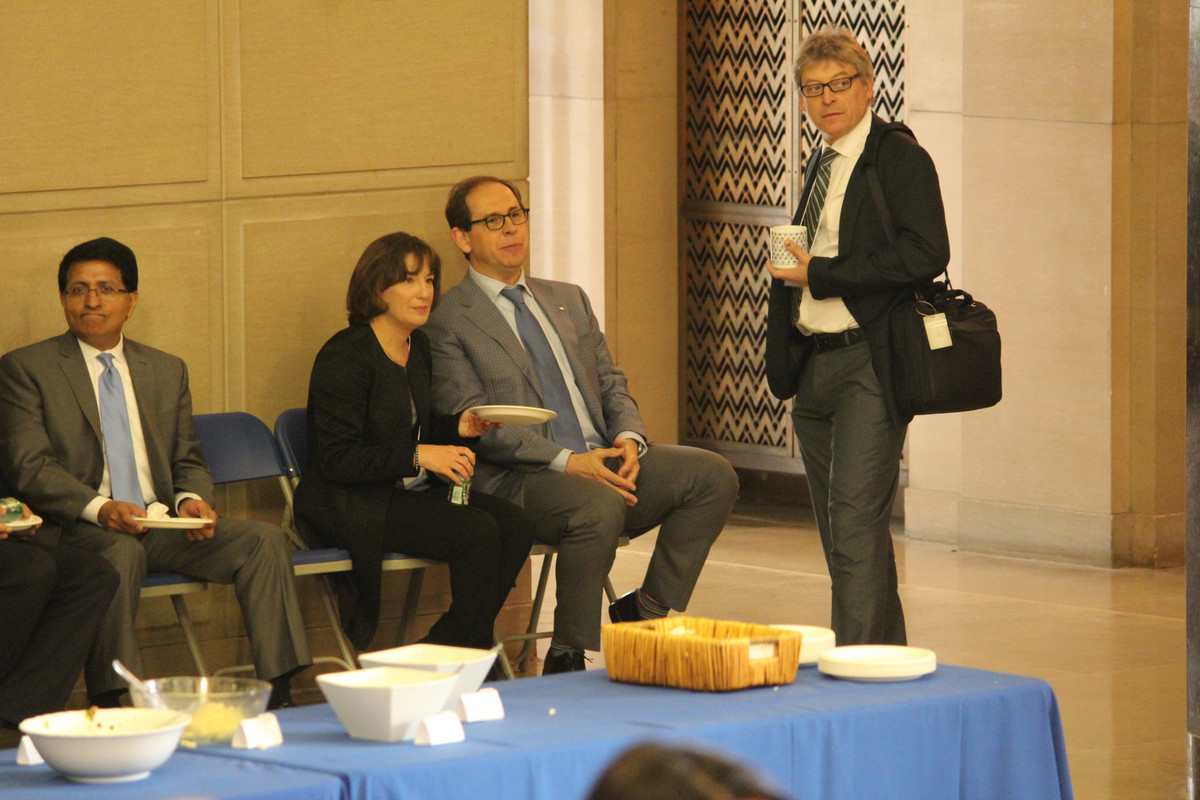
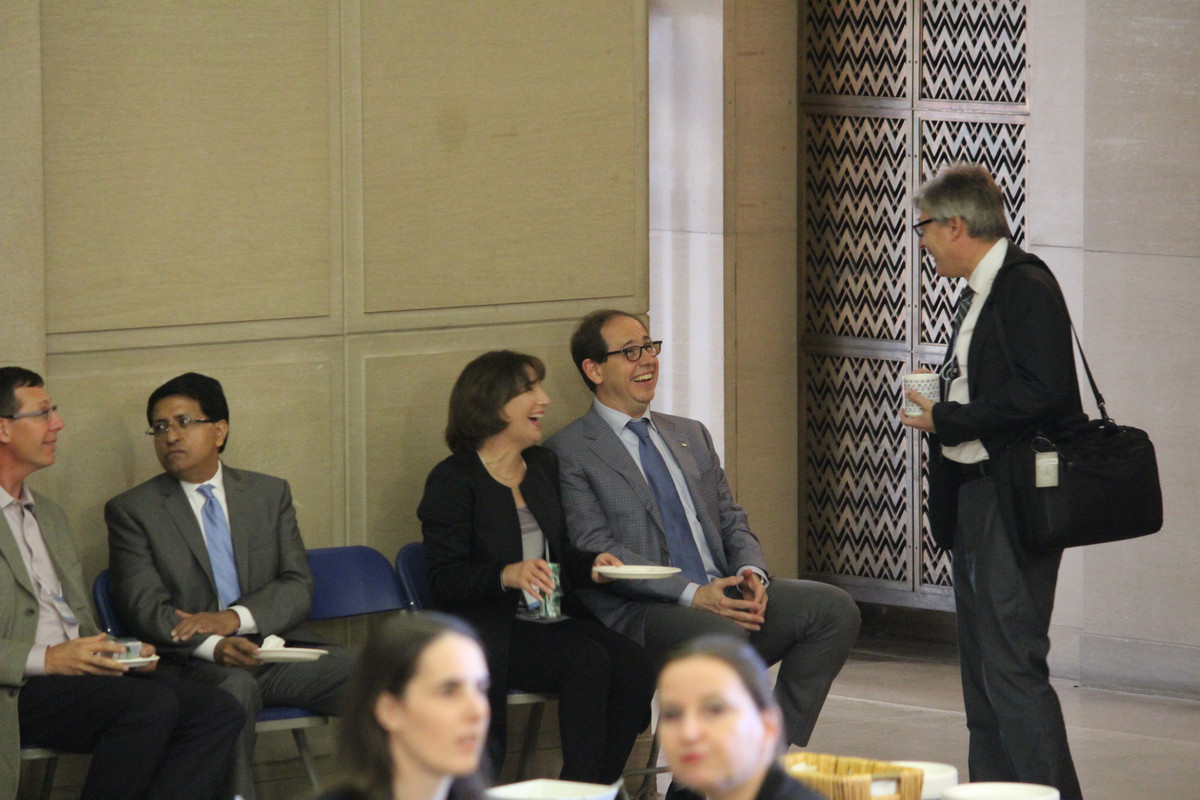
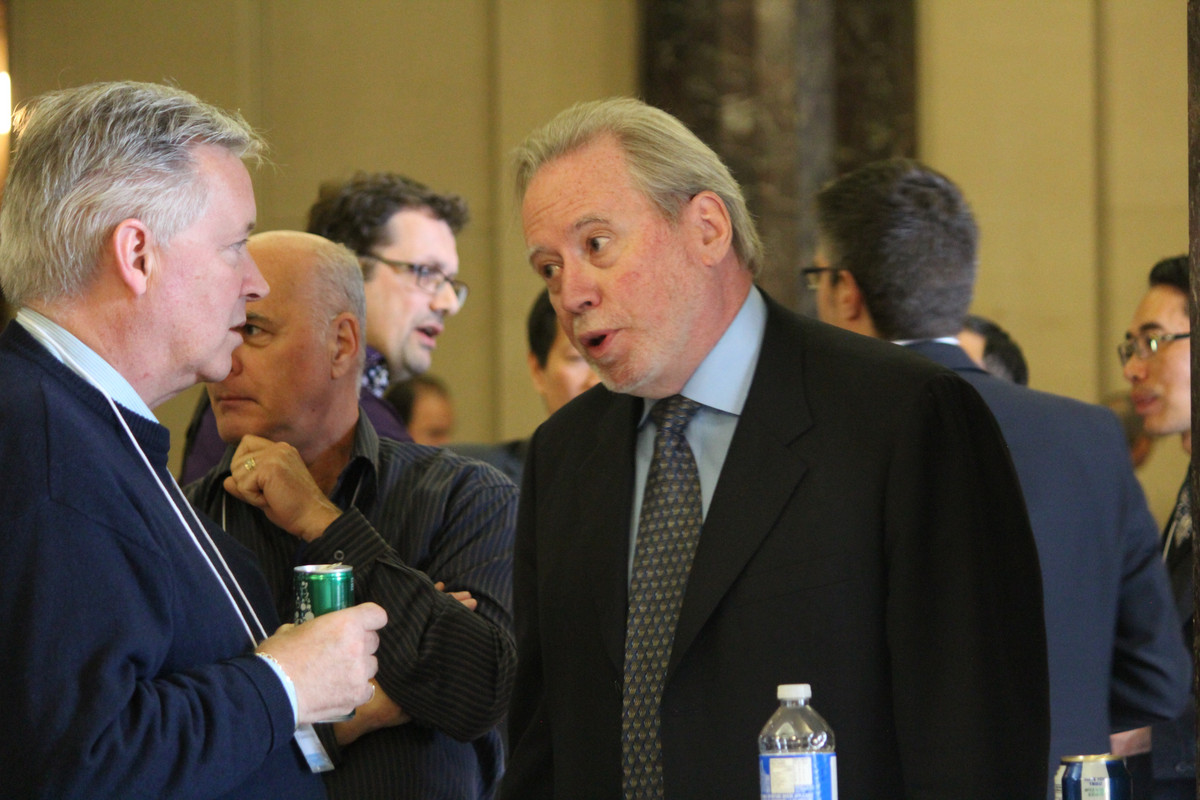
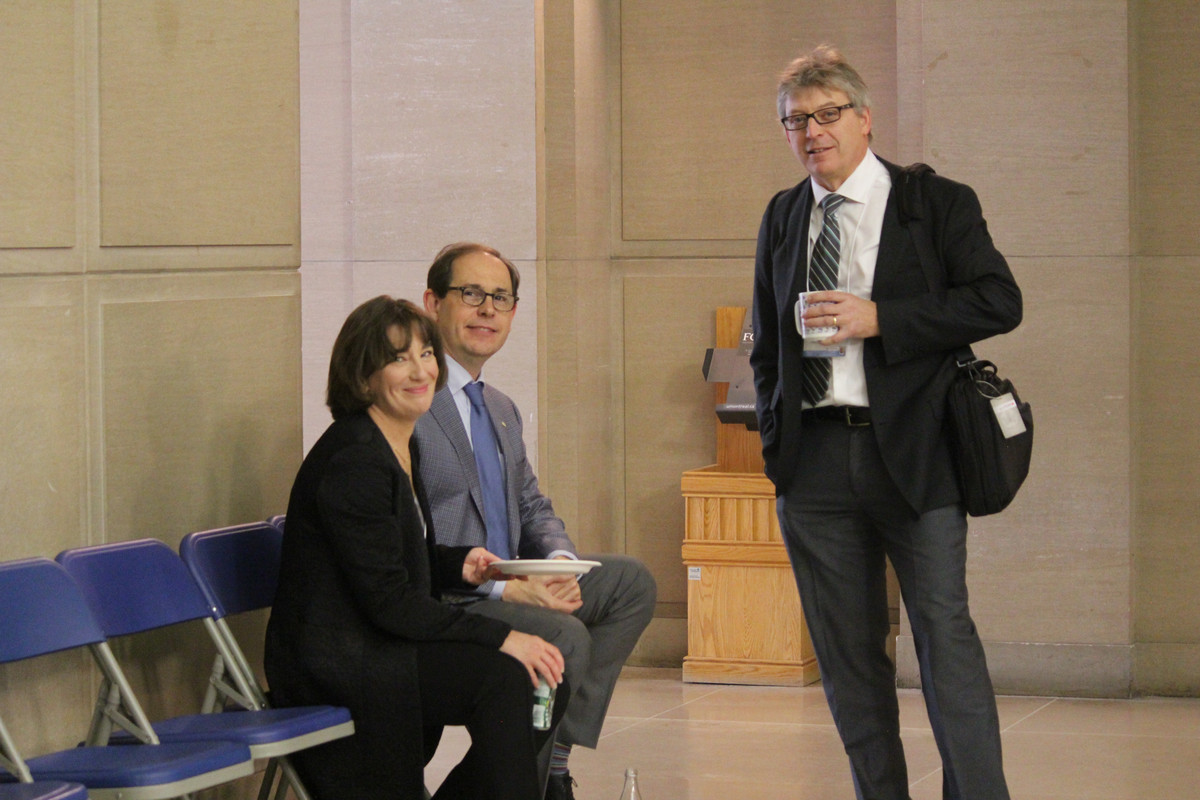
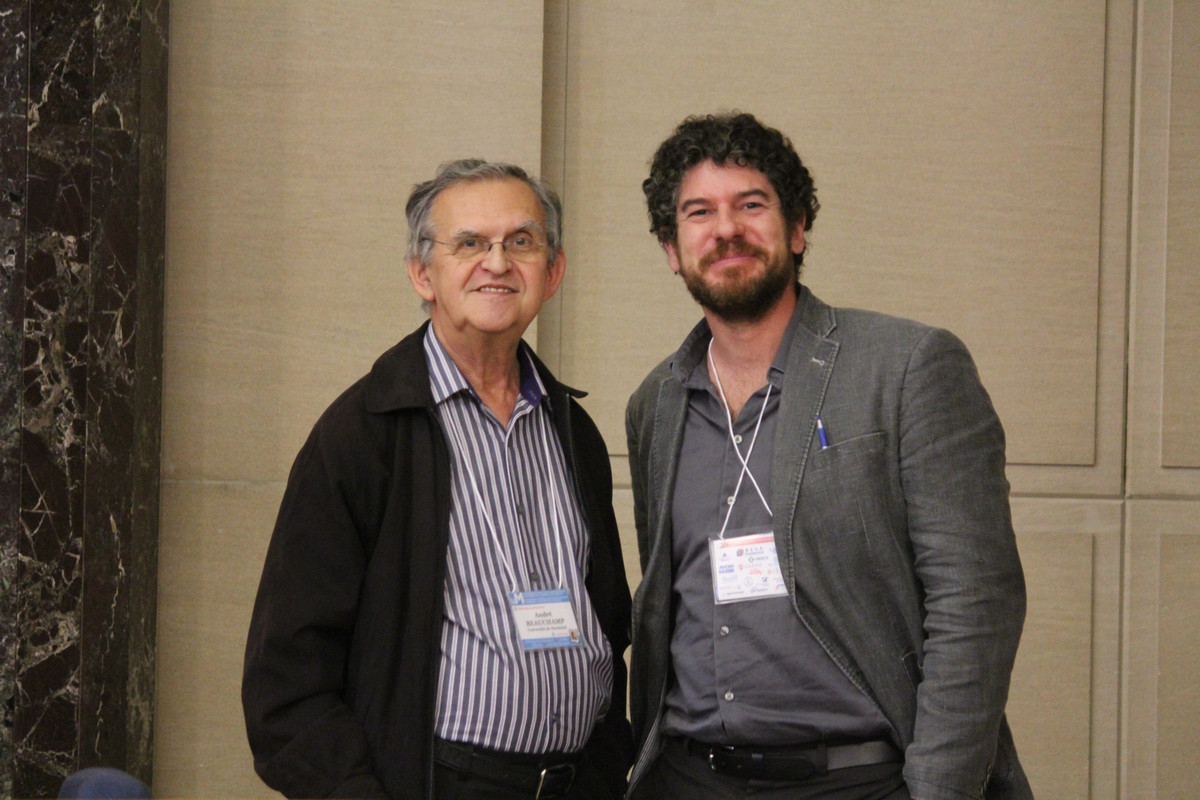
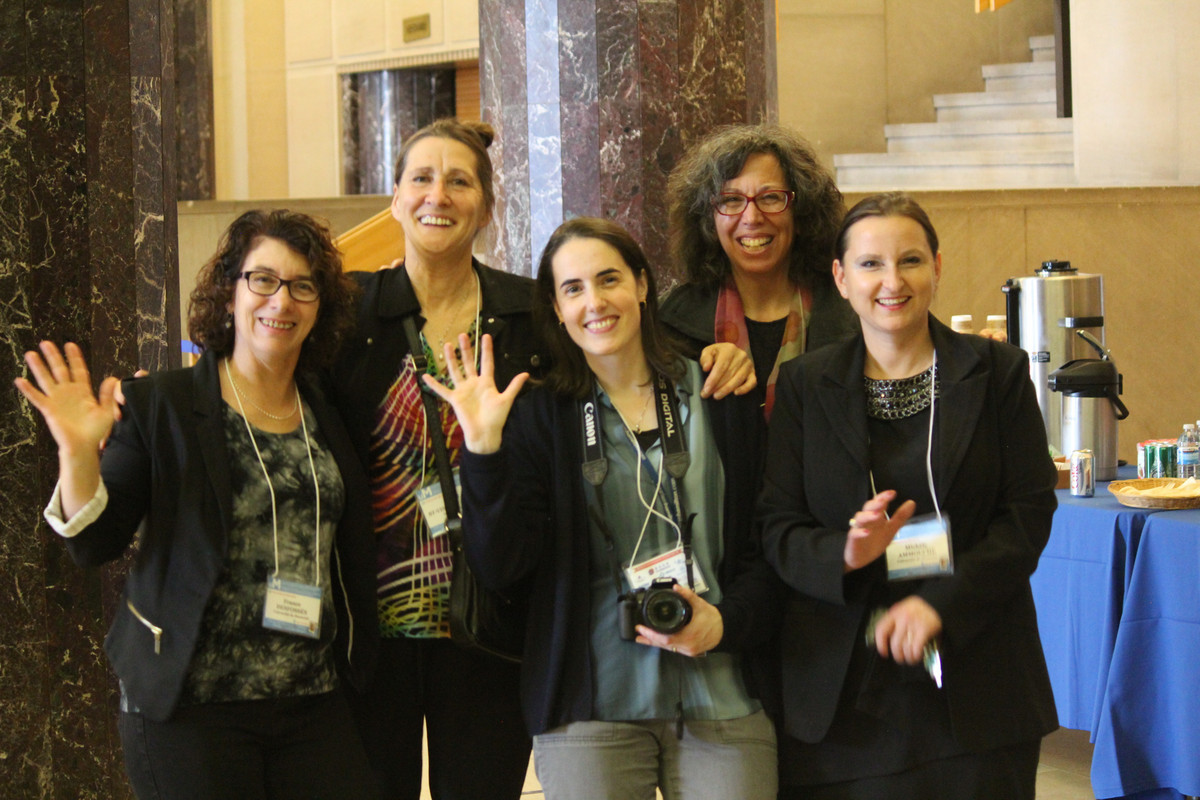
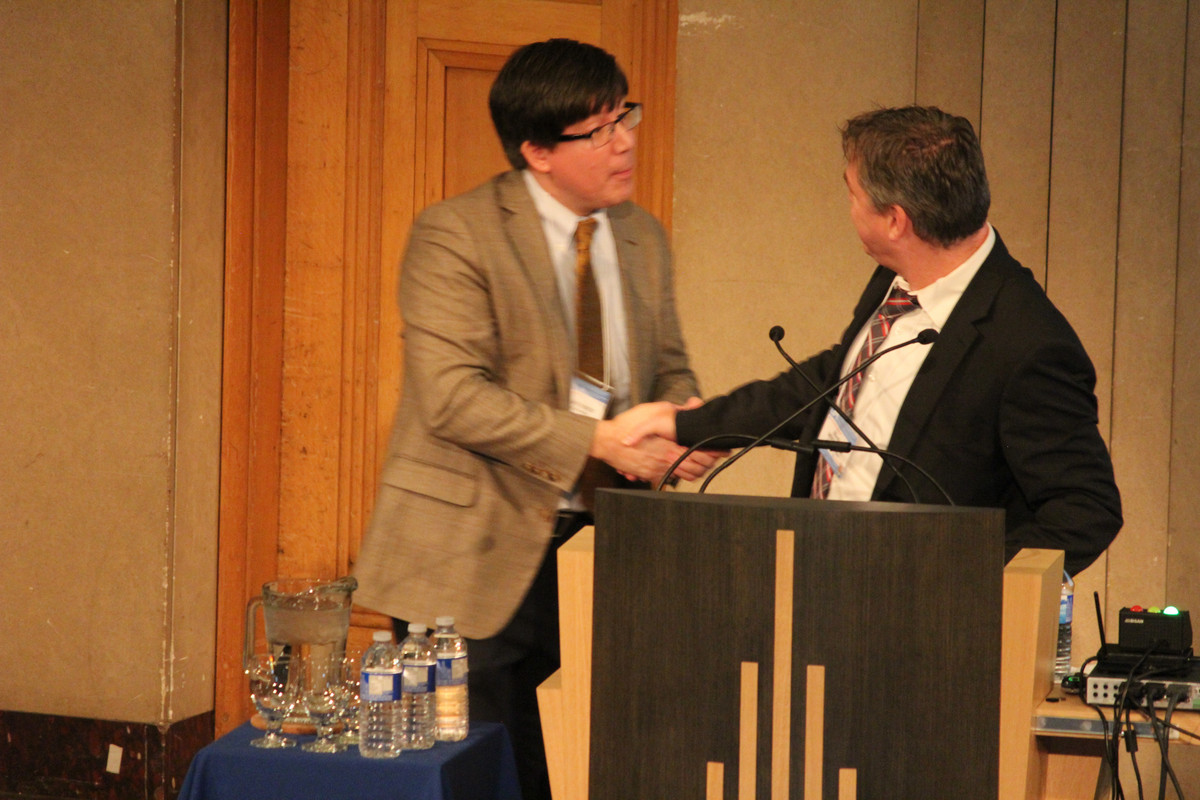
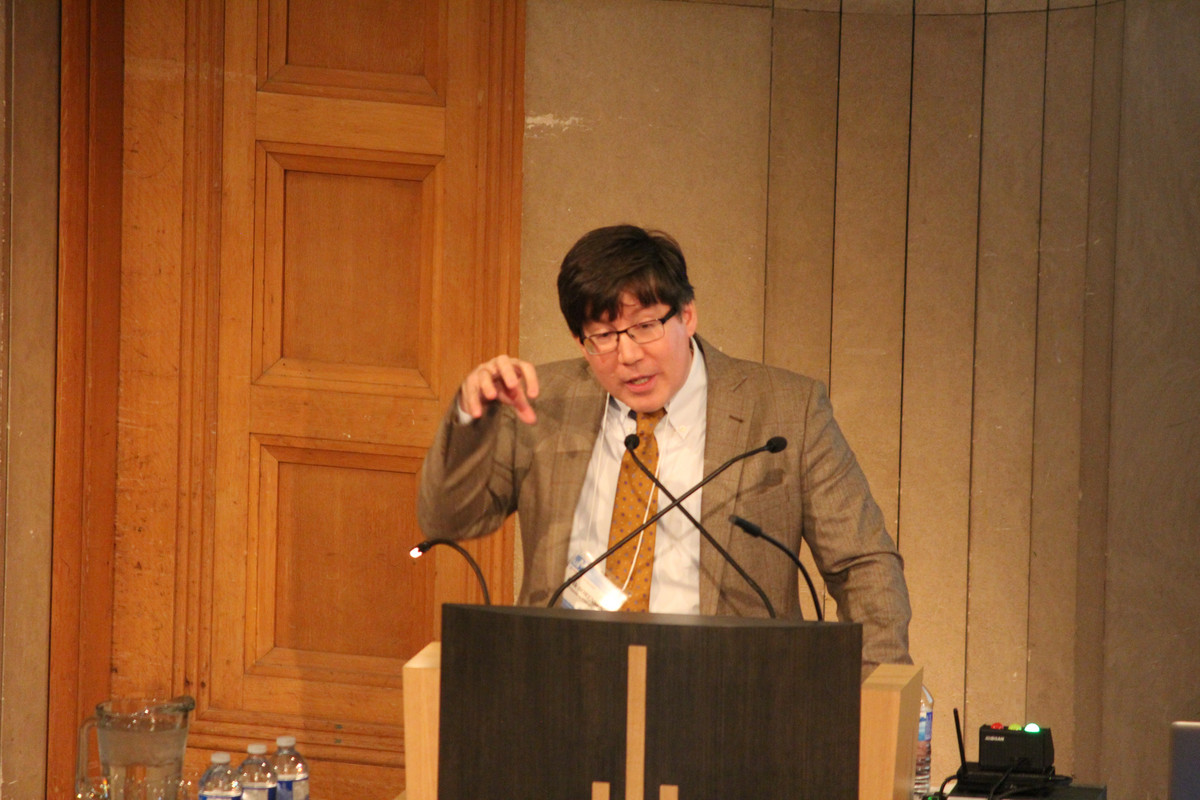
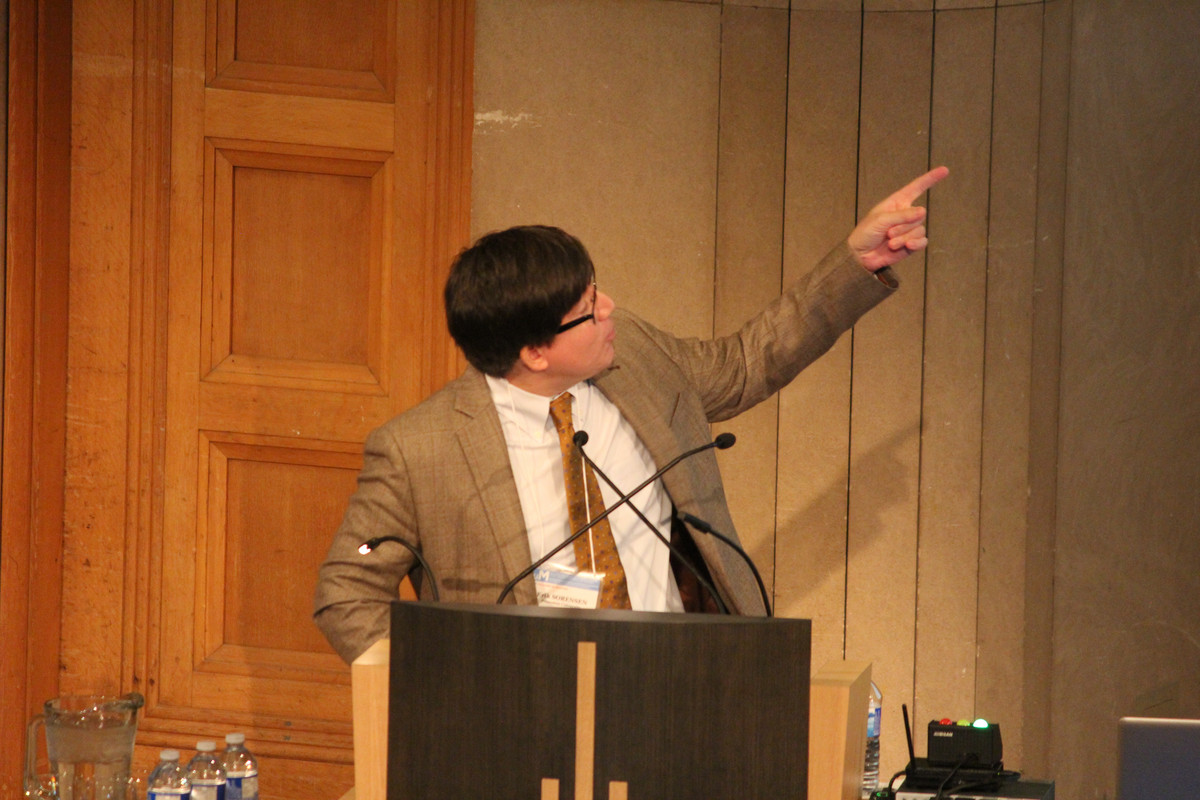
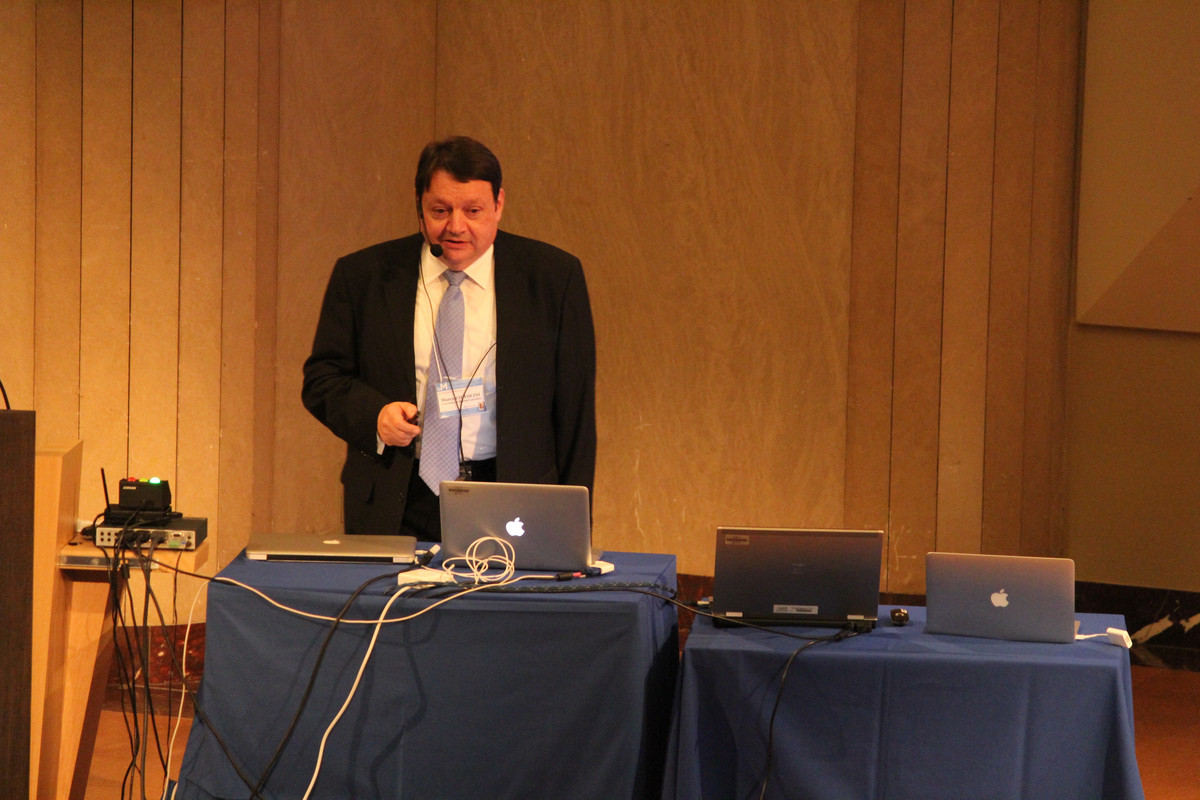
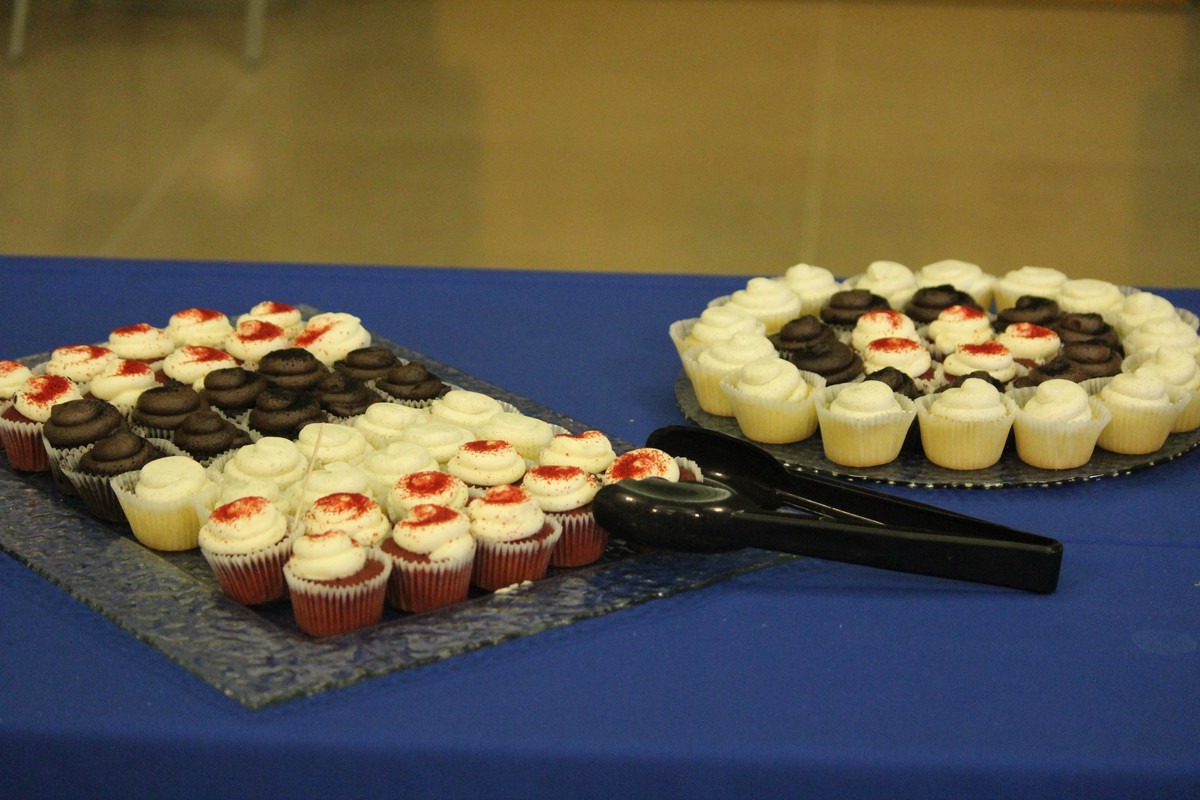
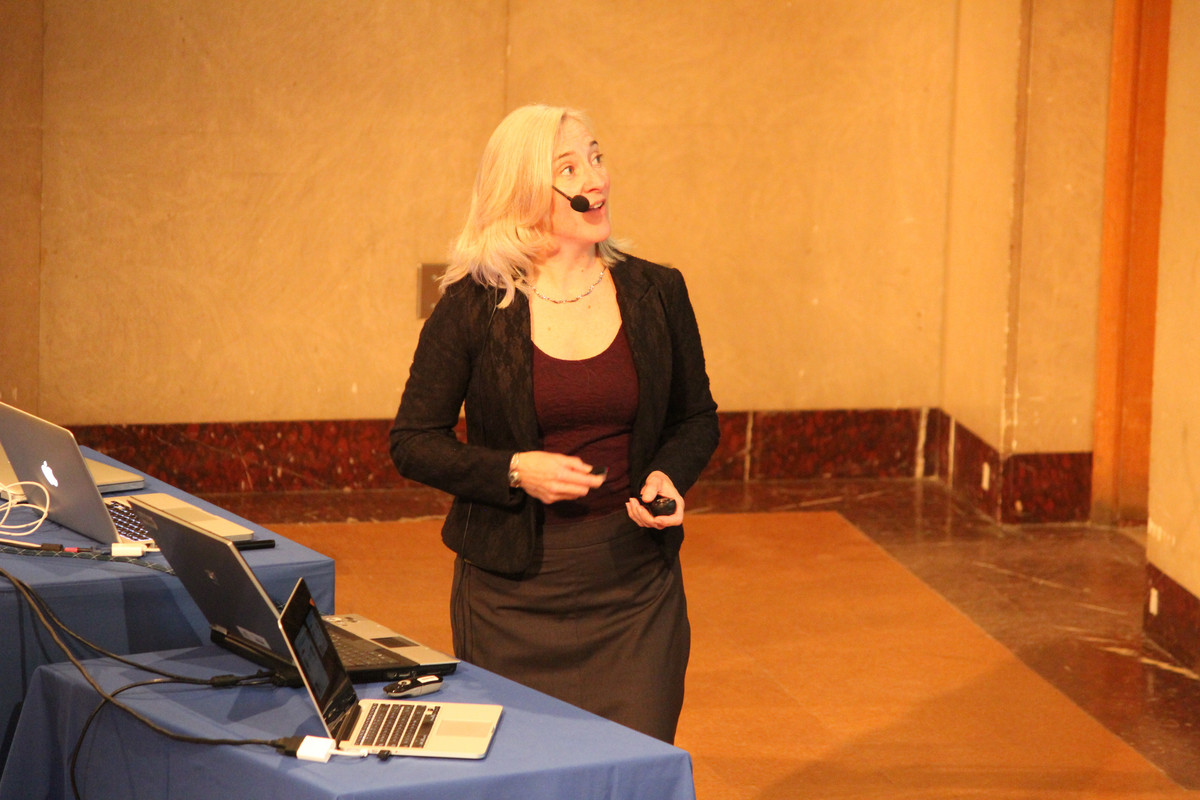
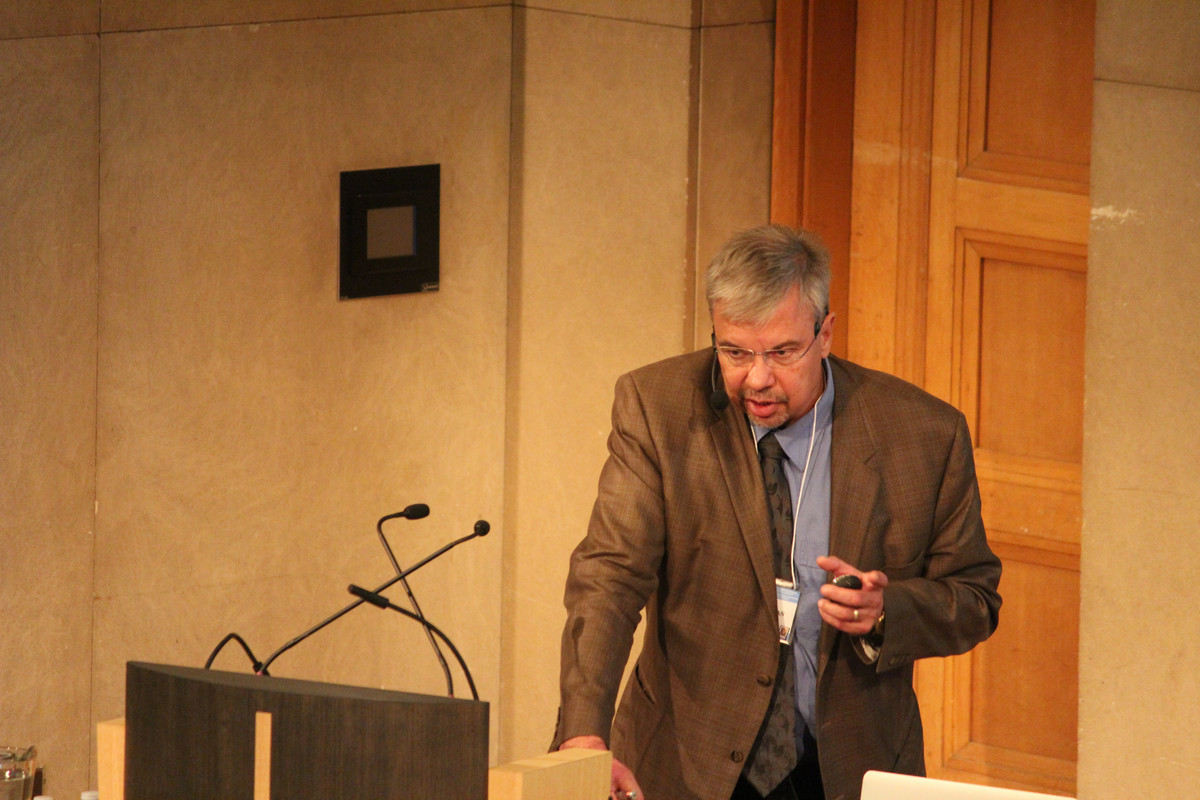
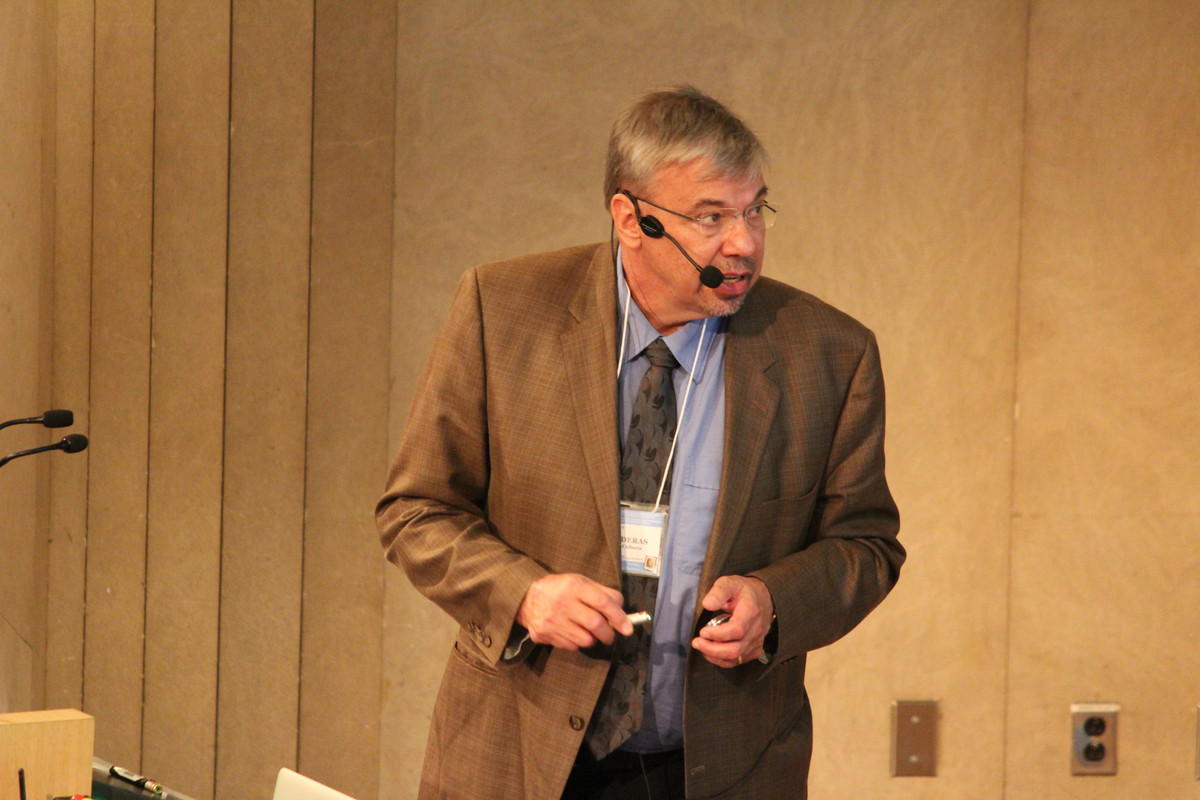
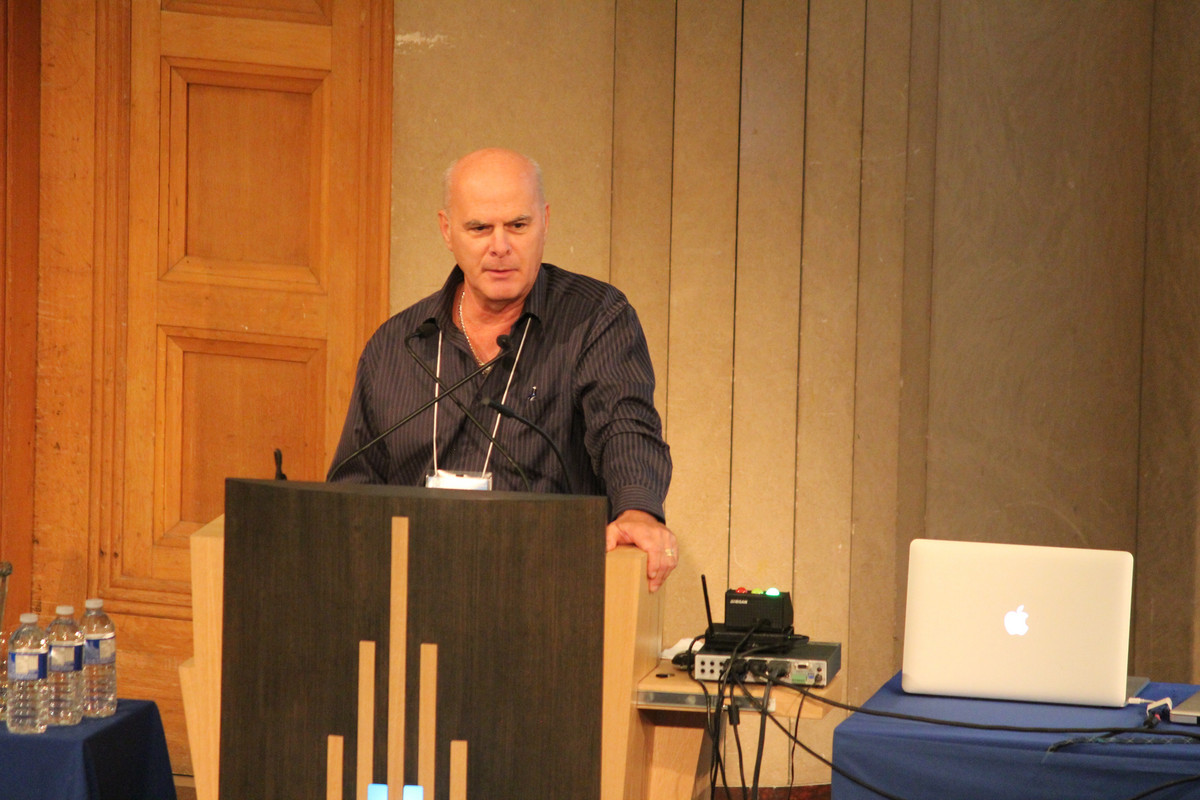
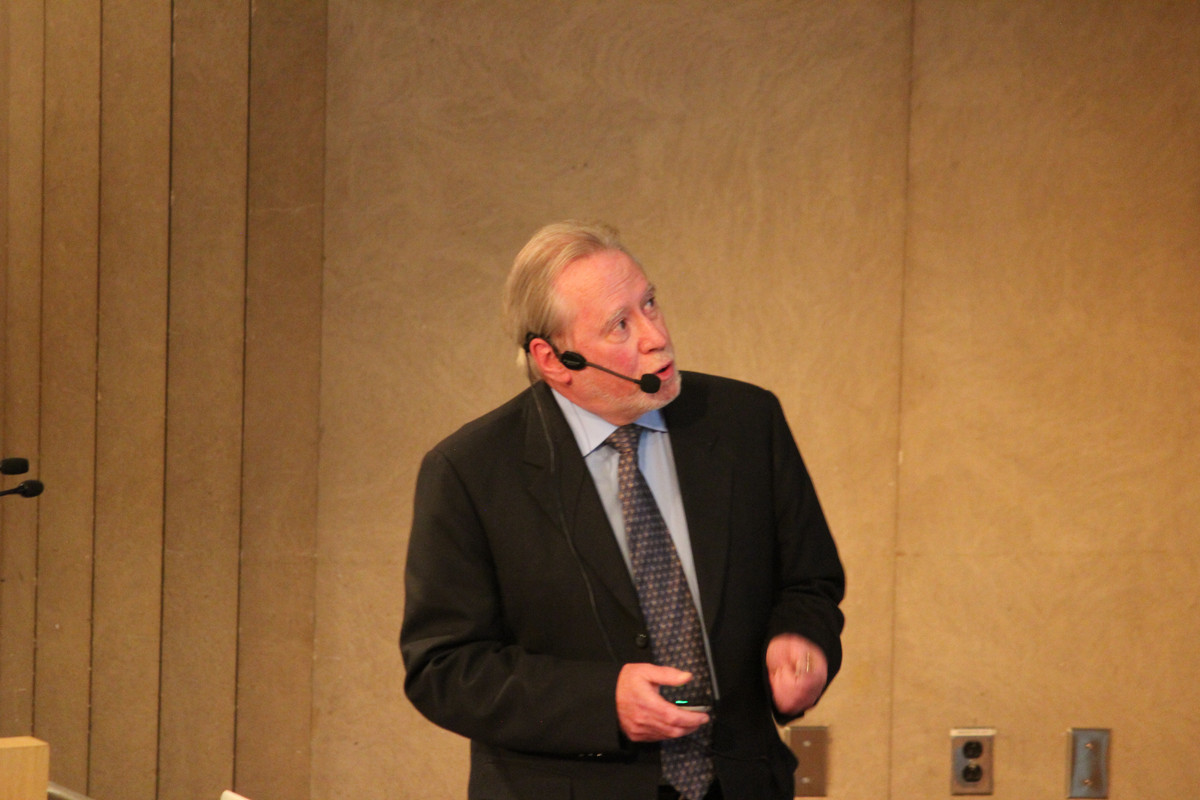
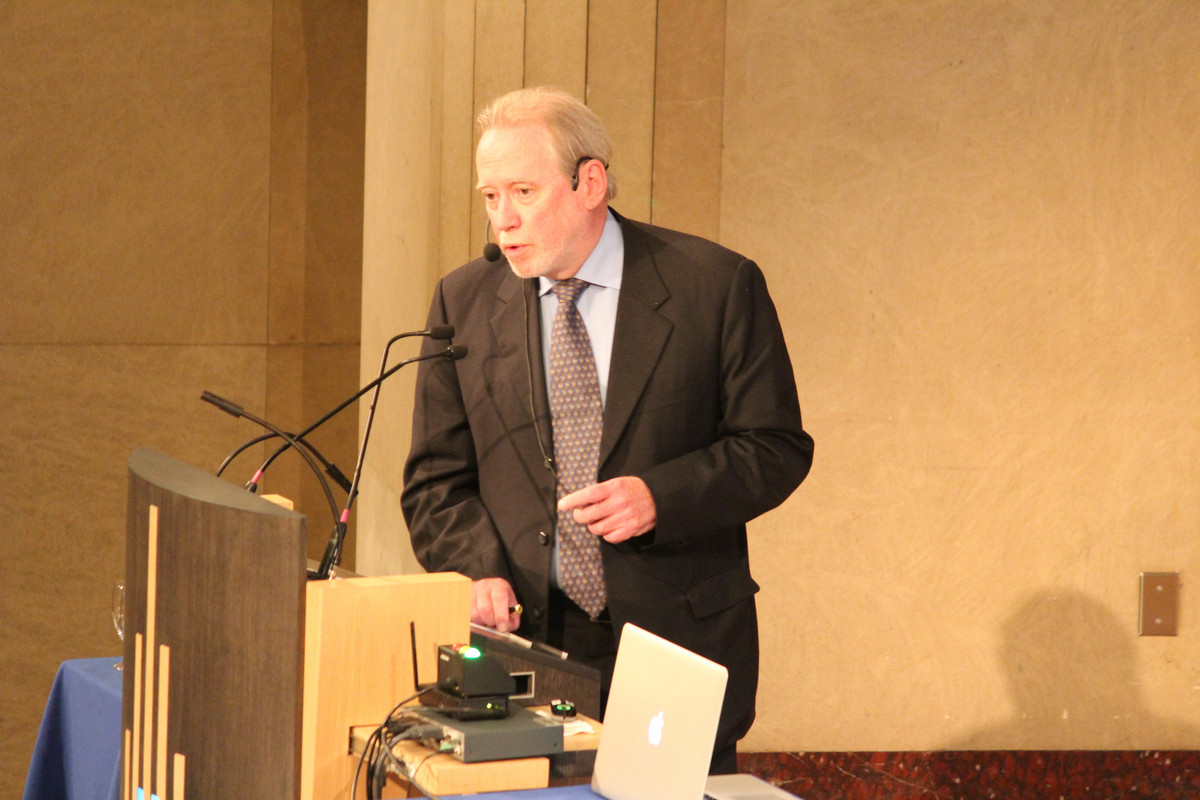
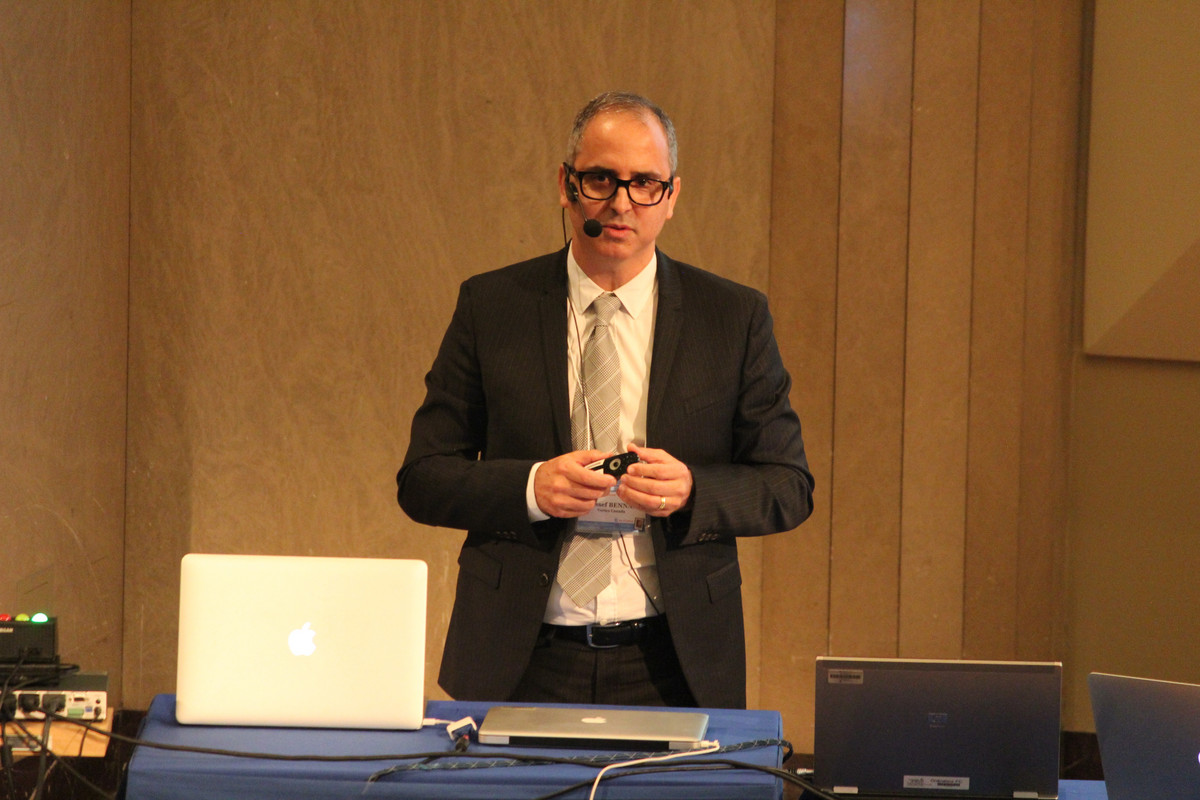
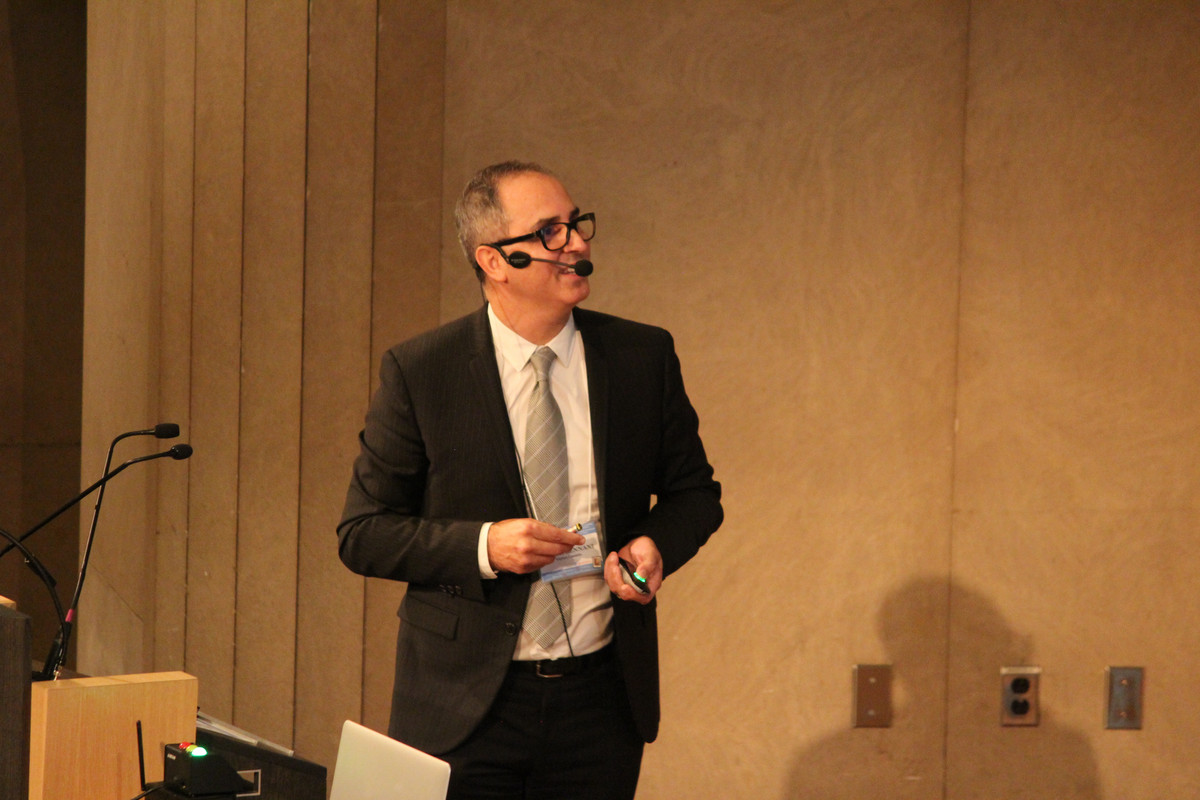
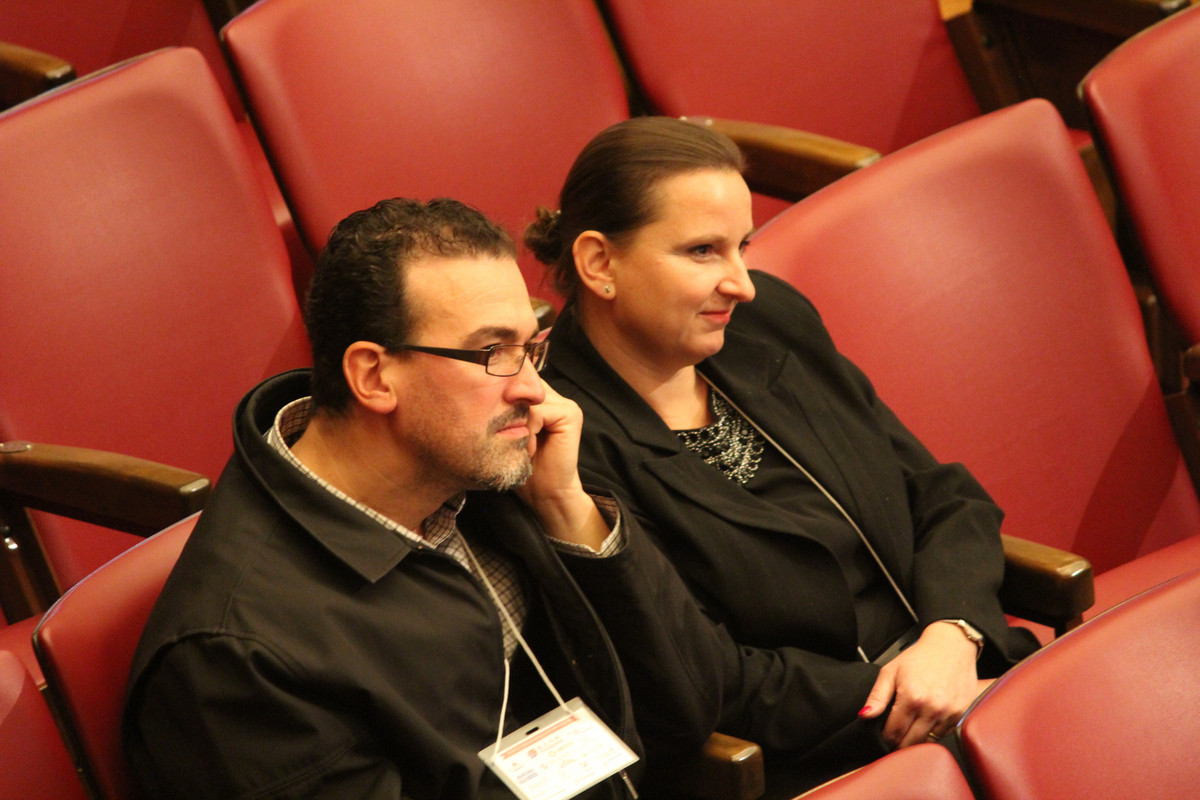
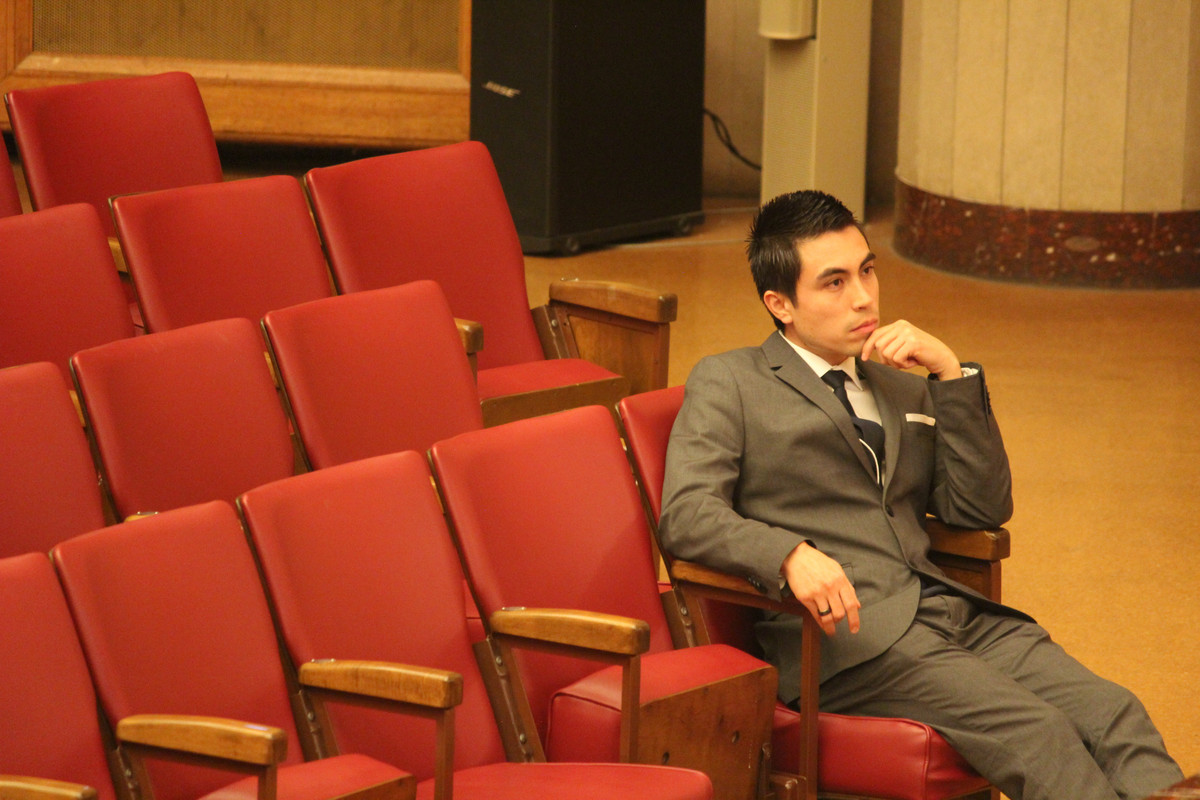
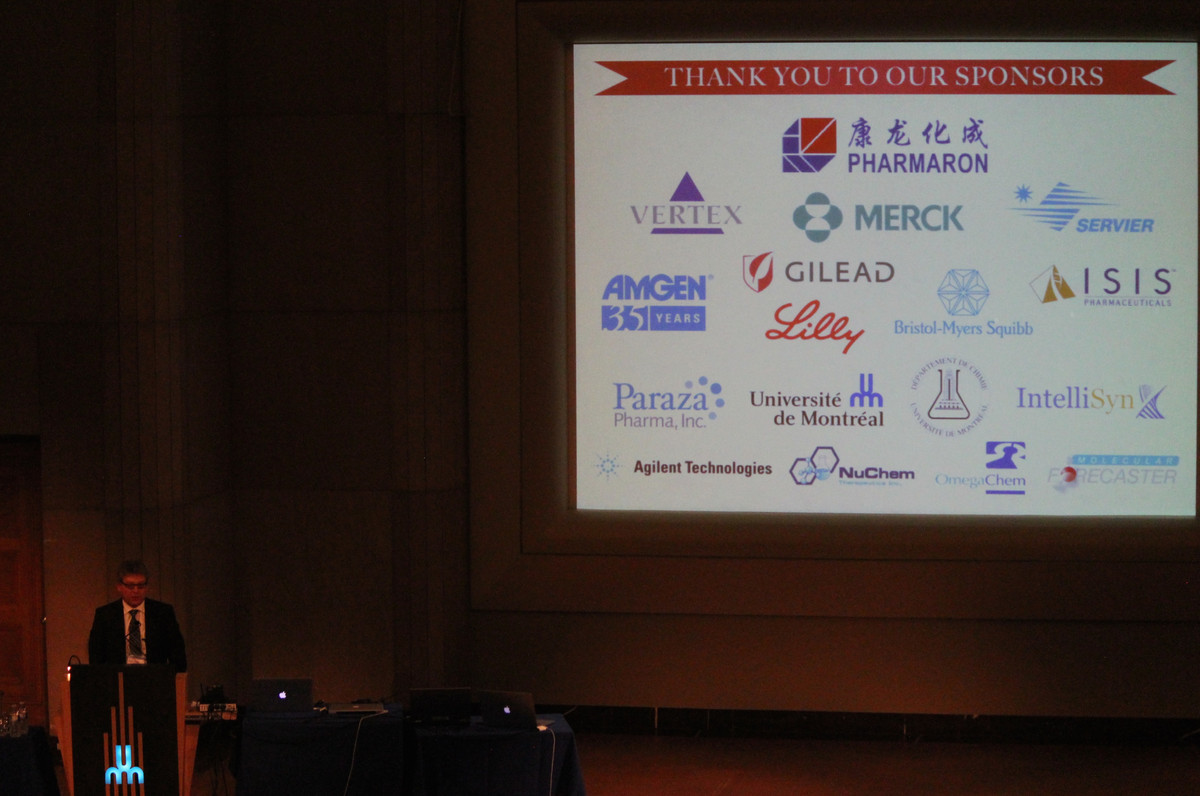
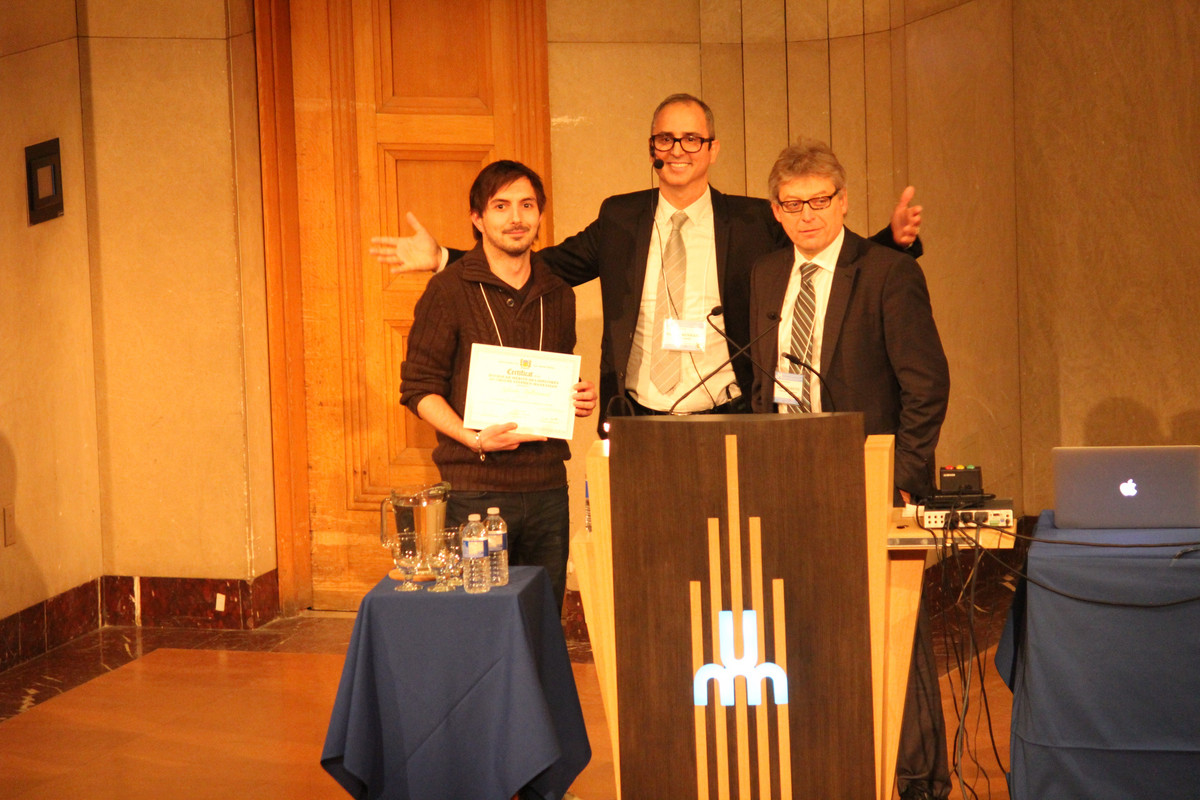
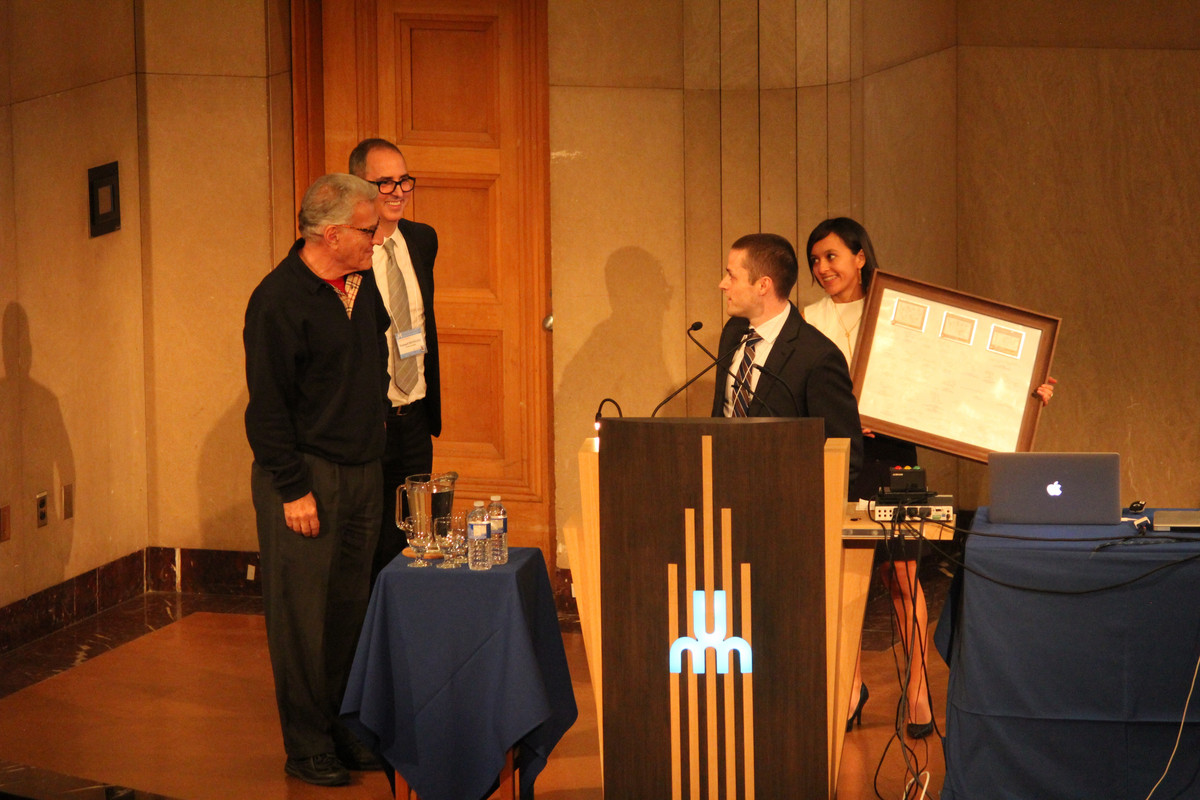
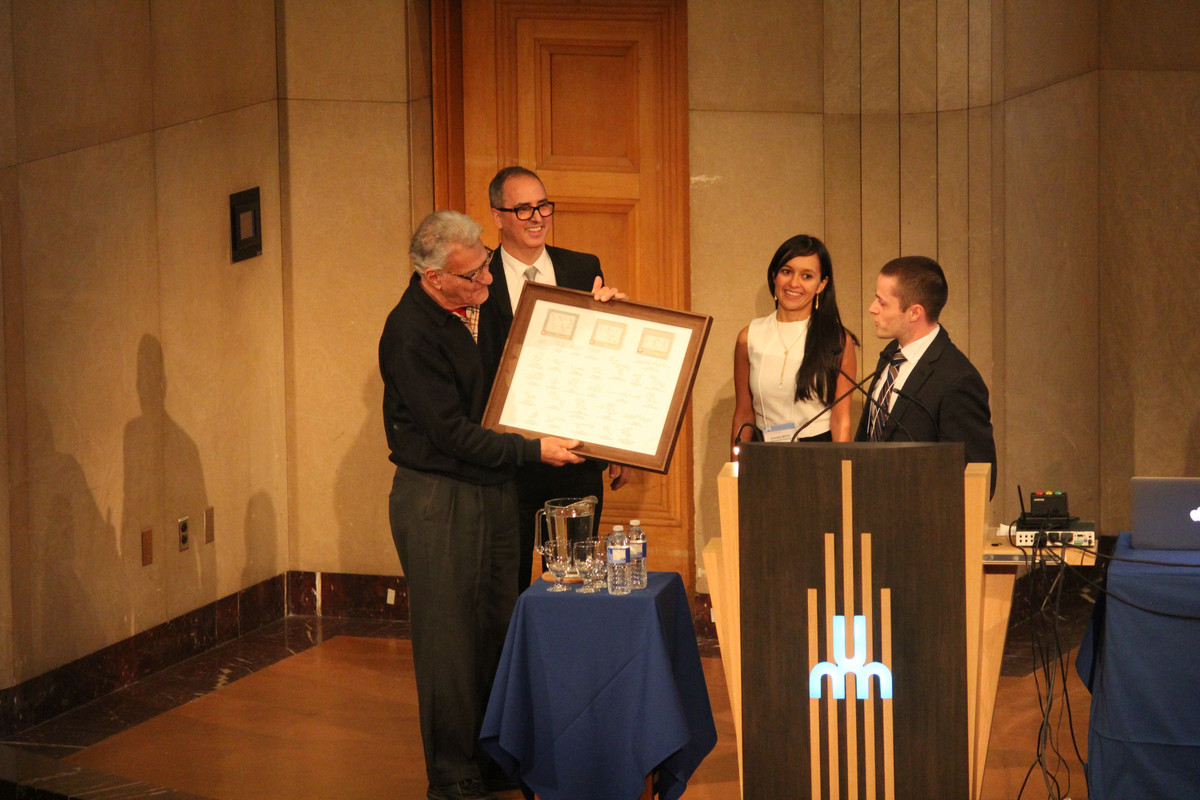
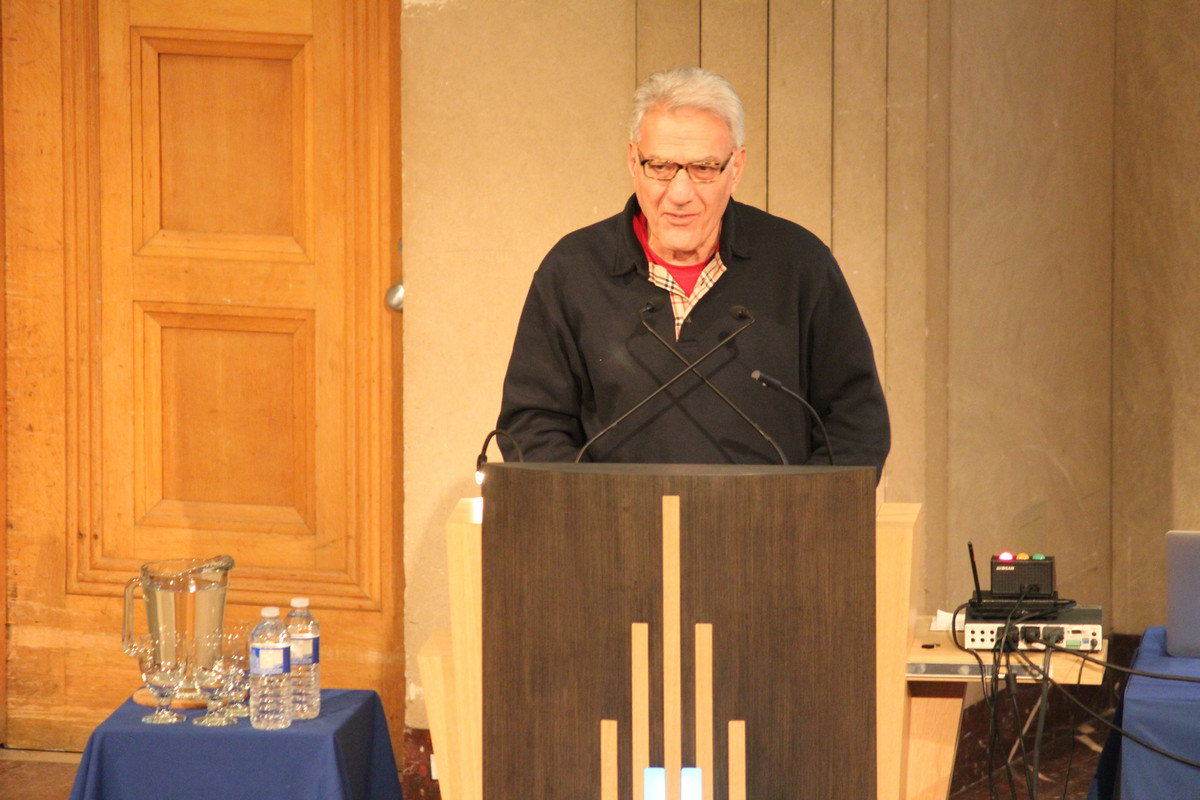
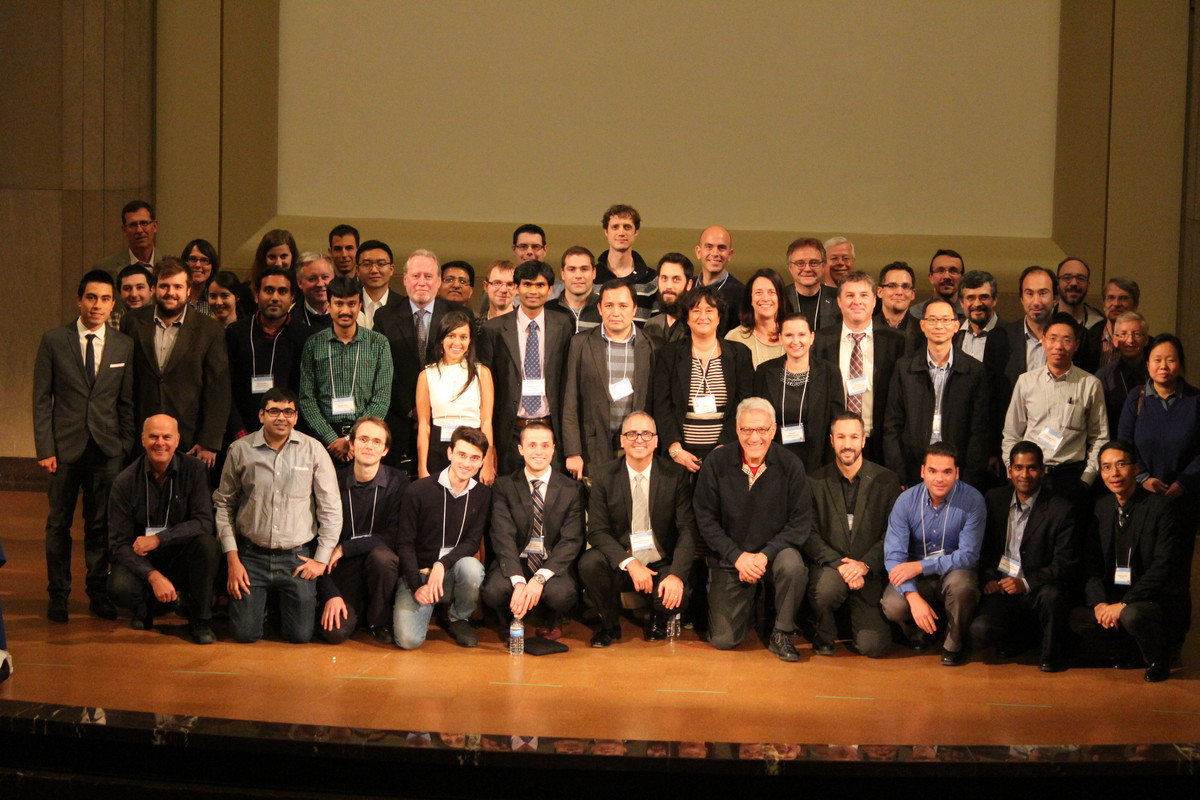
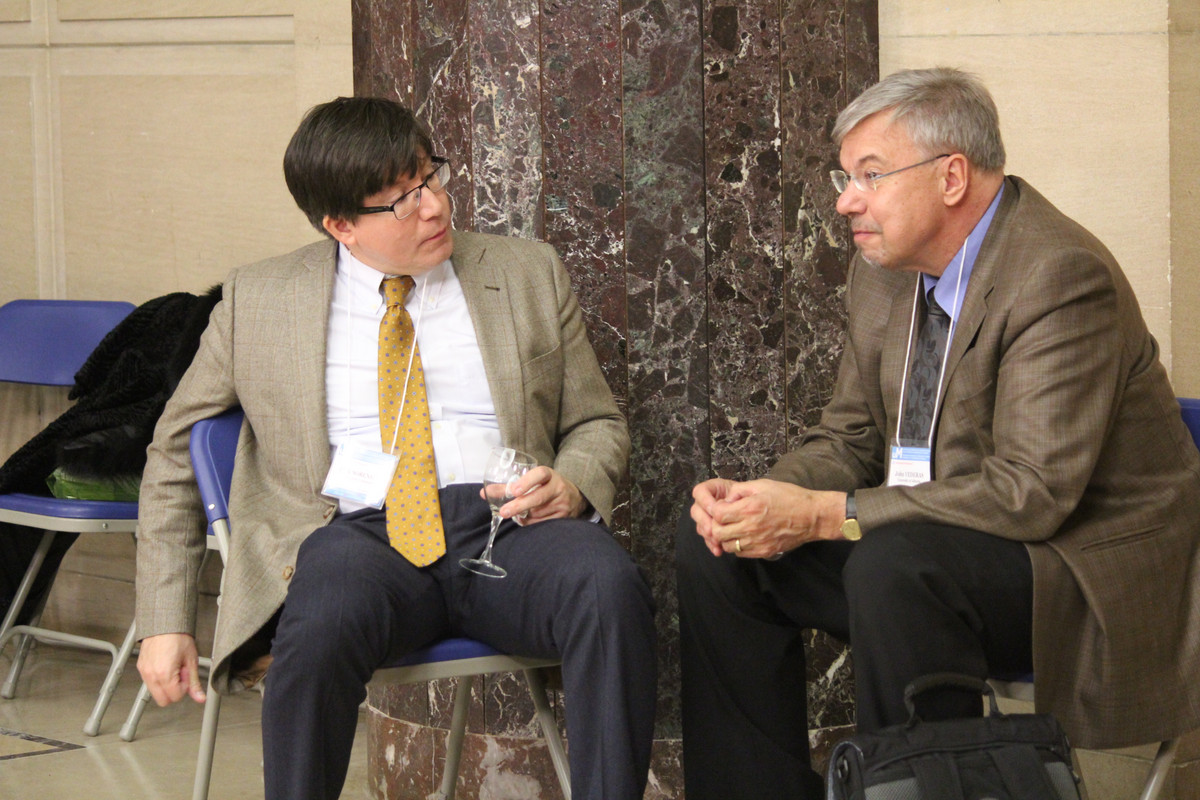
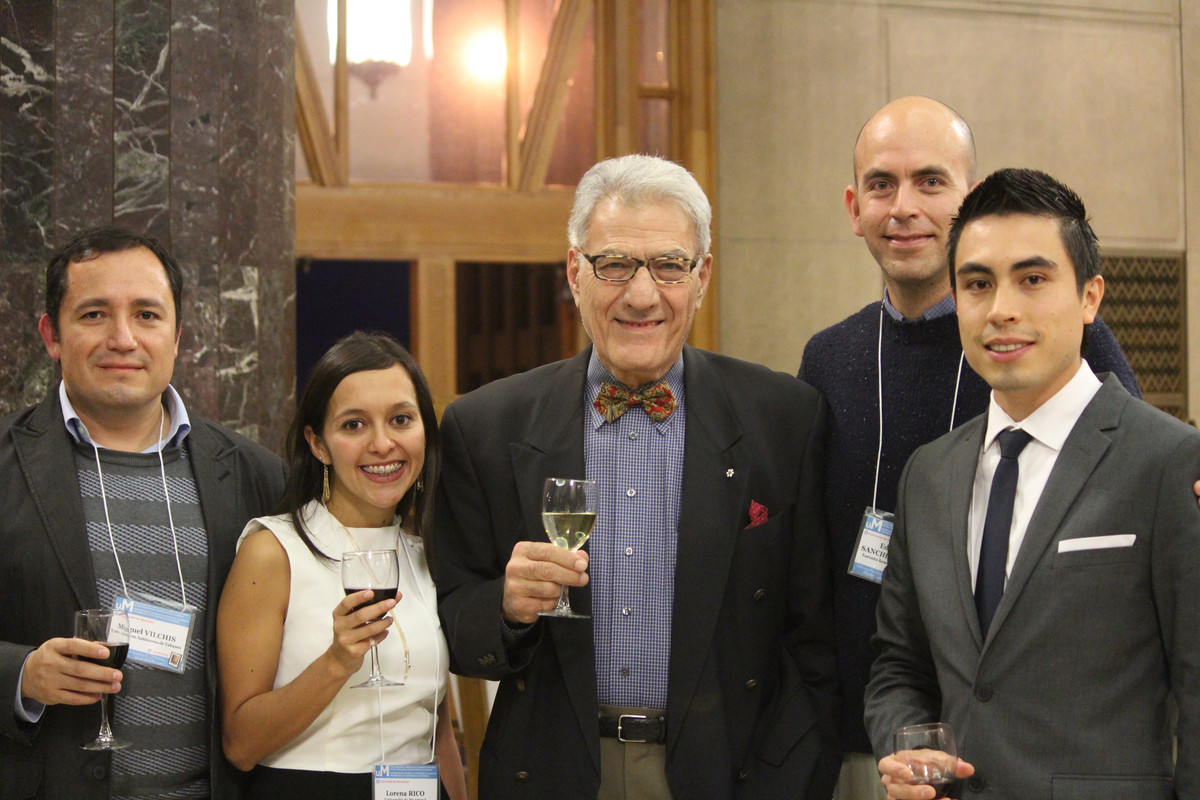
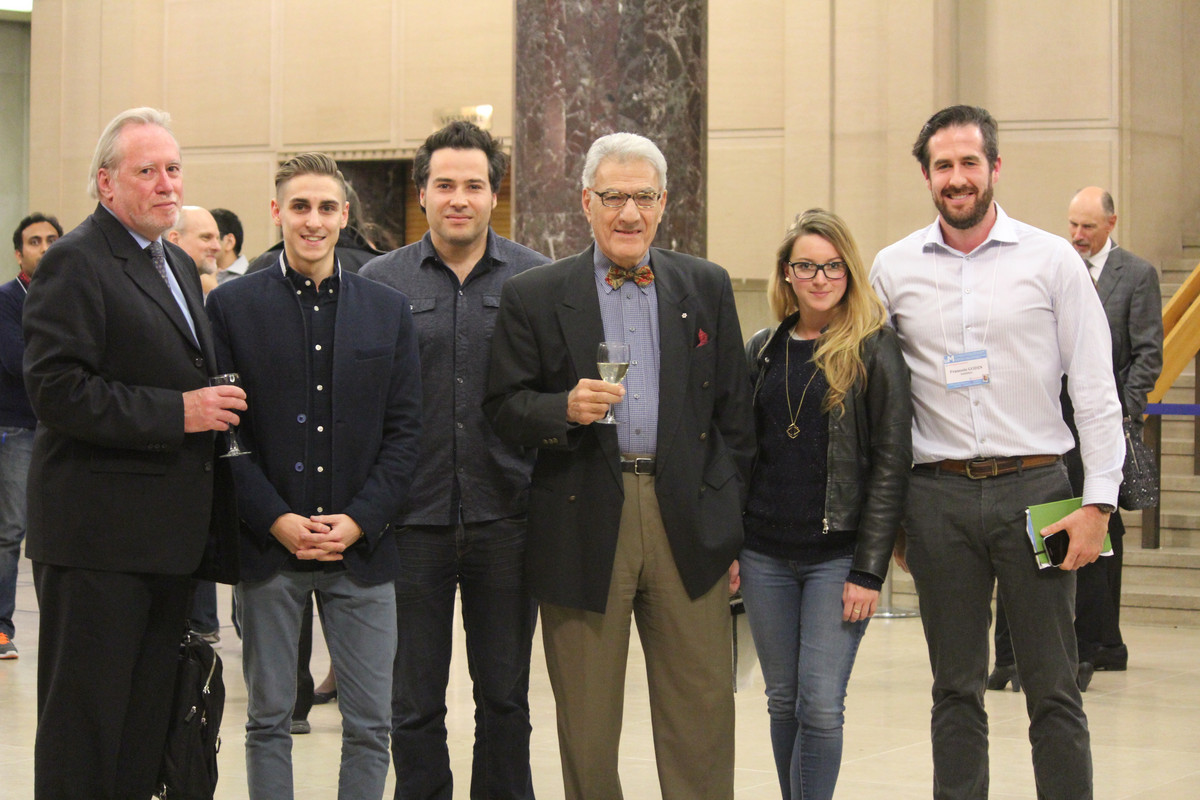
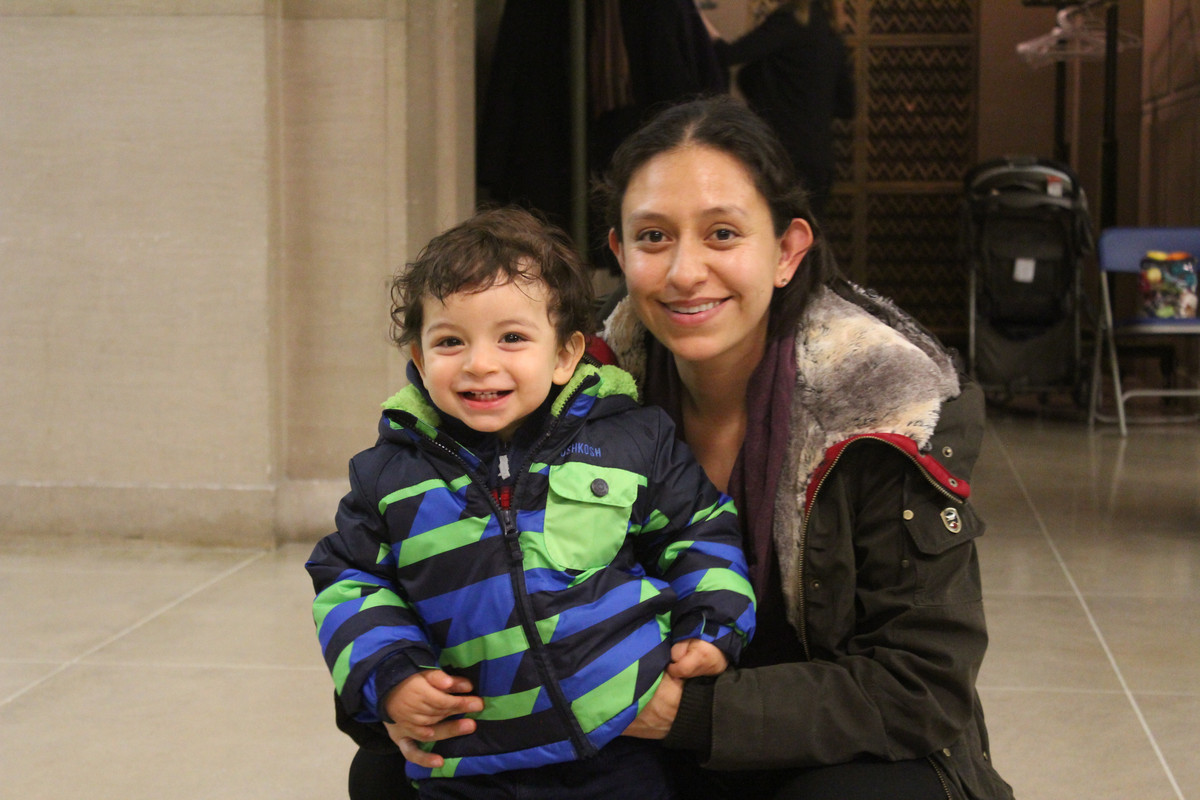
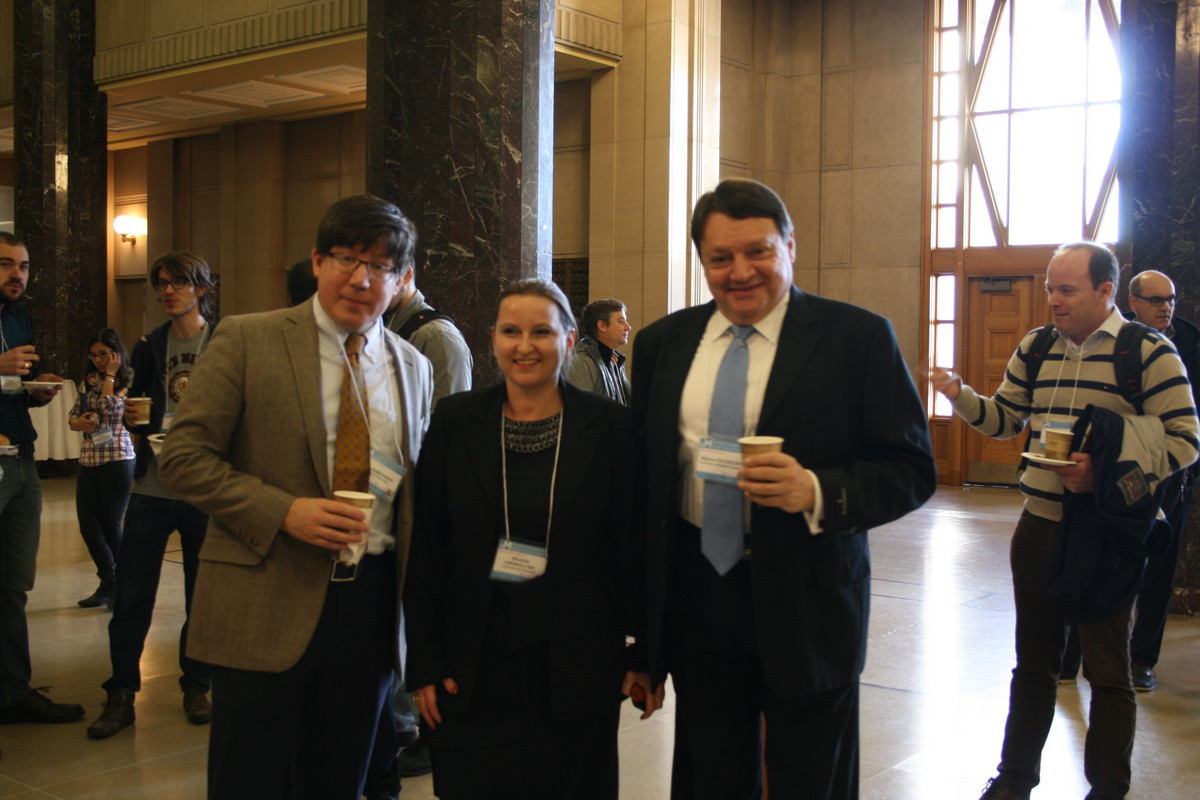
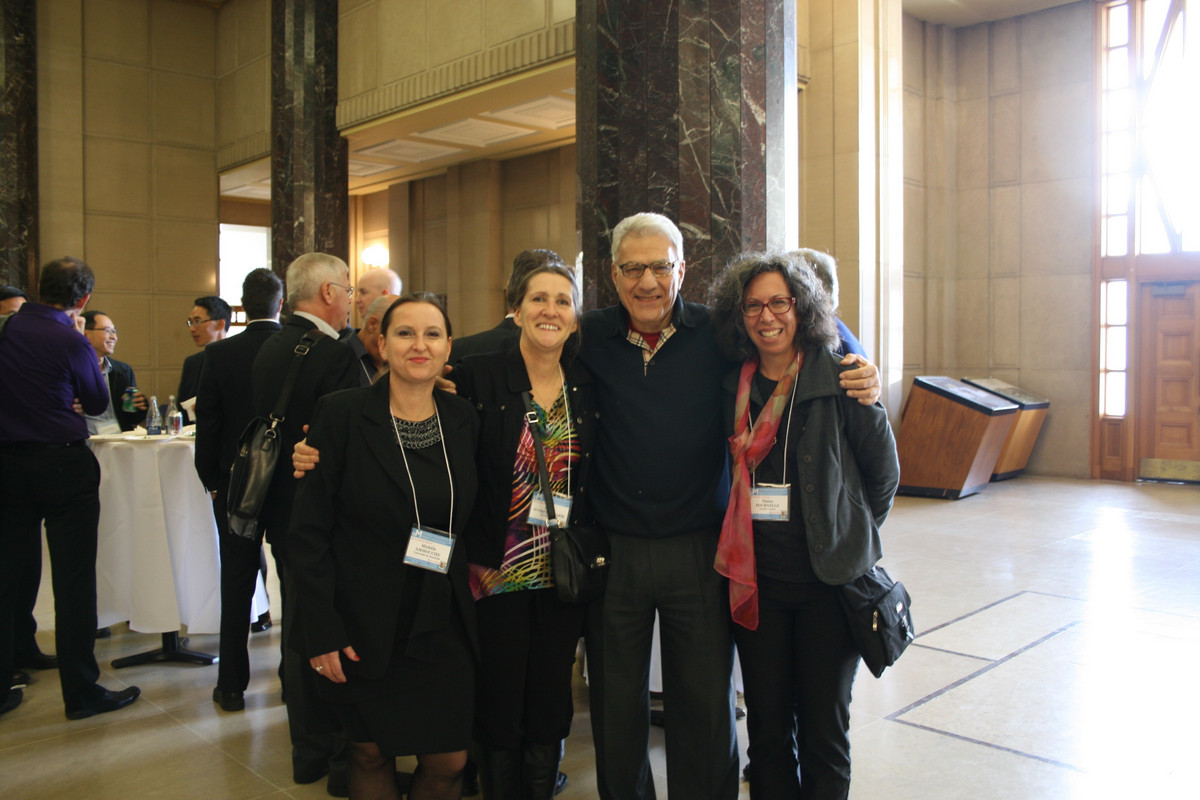
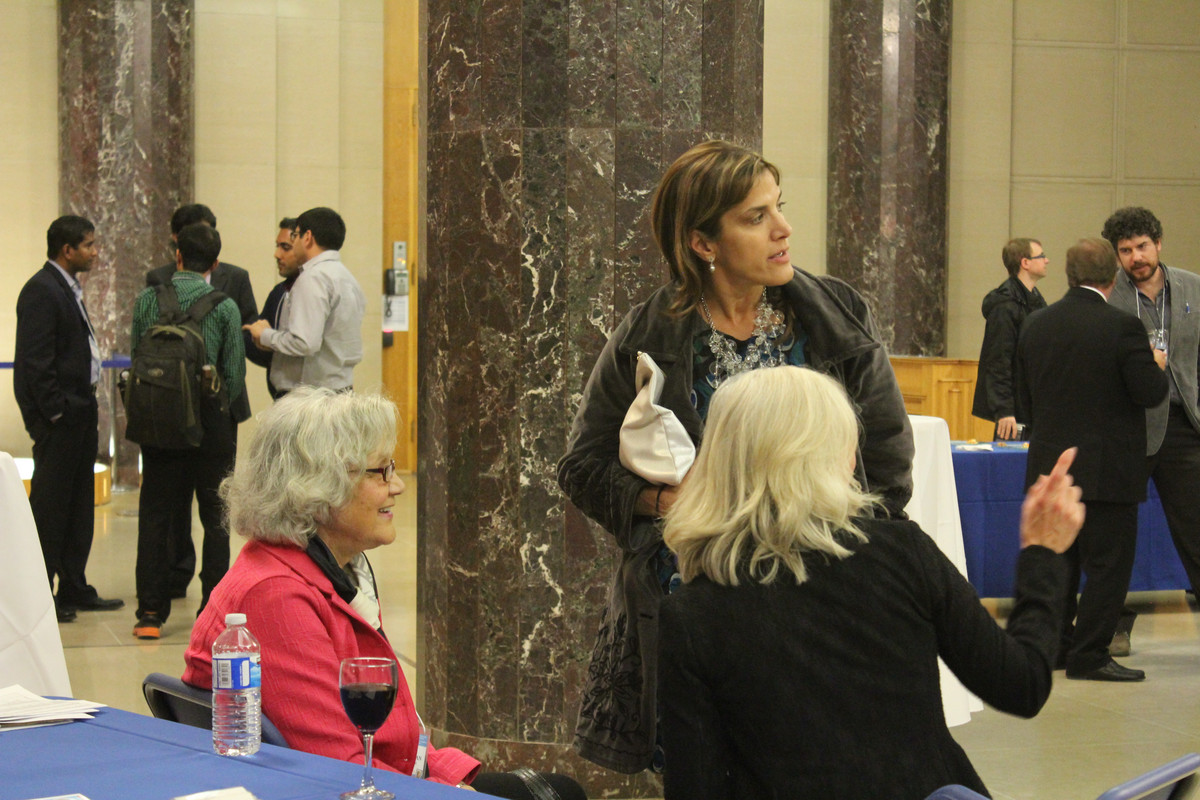
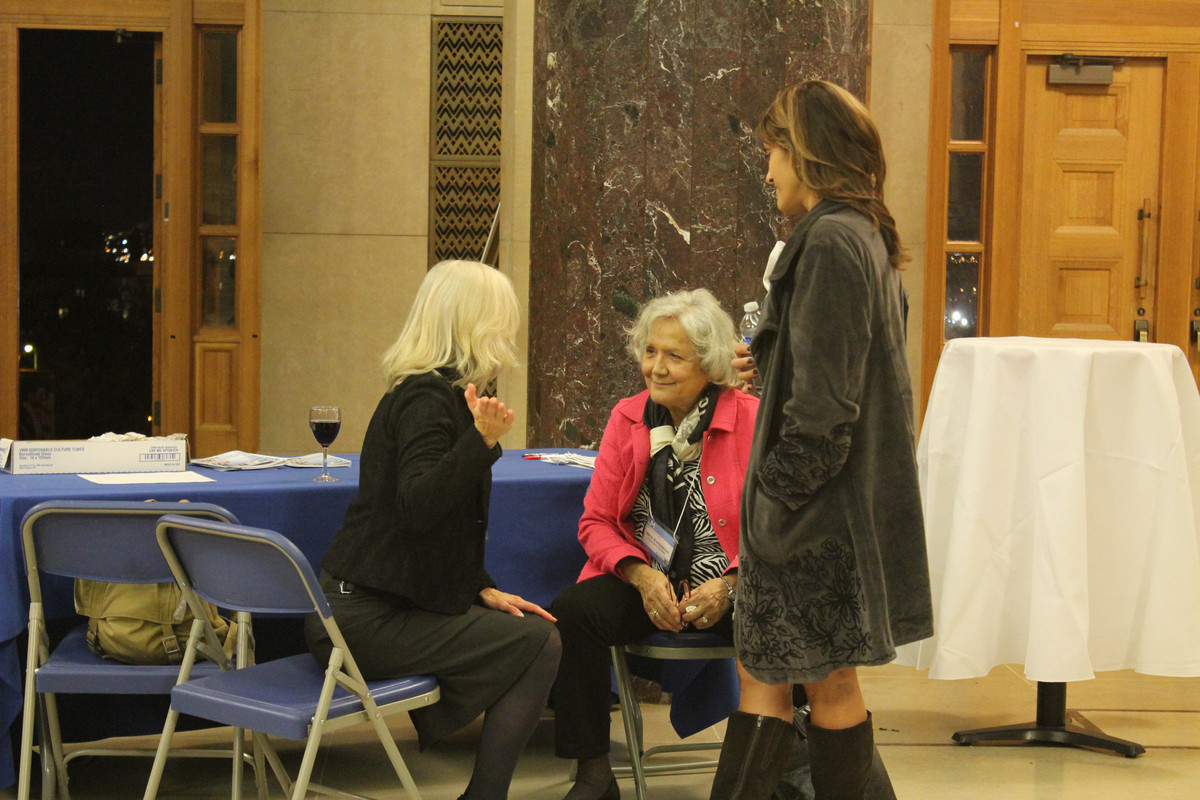
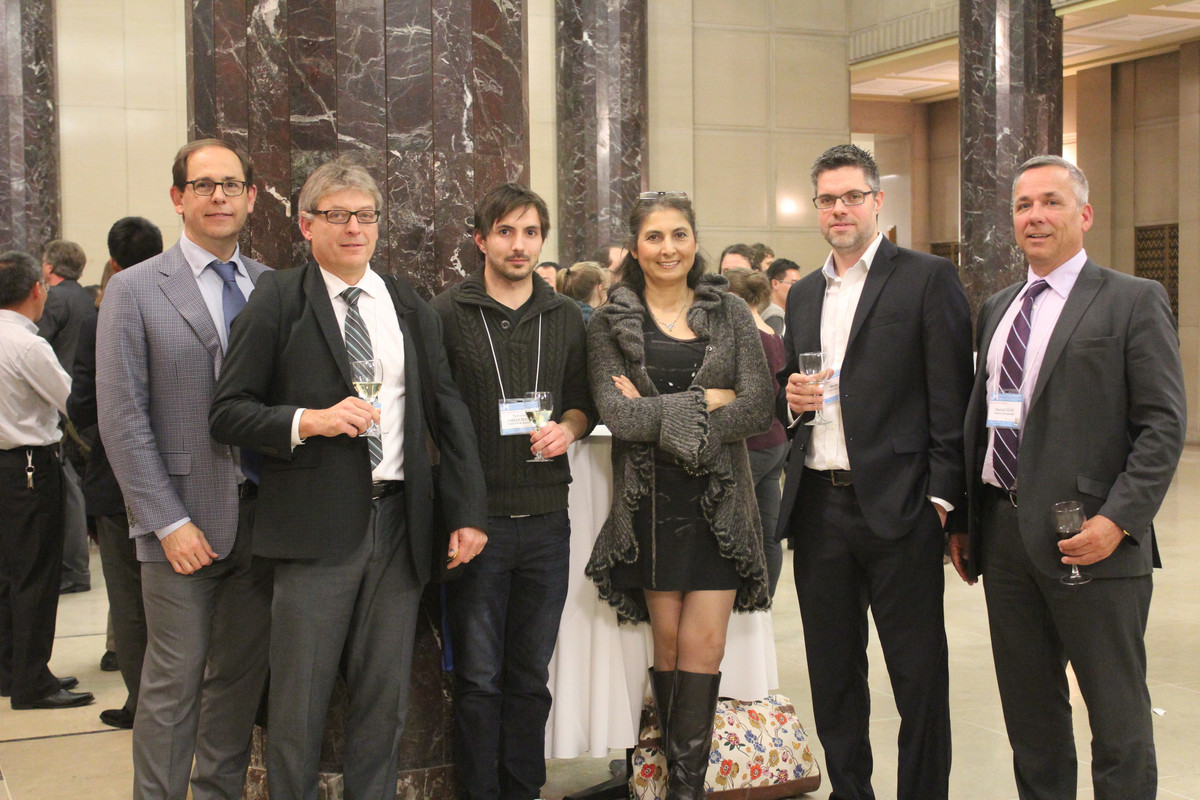
About Steve
Last April 25, our longtime colleague, Steve Hanessian, decided to quietly blow his 80 candles. It is impossible to ignore the impact that he has had in the Canadian scientific arena as a Chemistry Professor at Université de Montréal since 1969. Without a doubt, he is recognized by his peers as one of the highest profile synthetic chemists of his time. Among others, building on continuous funding from the private and governmental sectors, his output of scientific papers has exceeded the 550 mark and he has trained over 300 highly qualified students and postdoctoral associates who now lead important positions worldwide. His multiple achievements throughout his stellar career (far from being over) have certainly been instrumental in securing our institution’s well-recognized reputation in research and education worldwide.
| Steve Hanessian obtained his Ph.D. with the late M. L. Wolfrom from the Ohio State University in 1960. After 7 years at the Parke-Davis Research Laboratories in Ann Arbor (Michigan), he moved his family to Canada where he started his academic career in 1969 as an Associate Professor at Université de Montréal. He was promoted to Full Professor a year later and currently holds the Isis Pharmaceuticals Research Chair. His research has the unique character of combining innovation with practicality and has had a major impact on organic, bioorganic and medicinal chemistry. He is an international authority in such diverse areas as total synthesis of natural products, asymmetric synthesis, design and synthesis of medicinally important compounds, supramolecular assemblies, carbohydrates and peptides as well as computer assisted organic synthesis. Over the years, he has accumulated an impressive number of prestigious awards. Among them are the Merck, Sharpe & Dohme Award (1976), the C. S. Hudson (1982), M. L. Wolfrom (1993) and A. C. Cope Scholar (1996) awards from the American Chemical Society, the NSERC Gold Medal (1996), the Killam Memorial Prize (1997), the Alfred Bader (first laureate) (1988) and Bernard Belleau (2001) awards from the Canadian Society for Chemistry and the Palladium Medal from the Chemical Institute of Canada (1988). In Québec, he received the Urgel Archambault Award (1987), the Prix Marie Victorin (1996) and was named Compagnon de Lavoisier (1997). He was also the first recipient of the Science Prize awarded by FRQNT (2011) and one of the 2002 recipients of the Queen Elizabeth Golden Jubilee Medal. In 1988, he became a Fellow of the Royal Society of Canada and was elected in 1998 Officer of the Order of Canada, the highest national honor for a citizen. In more recent years, he received the ACS Ernest Guenther Award in Natural Products Chemistry (2012), the IUPAC Guenther Prize in Medicinal Chemistry (2012) and the Montréal InVivo award for innovation and scientific excellence (2012). Steve acquired Canadian citizenship in 1995. He is an avid tennis player and enjoys attending tennis tournaments while traveling professionally. |
Invited Speakers
In recognition of nearly five decades of research and teaching activities that Steve Hanessian has devoted to our Department of Chemistry, we have set up a superb scientific symposium featuring a roster of internationally renowned researchers (who are either former group alumni or close friends of Steve Hanessian) to present their latest research centered around his areas of expertise: total synthesis, drug discovery, molecular assemblies, etc. Invited lecturers are (in alphabetical order):
Youssef Bennani (Vertex)
Youssef Bennani obtained a B.Sc. and a Ph.D. in chemistry from Université de Montréal and particularly in organic chemistry under the direction of Professor Stephen Hanessian. Following a postdoctoral appointment in the laboratories of Nobel Prize Laureate K. Barry Sharpless at the Scripps Research Institute, he started in 1993 a research career in the pharmaceutical industry, first at Ligand Pharmaceuticals, then at Abbott Laboratories and later at Atherys. While juggling job and studies at the same time, he succeeded in receiving an E-MBA from the Lake Forest Graduate School of Management. From 2004 to 2011, he served as Vice-President of Drug Innovation (Integrated Discovery Chemistry and DMPK) at Vertex Pharmaceuticals in Cambridge, near Boston. In July 2011, he moved back to Canada to accept his current position of Site Head and Vice-President, R&D at Vertex Pharmaceuticals Canada. During the past 22 years, he successfully led several research programs in therapeutic areas, such as neurology, metabolism, immunology, infectious diseases (bacterial, viral and fungal) and oncology, delivering more than 25 new molecular entities, some of them are on the market and others have reached various stages of pre-clinical and human clinical development. The quality of his work is reflected in over 150 articles and 50 patents.
Marco Ciufolini (UBC)
Marco Ciufolini is a native of Rome, Italy. He received a B. S. degree in chemistry in 1978 from Spring Hill College (Alabama) and a Ph.D. in 1981 from the University of Michigan under the direction of Professor Masato Koreeda. After postdoctoral studies with Professor Samuel Danishefsky at Yale University (1982-1984), he joined the faculty at Rice University in Houston (Texas), where he became Full Professor in 1997. At the end of that year, he accepted a Chair of Organic Chemistry at Université de Lyon and École Supérieure de Chimie, Physique et Électronique de Lyon in France. He held that position until July 2004, when he returned to North America as the holder of a Canada Research Chair in Synthetic Organic Chemistry at the University of British Columbia. He is a distinguished synthetic organic chemist who is eagerly sought out as a consultant in the pharmaceutical industry for his broad expertise in both medicinal and process chemistry. His research interests focus on the development of new reactions for the assembly of N-containing compounds and on the total synthesis of nitrogenous natural products. In addition, he is founder or co-founder of 3 companies and currently serves as the co-head of the Division of Drug Design and Synthesis at the Center for Drug Research and Development on UBC campus. The academic portion of his research has been carried out in collaboration with about 35 Ph.D. and 50 M.Sc. students, 15 postdoctoral fellows and countless undergraduates under his supervision, and it has led to the total synthesis of over 30 complex natural products. His work has been described in over 140 papers and book chapters, 28 patent applications, 1 monograph and in more than 180 invited talks worldwide (h index of 37).
Yvan Guindon (IRCM)
Yvan Guindon obtained his Ph.D in 1981 from Université de Montréal, under the supervision of Stephen Hanessian. In 1979 he started his career at Merck Frosst and held different leading positions in the Medicinal Chemistry Department that he directed in 1984. From 1987 to 1994 he was Vice-president Research at BioMega/Boehringer Ingelheim Research Canada and member of the International Research Committee of Boehringer Ingelheim, GMBH, Germany (1992-1994). In 1994, he joined the Institut de Recherches cliniques de Montréal (IRCM) as President and Chief Scientific Officer (until 2004) and Research Professor directing the Bio-Organic Chemistry Laboratory. He is an adjunct professor of the Department of Chemistry of the Université de Montréal from 1987 to 1999, and since then, “Professeur / chercheur titulaire”. He is also adjunct professor in the Department of Chemistry at McGill University (2000). He is co-author of more than 115 papers and 50 US patents. His research interests in medicinal chemistry were centered in the discovery of potential therapeutics in asthma, hypertension, HIV and other viral infections. Recently, his work targets pancreatic cancer, cardioprotection and inflammation. He is recognized for his contributions in free-radical chemistry, nucleoside and natural products synthesis.
Dr. Guindon was elected to the Academy of Sciences of the Royal Society of Canada in 1990. He was named to the Order of Canada in 2005. In 2006, he received the Prix Lionel-Boulet, Prix du Québec, for his contributions to the biopharmaceutical sector. He was President from 2007-2009 of the RSC: The Academies of Arts, Humanities and Sciences of Canada (The Royal Society of Canada). In 2012, he received the Alfred-Bader Award, from the Canadian Society for Chemistry, for the excellence of his contributions in Organic Chemistry. He was also received as a Knight of National Order of Québec the same year. He is Fellow of the American Association for the Advancement of Science since 2014.
Eric Jacobsen (Harvard)
Eric Jacobsen was born in New York City and received his B.S. degree from New York University in 1982. He pursued his chemistry studies at the Ph.D. level with Prof. Robert Bergman at the University of California, Berkeley from 1982 to 1986. He then returned to the East Coast for a 2-year NIH postdoctoral fellowship at the Massachusetts Institute of Technology under the direction of Nobel Prize Laureate K. Barry Sharpless. He began his prolific academic career, first in 1988 at University of Illinois at Urbana-Champaign, and later at Harvard University where he was immediately appointed Full Professor in 1993 and was named the Sheldon Emery Professor of Organic Chemistry in 2001. He has just completed an extended term as Chair of his Department of Chemistry and Chemical Biology (2010-2015). With an impressive record of over 230 publications, he is widely perceived as a leader in the field of asymmetric catalysis. Today, he directs a research group dedicated to discovering new catalytic reactions and to applying state-of-the art mechanistic and computational techniques to the analysis of those reactions. Several of the catalysts developed in his labs have found widespread application in industry and academia. These include metal-salen complexes for asymmetric epoxidation, conjugate additions, hydrolytic kinetic resolution of epoxides, chromium-Schiff base complexes for a wide range of enantioselective pericyclic reactions, and organic hydrogen bond-donor catalysts for activation of neutral and cationic electrophiles. The long list of honors and awards he received over the years includes the NSF Presidential Young Investigator Award (1990), the Packard Fellowship (1991), the Camille and Henry Dreyfus Teacher-Scholar Award (1992), the Alfred P. Sloan Foundation Fellowship (1992), the ACS Cope Scholar Award (1993), the Fluka “Reagent of the Year” Prize (1994), the Thieme-IUPAC Prize in Synthetic Organic Chemistry (1996), the Baekeland Medal (1999), the ACS Award for Creativity in Synthetic Organic Chemistry (2001), the NIH Merit Award (2002), the Mitsui Catalysis Science Award (2005), the ACS H. C. Brown Award for Synthetic Methods (2008), the Janssen Prize (2010), the Noyori Prize (2011), the Nagoya Gold Medal Prize (2011), the Chirality Medal (2012), the Remsen Award (2013), the Esselen Award (2015), and the ACS Arthur C. Cope Award (2016). In addition, he was elected to the American Academy of Arts & Sciences (2004) and to the National Academy of Sciences (2008).
Mark Lautens (Toronto)
Mark Lautens was born in Hamilton, Ontario. He attended the University of Guelph where he graduated with distinction in 1981. He entered the University of Wisconsin-Madison, where he obtained a Ph.D. with Professor Barry Trost in 1985. He then moved to Harvard University where he completed a 2-year postdoctoral training with Professor David Evans, working toward the synthesis of bryostatin, a potent anti-cancer agent. He joined the University of Toronto in 1987 as an NSERC University Research Fellow and was promoted to Full Professor in 1995. Since 1998, he has held the AstraZeneca Chair in Organic Synthesis. From 2003 to 2013, he was also the holder of an NSERC/Merck Frosst Industrial Research Chair on New Medicinal Agents via Catalytic Reactions. In 2012, he was promoted to University Professor, the highest rank awarded at the University of Toronto and, in 2013, was appointed as J. Bryan Jones Distinguished Professor. He is recognized as one of the top organic chemists of his generation. His specialty is transition-metal catalyzed organic reactions that allow the rapid formation of complex pharmaceuticals and intermediate compounds from simple starting materials. His scientific contributions are focused on finding new ways to prepare medicinally important molecules in an efficient and environmentally sustainable manner and to seek new reactivity patterns that expand on the chemist’s toolbox in organic synthesis. To date, he has published well over 300 articles (cited more than 10,000 times), reviews and book chapters on new catalytic reactions to make key structural components of pharmaceutical compounds and bioactive molecules. Over the years, he received many highly competitive honors, including the top organic chemistry awards from the Canadian Society for Chemistry (2004 R. U. Lemieux Award and 2006 Alfred Bader Award). From Canada, he also received the NSERC E. W. R. Steacie Award (1994), the Medal from the Canadian Institute of Chemistry (2013) and the Killam Research Fellowship (2013). From the USA, he received the Alfred P. Sloan Fellowship (1991), an Eli Lilly Grantee (first non American) and the ACS Arthur C. Cope Award (2006). He was also recognized in Europe with the Solvias Prize (2002), the Alexander von Humboldt Senior Scientist Award (2009) and the 2011 Pedler Award from the Royal Society of Chemistry (first Canadian awardee). In 2001 he was elected to the Royal Society of Canada and became Fellow of the Royal Society of Chemistry (UK) in 2011. In 2014, he was elected Officer of the Order of Canada, the highest national honor for a citizen.
William Lubell (UdeM)
William Lubell received his B.A. in 1984 from Columbia College and his Ph.D. in 1989 under the supervision of Professor Henry Rapoport at the University of California, Berkeley. As a Japan Society for the Promotion of Science Fellow (1990-1991), he studied enantioselective catalysis with Nobel Prize Laureate Ryoji Noyori at Nagoya University. In 1991, he joined the Department of Chemistry at Université de Montréal, where he is today Full Professor. Co-author of about 200 scientific publications to date, he performs research in medicinal chemistry and peptide science, with particular interest in the development of novel effective methods for the synthesis of heterocycles, amino acids, peptides and peptide mimics. He has made seminal advances towards employing peptides in drug discovery. His major honors include the Boehringer Ingelheim Young Investigator Award (1994), the DuPont Canada Educational Aid Grant (1997), the Danish National Bank Award (1999), the Merck Therapeutic Research Award (2002) and the CSC Bernard Belleau Award (2013) for achievements in medicinal chemistry. In addition to his daily teaching responsibilities at Université de Montréal, he is Associate Editor of Organic Letters and editorial board member of various journals in peptide and drug design. He also founded Molecules of Life, where he explores experiential education techniques for teaching elementary school students about molecules.
Joelle Pelletier (UdeM)
Joelle Pelletier obtained her Ph.D. from McGill University in 1995. Following postdoctoral fellowships at Université de Montréal and at the University of Zurich, establishing high-throughput protein screening methods, she became a FQRNT Assistant Professor of Bioorganic Chemistry at Université de Montréal in 1999. Since 2011, she has been a full professor at the Department of Chemistry and an adjunct professor at the Department of Biochemistry and Molecular Medicine. Her research in biocatalyst engineering and biodetection integrates structural determination, physical-organic chemistry, high-throughput screening and molecular modelling. She is very active in the scientific community, serving on numerous grant panels, executive boards and award selection committees. She is an editorial board member of F1000Research and ACS Catalysis. Since 2009, she is co-director of PROTEO, the Québec Network for Protein Function, Structure and Engineering, where she promotes networking within Canada and internationally. She was also an organizer of the 2013 27th Symposium of the Protein Society, and chair of the 2014 GRC Biocatalysis, in recognition of her implication in the area.
Erik Sorensen (Princeton)
Born and raised in upstate New York in 1966, Professor Erik Sorensen received his B. A. in Chemistry from Syracuse University in 1989. He then chose to further his education at the University of California, San Diego, under the direction of K. C. Nicolaou. During his graduate studies, he synthesized a novel family of DNA cleaving, 10-membered ring enediynes, contributed to the synthesis of the cancer drug Taxol,TM co-authored a book entitled Classics in Total Synthesis and obtained his Ph.D. degree in 1995. He then became a NSF postdoctoral fellow at the Memorial Sloan-Kettering Institute for Cancer Research with Samuel Danishefsky. For two years, he worked on total syntheses of the epothilone class of antitumor agents. In 1997, he started his independent career, first at the Scripps Research Institute, and now at Princeton University, where he has been named the Arthur Allan Patchett Professor in Organic Chemistry since 2003. The author of over 55 research publications, he and his research group have a keen interest in the development of powerful reactions and strategies applied to the field of complex natural products synthesis. For his notable contributions to the world of drug discovery and education over the years, he received a Beckman Young Investigator Award (2000), a Camille Dreyfus Teacher-Scholar Award (2001), the Lilly Grantee Award (2001), the AstraZeneca Award for Excellence in Chemistry (2001), the Lilly Grantee Award (2001), the Pfizer Global Research Award for Excellence in Organic Chemistry (2002), the Bristol-Myers Squibb Unrestricted Grant in Synthetic Organic Chemistry (2004), a Focused Giving Award from Johnson & Johnson, and the ACS Arthur C. Cope Scholar Award (2009). In 2007, he was the Givaudan/Karrer Distinguished Visiting Professor at the University of Zurich.
John Vederas (Alberta)
John Vederas obtained a B.Sc. in Chemistry from Stanford University and a Ph.D. in Organic Chemistry (synthesis) with the late Professor George Büchi from the Massachusetts Institute of Technology. His postdoctoral work, first at Universität Basel (with Professor Christoph Tamm) and then at Purdue University (with Professor Heinz Floss) inspired a continuing interest in application of organic chemistry to understanding of biological mechanisms, especially in polyketide and peptide biosynthesis. He joined the University of Alberta as an Assistant Professor in 1977 and subsequently held the Canada Research Chair in Bioorganic and Medicinal Chemistry (2001-2015). Since June 2000, he has been named Distinguished University Professor of Chemistry. He is the author of over 300 research publications, 4 books and 22 issued patents. Thus far, he has supervised 54 Ph.D. students, 8 M.Sc. students, >65 postdoctoral fellows and >70 undergraduates to complete research in his group. He has received recognition for research and teaching from the University of Alberta, including the Rutherford Award for Excellence in Undergraduate Teaching (1995), the University Cup for Research and Teaching (1998), the Gordin Kaplan Award for Excellence in Research (2003), the Killam Award for Excellence in Mentoring (2003) and the Klawe Prize in Teaching Large Classes (2006). He has also received the Merck Sharp Dohme Award (1986), the John Labatt Award (1991), the R. U. Lemieux (2002) and Alfred Bader awards (2005) from the Canadian Society for Chemistry and an Alberta Centennial Medal (2006). More recently, he was awarded the Chemical Institute of Canada Medal, the society’s highest honour (2008) and the Leadership in Science Award from the ASTech Foundation (2010). He is a Fellow of the Royal Society of Canada (1997), of the Royal Society of London (2009), and of the American Academy of Microbiology (2014).
James Wuest (UdeM)
James Wuest was born in Cincinnati, Ohio, in 1948. He studied chemistry and mathematics at Cornell University, where he received an A. B. summa cum laude in 1969. He then entered graduate school as a National Science Foundation Fellow at Harvard University under the supervision of the late Nobel Laureate Robert B. Woodward. After receiving his Ph.D. in 1973, he elected to join the chemistry faculty at Harvard as an Assistant Professor. He remained there until 1981, when he accepted a tenured position at Université de Montréal, which led to a Full Professorship in 1986. Today, he is broadly interested in the design, synthesis, structure and properties of molecular materials. The unifying goal of his research program and current Canada Research Chair is to learn how to use weak interactions to control molecular associations and produce new materials with predetermined properties. He even coined the term "molecular tectonics" to describe his technique for employing molecules to build very sturdy structures. He relies on a special understanding of organic chemistry and synthesis, but his approach is highly interdisciplinary, even encompassing inorganic, surface and materials chemistry. With over 150 innovative publications, he has already attained an international reputation, as evidenced by the major honors he has obtained over the years. Among them, he has earned the Merck Sharp & Dohme Award (1988), the Rutherford Medal (1992), the Killam Research Fellowship (1992), the Guggenheim Fellowship (1999), the Alfred Bader Award (2001), the Arthur C. Cope Award (2005), the Prix Urgel Archambault (2008), and the Prix Marie Victorin (2013), the highest distinction awarded by the Government of Québec. In 1996, he was also elected Fellow of the Royal Society of Canada.
Scientific Program of the Day
| The Impact of Synthetic Chemistry and Biology at the Interface of Science | ||
| 08:30a - 09:00a | REGISTRATION | |
| 09:00a - 09:10a |  | Opening Remarks |
| 09:10a - 09:45a |  | William Lubell |
| 09:45a - 10:20a |  | Mark Lautens |
| 10:20a - 10:40a | COFFEE BREAK | |
| 10:40a - 11:15a |  | James Wuest |
| 11:15a - 12:15a |  | Eric Jacobsen (Keynote Speaker) |
| 12:15a - 01:45p | LUNCH BUFFET | |
| 01:45p - 02:20p |  | Erik Sorensen |
| 02:20p - 02:55p |  | Marco Ciufolini |
| 02:55p - 03:30p |  | Joelle Pelletier |
| 03:30p - 03:50p | COFFEE BREAK | |
| 03:50p - 04:25p |  | John Vederas |
| 04:25p - 05:00p |  | Yvan Guindon |
| 05:00p - 05:35p |  | Youssef Bennani |
| 05:35p - 05:45p |  | Closing Remarks |
| 05:45p - 06:30p | COCKTAIL | |
| 07:00p - 10:00p | DINNER AT THE RESTAURANT (Cercle HEC)
| |
Directions and Parking
Location
The symposium in honor of Steve Hanessian's 80th birthday will take place at 2900 Édouard Montpetit Blvd. (Roger Gaudry Building with Main Tower), on Université de Montréal campus.
- A taxi driver will be able to drop you off properly with the above civic address;
- If you come by car, you need to arrive either from the Queen Mary Road or the Louis Colin Street;
- If you take the subway, you need to get off at the Université de Montréal metro station and take the exit on your left immediately after the turnstiles. Then you must take the electric moving ramp (outside) and go all the way up.
For a detailed map to get to the symposium or the celebratory dinner, please click on one or the other following image:
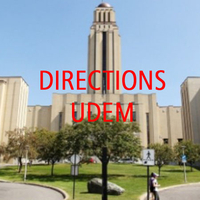
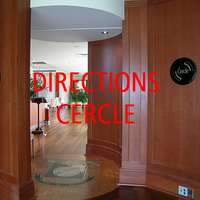
Parking
If you would like to park on Université de Montréal campus on a Saturday, you may go either to the multi-level Louis Colin garage (about 5 min on foot from the Roger Gaudry Building) or on the gated parking lots at B1 (dental clinic) or U1 (medicine). Parking cost is $13, and we advise you to pay by credit card. If you absolutely want to pay in cash, you must find a self-service terminal located only in the Louis Colin garage.
WARNING: Do not park in the main courtyard (besides the exterior staircases, at the bottom of the tower) at the risk of receiving a $54 ticket from the City of Montreal!
Dinner at Le Cercle
To those who have already committed to taking part of the celebratory dinner at the restaurant Cercle-HEC starting at 7 p.m., please find below the menu that has been prepared for you.
CAN YOU PLEASE SELECT YOUR MAIN COURSE (CHOICE 1, 2 OR 3) BEFORE OCTOBER 15, 2015 BY WRITING TO THE ORGANIZING COMMITTEE
A PDF version of the menu can also be downloaded by clicking on the FOLLOWING LINK
APPETIZER
MAIN COURSE
DESSERT
|
Sponsors
To date, we would like to sincerely thank the following sponsors for their generous financial support. If you or your company wish to contribute to the special symposium, please contact us:
